Greening Youth: The role of Youth in the context of climate emergency

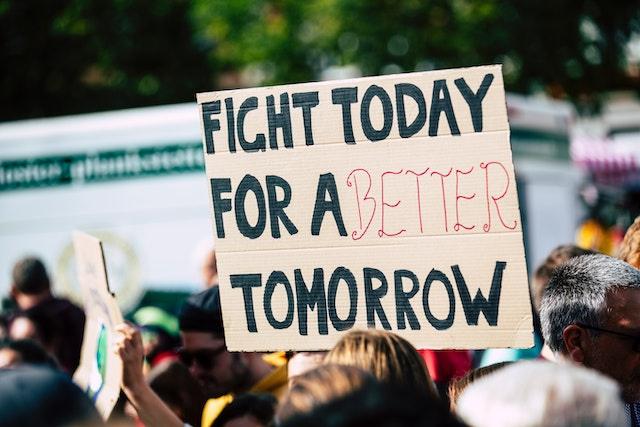
Youth Employment Magazine SEPTEMBER N2022 . 20 ISSN 2704 6540
Director’s Editorial
EEA & NORWAY GRANTS and UNESCO - A solid shared path towards youth
Join us at the #EU Week of Regions and Cities! - “Trust-based partnership models to empower Youth“ “NEET” Documentary by YOUTHShare Prepared!
Tirana EYC 2022 filled with youth energy and vibes through summer
Youth and Climate Change - More than Words, Where there’s a Will, there’s a Way
Theme of the month: Greening Youth: The role of Youth in the context of climate emergency
Greening Youth: The Role of Youth in the Context of the Climate Crisis (Intercept Project)
Age is just a number in fighting climate change, too!
Greening Youth: The role of Youth in the context of climate emergency (SEPAL Project)
A green generation – The youth commitment to the climate emergency
Greening Youth: The role of Youth in the context of climate emergency (StayOn Project)
Greening Youth: The role of Youth in the context of climate emergency (L.I.K.E. Project)
Greening Youth: The role of Youth in the context of climate emergency (YES! Project)
Supporting young entrepreneurs to start and grow green businesses
From sharing to caring
Engaging young people against climate change. The Think Tanks of EUTeens4Green
Greening Youth: The role of Youth in the context of climate emergency (FOLM Project) Stereotypes regarding young environmental activists: an untrusted shade of green
Engaging Youth in Energy Transition: The European Youth Energy Network (EYEN)
Cowork4YOUTH and the role of Youth in the context of climate emergency
EU must recognize role of youth leading green transition on islands
News from the Projects
Creative Center Ruse continues with the final course under CODE project
HRDA finished its final training course under CODE project
HRDA and FPC Ltd held their CODE closure event
The future of work for NEETs in a circular economy
RAISE Youth Study Visit in Romania
Cowork4YOUTH's Baseline Study is out!
“NEET”, the documentary by YOUTHShare: Interview with the director
YOUTHShare at the IIPPE 2022 Conference
Crucial potentials to unlock youth empowerment in five European rural areas
Autonomous Workers for Combating Unemployment and the Enhancement of Solidarity. Four “Dead Ends” of Employment and two Synergized Solutions
1 Youth Employment Magazine
Contributors & Credits Contents 2 5 11 13 15 19 21 22 24 26 28 29 30 32 35 37 39 41 42 44 45 47 49 49 50 51 52 55 56 57 59 61 62 70
Director’s Editorial
Dear Friends,
I hope you all enjoyed summer holidays, needed to ‘re-charge’ before tackling what future will bring us.
Autumn has come and, along with it, some new important challenges. Challenges that perfectly fit with our ‘topic of the month’, as we are talking about youth involvement into the climate crisis.
Before directly referring to our youth, and therefore to all the ‘protagonists’ of our recent Special (since our goal now is to continue involving them, in practical activities), is that it actually looks like that this period, interlinking different challenges, can be, indeed, called ‘crisis’. And, as you know me, since I have been introducing the YE and RC for a while now, I do not like, and do not want, to be pessimistic, or to talk about the ‘negative aspects’ of this reflection.

However, as you also noticed, tv, newspapers, news alerts etc., seem they are all talking only about it. We have climate crisis, energy crisis, gas crisis, and these are all related matters. But, we have also education crisis, intergenerational crisis, psychological crisis…..
As we say here, by translating an Italian old saying: ‘the more we say, the more we can add.’
Indeed, I am sure that if I ask to all of you, you could add another ‘crisis’. Don’t you agree?
Scrolling news, as I always do, I found, for example, the reflections made after the UN ‘transforming education’ summit, held very recently in New York on the 16th, 17th and 19th September. A Summit held to find ‘responses to a global crisis in education - one of equity and inclusion, quality and relevance.’ And continuing on reading: ‘Transforming education, building our future’. It seems, to me, to remember words and concepts we, as Fund, are using every day. A sort of ‘mantra’ we all follow to keep up with the upcoming challenges.
It’s clear that we have, instead of education (but also relating to it), youth. Our path is dedicated to youth and their empowerment. And so, what if we change some words like that?
‘Transforming youth empowerment methods, transforming youth policies, building our future’: It seems more or less the same, isn’t it? !
This short game with words was intended just to express the following idea I have in mind: you can talk about any crisis, any new challenge, any problem or, considering our Mag, any ‘topic of the month’, but the result is always the same: young generations are always there. All the solutions we try to find, they are for youth. All the paths we try to construct, they are intended to be made for youth. Because youth is the future. And, if there is anyone here not convinced of that, I am ready to listen, to understand how to further analyse what we all are doing wrongly.
That is why I am very happy to see, and to read, the numerous contributions coming from the Projects about ‘Greening Youth: The role of Youth in the context of climate emergency’. Scrolling our Mag, you will see not only strong pictures and paragraphs, but real and concrete examples of this ‘involvement’. An involvement which has not necessarily anything to do with the ‘Fridays for Future’.
2
Youth Employment Magazine
Well, the topics involved are the same, while, here, I see and note a different approach: I read reflections, best practices, think thanks experiences, advices on how to react. For sure, we share with the Global Strike of the ‘Fridays for Future’ the ‘mantra’: There is no planet B.
Our Tom seems to be in agreement with me, as usual, or better with my speech about ‘words’: «Words give life to ideas. Words are singularly the most powerful force available to humanity. Words are the precursors of actions». And then, after reporting well-known persons’ words (even Greta Thunberg ), he is talking about some actions, real actions, which should follow words.
We have already several great examples, coming from our Projects - I am very curious to see the YOUTHShare Documentary on NEETs, and to join the online event that YES! organised for the 11th of October (you will find below the details) within the framework of the European Week of Regions and Cities! -, but also, from some of our Friends - such as the Tirana ones, being it the European Youth Capital for this 2022: they celebrated as well the 12th of August and share with us some of their results. Not forgetting, as usual, the engagement of FMO in dealing everyday with the search of solutions, sometimes thanks to the constructions of solid dialogues shared with organisations, institutions and entities that are on the same path (and the interview you will read is about that).
Last but not least, since we have always been ‘open’ to parallel activities and since we are still into the European Year of Youth – which we want to close together with you all – I see with pleasure that there are a lot of institutions, organisations, entities and people committed to that. This morning I woke up and stopped for a moment the finalisation of our Mag, since I wanted to participate to the European conference of the Berlin Senate Department for Integration, Labour and Social Services "Empowering young people through decent work and VET - The European Year of Youth 2022 in times of transformation and crisis". What I heard is that the concept ‘Youth Employment’ is a broad one. An area full of challenges, but with the same questions shared by all of us: How can we create a future without fears and anxieties, how can we empower young people? How can we provide good and decent education, vocational training and then a decent work in Europe? How can we improve cooperation?
Aren’t those questions the same we also share into the framework of the Regional Funds? I think we can all agree. And guess what: they also talked about climate crisis impacting on youth (un)employment in the next future.
I listened with pleasure the speech of Dr. Nicolas Schmit, EU Commissioner for Employment and Social Rights. The question: « What prospects do young people have in times of transformation and crisis? ». What he said, and I agree, is that we need a starting point against the background of the pandemic, which was felt particularly in terms of psychological and social aspects by youth. «The world has become more difficult for a lot of people. Think for example to university students and trainees, who already have to leave on short budgets: arising costs of leaving make it even harder. The turning point to the adult life is an important factor», he said, before remembering that unemployment in the EU declined to 6 % in June 2022 and so far, this is still a good news; youth unemployment compared to previous months is also low but the situation continues to be difficult into the labour market: youth unemployment rate in Europe is still 14%, greater than the general unemployment rate. So more than 8.6 million young people are unemployed or not in training position.
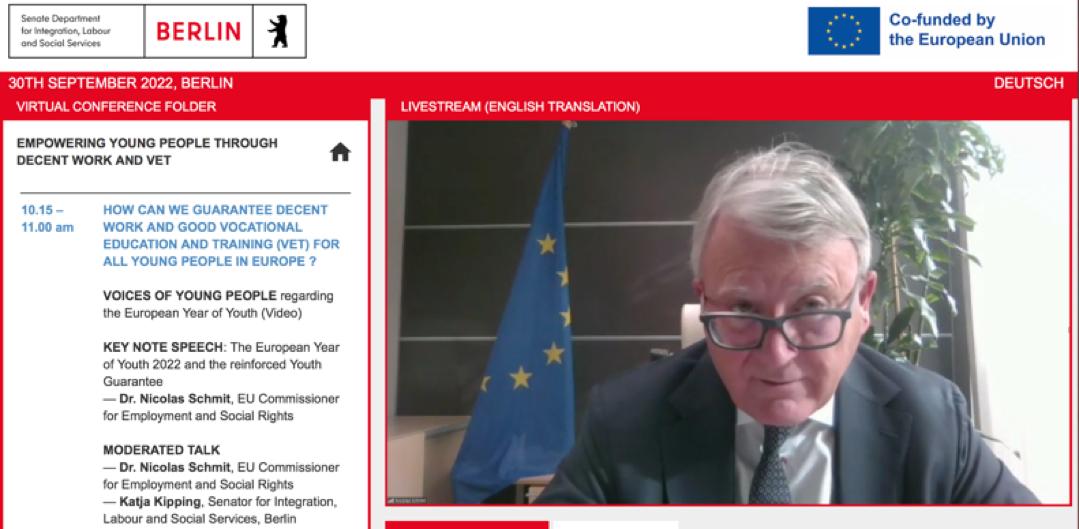
3
Youth Employment Magazine
«This is particularly worrying: it is not possible that 8.6 million people are left alone in the dark. Therefore, we need initiatives in order to enable these young people to get back into societies, into the labour market. During the pandemic a lot of young people had to interrupt their education or work. Think about a 30 years person: the economic crisis, then the Covid crisis, now they witness another crisis brought by war in Ukraine». How not to agree with him?
My idea? We don’t need a ‘lost generation’. We are not talking only about crisis but major transformations and transitions. We need then to manage these transformations with new jobs and competencies.
«We have to strengthen the Youth Guarantee. And this is a commitment to be followed. Funds are also important to support young people, to enter the labour market and to give them high quality jobs. We have to stop precarious job where they do not see any future.
Individual needs are sometimes hard to read: we must provide alternatives in due times. This approach must be further continued particularly after Covid, this crisis must lead to a stronger implementation of the Youth Guarantee and to more funding», he continued, also recalling that in Europe there is also Alma, a cross border youth mobility programme, but also Erasmus + (this year is the 35th anniversary) that enabled more then 10millions young Europeans to study abroad. We want to do even more.
In any case, this takes to vocational training, to the need to motivate young people.
And guess … 2023 should be the European Year of Skills, of Competencies: maybe not directly related to youth but for sure they are involved. This means we must work even harder and invest more in educational training and into cooperation.
We have a generation of young people that speaks up, luckily. Think about the climate crisis. They have a strong voice. They demand a labour market which is meaningful. That is not an alternative. We need to create jobs which need purposes, which are meaningful.
Year of skills and competences? Ok. So, this means that young people deserved skilled jobs. And we should continue to be there for that.
Finally, the statement that struck me the most, when the conference was presented, was this: «We are going to talk to them, they are here to talk with us directly».
This is, to me, the same spirit we want to follow.
It is clear, to me, that youth voice is the one to be heard and it is what we are trying to do for our Annual Seminar. We know that for some unforeseen we had to postpone twice. But the important, in that occasion, will be to collect those voices. And to create some real, concrete and effective actions.
Our goal, for this Annual Seminar, is to ‘use words, to go beyond words’. I cannot, today, anticipate you more about the meaning of this concept. But I hope that you will soon participate concretely to that just started process.
So… stay tuned!
 Gian Luca Bombarda The Fund Director
Gian Luca Bombarda The Fund Director

Youth Employment Magazine
EEA & NORWAY GRANTS and UNESCO
A solid shared path towards youth
The Centrality of Intercultural/Interreligious Dialogue and Collaboration for Nurturing Young Leaders
An event, the one held at the House of Lords, London, during last summer, that gave the opportunity to EEA & Norway Grants and UNESCO to highlight their shared interest to empower youth and support dialogue and collaboration beyond national borders.
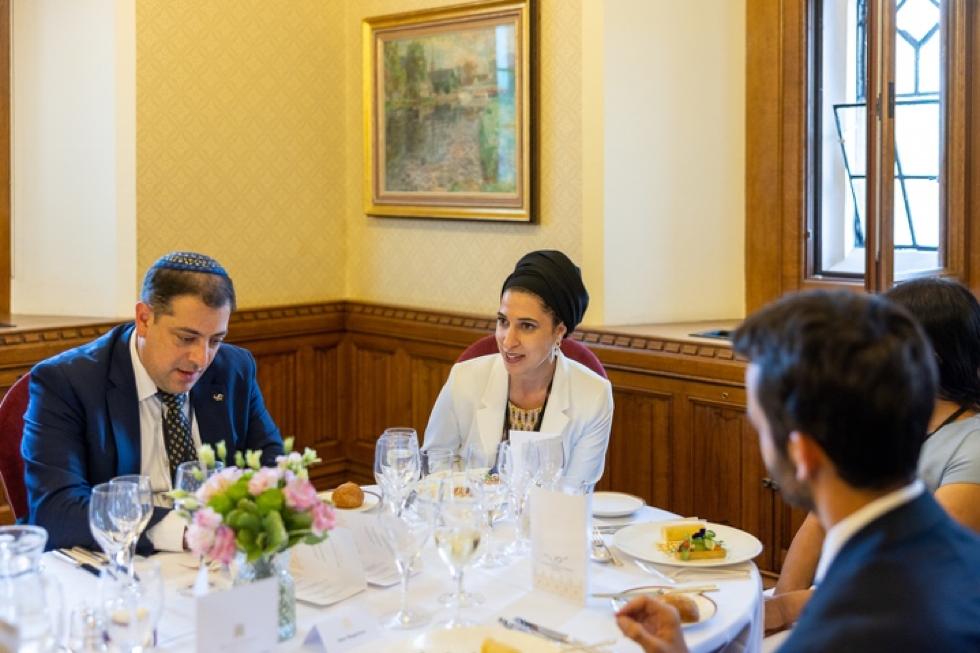

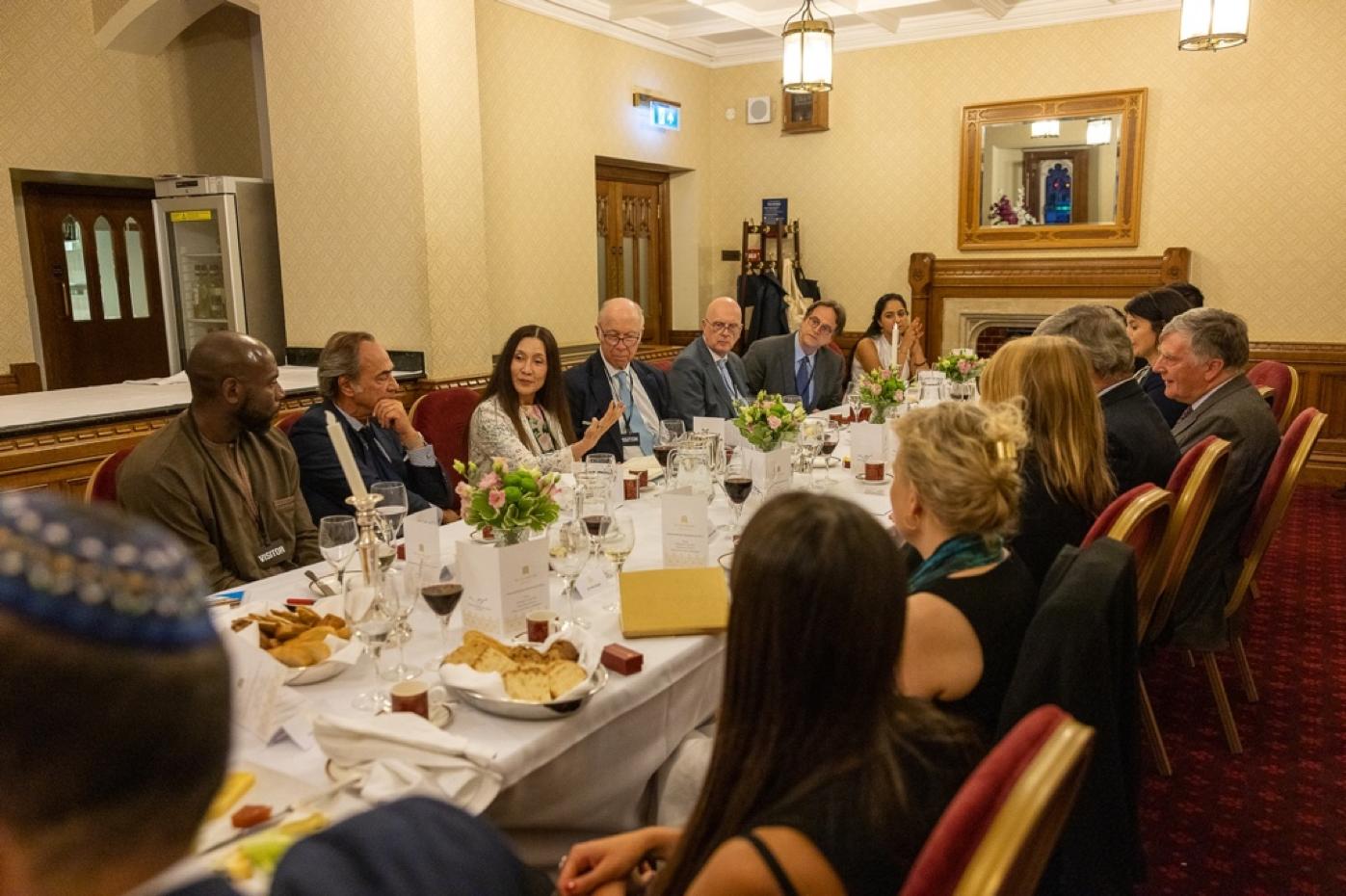
Co-hosted by UNESCO, KAICIID, Guerand Hermes Foundation for Peace and University of Wales, under the auspices and hospitality of H.E. Lord John Alderdice, the event has been a momentum for knowledge sharing, an enriching discussion on how to empower young leaders. An opportunity to reflect on shared challenges, an important space and invaluable opportunity to share notions and ideas on how to empower young leader thanks to a solid dialogue established by the participants.
In other words: «Nurturing Young Leaders for the Futures of Humanity: The Centrality of Dialogue».
Among the participants, Ms cer and Programme Manager for the Financial Mechanism Office and Scherto Gill, coordinator of UNESCO's Collective Healing initiative, replied to some questions prepared by ‘our’ Tom, which, alongside being our editorialist, is in addition a member of the Advisory Board of ' The Global Exchange on Religion in Society’.
5
Youth Employment Magazine
Nora Mehsen: «The purpose of the gathering was “dialogue in practice” on the topic of youth leadership and dialogue. And the event very much lived up to this description, gathering experts from different backgrounds, countries and professions to exchange experiences on the question: How can we best empower youth to engage in meaningful dialogue for sustainable development? Among the participants were representatives from Council of Europe, UNESCO, the Ministry of Education in Portugal and the former Director for the Commonwealth Youth Division. It is difficult to name just one highlight, as the event was filled with inspiring people from different governments, institutions and organisations. One interesting take-away I can mention, is that one of the co-hosts of the event, UNESCO, is in the process of developing a youth academy for transformative leadership. The intention of the initiative is to encourage and enhance young leaders’ capacities and enrich their qualities in leading social actions. This approach fully aligns with the EEA and Norway Grants’ view on youth empowerment: We need to invest in youth. Because they are not only our future, they are our present!!».
Scherto Gill: «The purpose of the event was to gather global leaders, including politicians, religious leaders, international organisations leaders, philanthropic organisation directors and distinguished scholars, and invite them to provide feedback on the UNESCO’s interest/proposal in developing a young leaders academy.
The most significant takeaway was the positive responses from all the participants towards the UNESCO’s proposal, including their affirmation of the UNESCO’s intentions, including:
1. to pay special attention to identifying gifted young leaders from worldwide vulnerable communities;
2. to focus on nurturing transformative leadership qualities and capabilities for young women and young men to affect positive change from where they are;
3. to co-create an innovative leadership programme with young people and for youths;
4. to establish global young leaders networks for transnational partnerships and collaboration;
5. to involve senior leaders in intergenerational learning and mentorship, and established young leaders in peer-mentoring».
Tom Mc Grath: 1. What was the purpose of the event?
Can you share one tangible takeaway?
6
Youth Employment Magazine
Tom Mc Grath: 2. Why is youth’s engagement in dialogue important?
Nora Mehsen: «Mastering the art of dialogue is essential for younger generations, as both current and future decision-making involves navigating through complexity, fragility and uncertainty. Polarisation, inequality, shrinking civic space and lack of public trust are among the threats we are facing in Europe. And we see efforts where people are actively excluded, pushed to the margins and used as scapegoats. Youth are rendered especially vulnerable in this context, including young women, youth with a Roma background, youth with a migrant background and LGBTI youth. We need to build bridges to overcome these fences. Dialogue is an important tool in this endeavour, in which young leaders can play a vital role, both as knowledge-holders and change-makers».
Scherto Gill: «Dialogue is more than just a set of conversations, it contains deep human encounter and interconnection, through practices such as listening, (honest) sharing, openness to the other, engaging with difference, questioning, inquiring, mutual understanding and collaboration. All the practices are part of what I call the arts of dialogue. Given this conception of dialogue, it is extremely important for young leaders to master the arts of dialogue. Furthermore, to facilitate processes of community regeneration and social transformation, future leaders must be able to create inclusive spaces for dialogue amongst people from diverse backgrounds. Through dialogue, peoples and groups can better relate to each other, build trust, transform conflicts, and co-construct a sense of common future for one and all. Dialogue thus perceived becomes a way of being, a part of our shared social practices».
Nora Mehsen: «That is a good a good question. I think these concepts can also be seen as intertwined and dependent on each other. It is difficult to imagine development that is truly meaningful if it is not built on sustainable dialogue – sustainable by leaving no one behind, for example».
Scherto Gill: «Dialogue must be sustained and sustainable. Equally dialogue must be meaningful for all those involved, both from personal interests in our own well-being, and in terms of the fruit of dialogue for our world. Sustainable development represents the UN’s goals, and an urgent objective for the entire humanity. Hence it would be a key theme for dialogue, which hopefully can lead to positive actions. I do appreciate your note on meaningful development. In this case, dialogue within communities can help articulate what meaningful development constitutes, and what kinds of development are meaningful. Therefore, it would be necessary to ensure sustained dialogue for continued exploration of effective pathways towards personal and communal development».
Tom Mc Grath: 3. “How can we best empower youth to engage in meaningful dialogue for sustainable development?” This was one of the questions posed at the event. Does its inversion not make more sense …sustainable dialogue for meaningful development?
7
Youth Employment Magazine
Tom Mc Grath:
Nora Mehsen: «I believe that dialogue often can represent action in and of itself. Human encounters can hold an incredibly transformative force, especially in these polarising times. So, dialogue is not necessarily a means to another end. But when we talk about action with regard to legislative change, this definitely requires a systematic approach to dialogue. Youth’s voices need to be channelled in a way where they can effectively reach governments. This also speaks to rule of law issues and checks and balances, that legislative drafting processes are actually transparent. Making sure that we create an environment for youth civil society organisations where they can operate independent of governments is a cornerstone in this endeavour».
Scherto Gill: «Now you have just highlighted a major challenge of engaging young leaders in advancing positive changes. This is where we must apply a great deal of sensitivity.
First of all, dialogue is in part action, rather than mere blablabla. Wars are failure of dialogue because as long as we are engaged in dialogue, no one is fighting. Therefore, we should not regard dialogue as a mere gesture, but rather we must see dialogue as an action as much as a process, an art, and our way of being and living in harmony with oneself, with others, with the world at large, and with the transcendent. There are further actions following dialogue, which are better informed, better articulated, and have more opportunities for transformation.
In terms of youth participation in policy-making and advocacy, according to Oxfam, there are six ways that young people can contribute to drafting legislations that have positive impact on their livelihood, and well-being:
1. Direct Governance: This is a scenario where young people are being elected to be part of the local decision-making or legislation body, or where they are given the opportunity to direct a project, or lead a collaborative initiative.
2. Protests and Industrial Action: This refers to young people’s engaging in public protests for legislation change, or civil actions towards improving the experiences of life, such as seeking to change employment law or working conditions.
3. Model Parliaments / Advisory Boards: Leadership opportunities like these are increasingly offered to young people who learn to conduct a mock parliamentary dialogue, run model UN assembly, or serve on organisations advisory boards.
4. Audits and Research: This points to situations where young people can take part in conducting a social audit to identify local polices that are no longer meeting the community’s needs, and work as part of the advocacy group to propose meaningful change.
5. Prefigurative Politics: This is where young people can join local group to monitor and ensure governments’ fulfilling their commitments and promises.
6. Media, Art, and ICT: These are spaces and platforms where young people can have a truly positive impact on policy-making and decisionmaking. For instance, young influencers can use their social media spaces, or use community arts and other channels to shift public opinion on matters that are important to the community, such as gender equality, mental health, and youth employment».
4. What structures and mechanisms exist for moving from dialogue to action? How can youth move beyond the dialogue stage to actual input and participation in drafting legislation that affects their lives and livelihoods?
8
Youth Employment Magazine
Nora Mehsen: «I don’t think that there are too many initiatives on youth empowerment, as this is a dire need across the globe. It is perhaps more a question about how we work – how can we better create synergies between different actors and ensure that our efforts complement each other? I am a firm believer that we need to work together to find common solutions to shared challenges. And it is great for us in the EEA and Norway Grants to exchange know-how with other actors that work to strengthen social and economic equality in the youth field. It informs our own work on youth, not only when it comes to inclusion of youth into the labour market, but also in our other programmes that has a youth component. Finding a niche for the Fund for Youth Employment has also been very important to us, so our work can bring added value to what is already done in our beneficiary countries and at EU level. Our focus is therefore on hard-to-reach target groups, as they only to a minor extent are made a priority in or covered by the Youth Guarantee and other common European youth employment initiatives. This is for me also an effort challenging elitism – by empowering those that often are pushed to the margins of our societies».
Scherto Gill: «There are indeed a number of young leaders programmes under the umbrella of UN, EU, EEA and so forth, not to mention programmes run by distinguished universities, such as Harvard, Yale, Stanford, Oxford, and others, as well as those offered by philanthropic foundations. Therefore, we must consider if our own proposal is innovative rather than reinventing the wheel. Indeed, this reflection takes us to the findings from our Global Listening Initiative carried out last year, involving tens of thousands of youths in 26 countries in four continents. If there are too many successful and meaningful young leaders programmes, why did young people who took part in the listening initiative suggest almost unanimously that more must be done to respect their voices, empower their agency, and create opportunities for them to contribute to the solutions to global challenges. The demand is particularly louder from those young people of vulnerable backgrounds, often living in the most alienated communities.
Clearly, more young leaders programmes are needed because young people in the most vulnerable communities feel that such opportunities are often not available for them. In fact, a further inquiry is necessary to explore what kind of young leaders programme is most suited to youths’ needs. To this end, the UNESCO Young Leaders Academy will start with a research conducted by young researchers (aged 21-30) to review existing youth leadership programmes and youth empowerment programmes, including costs, sizes, candidates backgrounds, selection, capacity-building contents, pedagogical features, fellows experiences, and employment post-training, personal impact and community impact, and more. This would allow young researchers to identify commonalities and differences amongst these programmes. They will then invite global young people to take part in a further research using survey questionnaire, focusgroup dialogue and one-to-one interviews, including intergenerational dialogue, in order to discern what the world needs now, and what might constitute a meaningful young leaders academy programme. This would ensure that our young leaders programme will be created with and by young people for young people and for the betterment of our world.
Now to your question, collaborative and partnership approach underpins our proposal for the young leaders academy. That is why we hosted this event in London to bring leaders from the different sectors into dialogue. After the event, we have been actively reaching out to those organisations and institutions that share the intention to support young leaders, and strengthen their transformative leadership qualities and competencies.
Tom Mc Grath: 5. There are many similar projects being managed by the UN, EU, EEA and others. In the interests of international cooperation, what are your views on working together in certain sectors and/or projects in a form of capacity sharing to avail of economies of scale, and to avoid working in silos?
What is your answer to criticisms concerning elitism, capital centric or class driven projects in your respective programmes?
9
Youth Employment Magazine
As to the criticism on the elitism, capital centric or class driven projects, this was the first challenge posed by Professor David Gergen during our event in London. Gergen, as the founding director of the Center for Public Leadership at the Harvard Kennedy School, invited us to explore ways to create a programme beyond elitism, and that is not costly, and can enable the youths to lead positive change in the local communities. We welcome such comments and we embrace the ambitions Gergen outlined. Anna Maria Majlöf, Chief of UNESCO’s Rights, Inclusion and Dialogue Section, has repeatedly highlighted UNESCO’s intention to include young leaders from diverse backgrounds, especially young women and men from the most vulnerable communities. This inclusivity would allow us to avoid elitism. To move away from capital-intense programme, we believe that young people are open to be guided by innovative pedagogies, within hybrid environments, and supported by peer-mentoring and intergenerational mentoring. What is important is to ensure that the capacitybuilding programme contents are relevant to young leaders lived realities. What is even more important is to ensure that there are resources for encouraging young leaders’ start-up projects. Such helping hand is crucial for empowering talented young leaders to contribute to their community’s regeneration».
Tom Mc Grath: 6. This is the European Year of Youth.
What major achievements would you like logged in your report cards at the end of this year?
Nora Mehsen: «I can start by highlighting a major achievement that I know will happen this year: I am really excited about the youth workshop that the the Fund Operator for the Fund for Youth Employment are facilitating in December in Brussels, gathering youth from across Europe and empowering them to set the agenda on employment and inclusion issues. As they say, “nothing about us without us”. I would like to see more initiatives like this, where youth themselves have a seat at the table and are encouraged to use their voices. It is our job – as government representatives and funders – to listen».
Scherto Gill: «Recalling our Global Listening Initiative, worldwide young people contributed to a policy brief which we presented on their behalf to the G20 summit. They seek opportunities in education, workplace and community to give their voice, to be heard, and to participate in decision-making processes that affect their livelihood; they would like to see that there are clear pathways to support their well-being (and healing for those who have suffered trauma either owing to war, displacement, or COVID-19 pandemic); they want the policymakers to ensure equal access to good quality education, training and employment; and they express the need to join others in addressing our ecological and global concerns. Thus I’d be so delighted if these young people’s recommendations have drawn policymakers attention at the end of the European Year of Youth».
10
Youth Employment Magazine
Join us at the #EU Week of Regions and Cities!

“ Trust-based partnership models to empower Youth “
The YES! Project Partners have the great pleasure to invite all interested organisations in the families of the Fund for Youth Employment to participate to the online event we are organizing on 11 October 2022, from 15.00 – 16.30 CET.
In this event, during the European Week of Regions & Cities, we will share our experience establishing trust-based partnership models to scale impactful programs to empower youth. More specifically, we will focus on how the YES! research, expertise & implementation partners have developed, implemented, scaled & evaluated a promising volunteer mentoring methodology to support young entrepreneurs to set up and grow new businesses and to create and sustain jobs in Spain, Italy, Greece and Poland.
Along with our sincere appreciation to the Director of the Fund, the FO team and the FMO who backed us up on every step of the process, We look forward to welcoming you all and to benefitting from your feedback and ideas on our approach and interventions!
More info at youngentrepreneurssucceed.com
" October 11th
⏰ 15:00 - 16:30 CET
$ Meeting registration: https://bit.ly/3SlnYVv



11
Youth Employment Magazine
Trust-based partnership models to empower youth
October 11th | 3:00 - 4:30 PM (GMT+01:00)
event

Welcome
Àlex Sastre, Youth General Director of the Catalan Government.
Nora Mehsen, Sector Officer and Programme Manager of the Financial Mechanism Office at Youth Employment Fund.
Volunteer mentoring key-success factors to empower youth.
Jo Gray, Mentoring specialist at Youth Business International.
Scaling trust-based partnership models in Catalunya. Guillem Arís, Director at Autoocupació.
Impact assessment framework: relevance, outcomes & suggestions for the future
Prof. Dr. Barbara Scheck, Professor of Entrepreneurship at Munich Business School.
Q&A & Closing remarks
Gian Luca Bombarda, Director of the EEA & Norway Grants Youth Employment Fund
YES! Project
12
Youth Employment Magazine
Online
AGENDA
“NEET” Documentary by YOUTHShare Prepared!
The YOUTHShare project’s aim is to reduce youth unemployment in coastal and island regions of the Mediterranean European Economic Area by boosting young NEETs' skills in resilient economic sectors, for example the agri-food production and related circular economies, in a trans-local level. Through a multi-scalar methodology and practice it will enhance the potential of social entrepreneurship and sharing economy, with the aim to mitigate economic disparities on the one hand and empower social integration.
One of the YOUTHShare project outputs is the preparation of a documentary film that entails interviews both from beneficiaries and people working for the project, illustrating their hopes, fears, obstacles that they met and had to overcome, and overall experience with the training programme that the project offered. The documentary “NEET” is an almost one-hour long film, that shares with us the special stories of people who remained, for various reasons, out of the job market as well as any sort of training for a rather significant amount of time, but who succeeded to turn the tables by joining the YOUTHShare project and attending its training programme.
On the one hand, the documentary gives us an opportunity to listen to some of the beneficiaries' stories relating to how they got involved in the project, what barriers they had to overcome and with what means. But it also allows us to see in which ways the training programme has actually helped them: being part of a workplace; feeling once more what it’s like to be in a stable environment; being part of a team; picking up new skills; meeting new people and building a personal network. And in some cases, of course, achieving the ultimate goal: securing a long-term job!
One of the stories that are unveiled in the documentary is that of 21-yearold Zaki, a refugee from Afghanistan residing in Mytilene island, having his asylum application constantly rejected and living in a status of insecurity. Despite the difficulties, he managed to get an internship at a local furniture
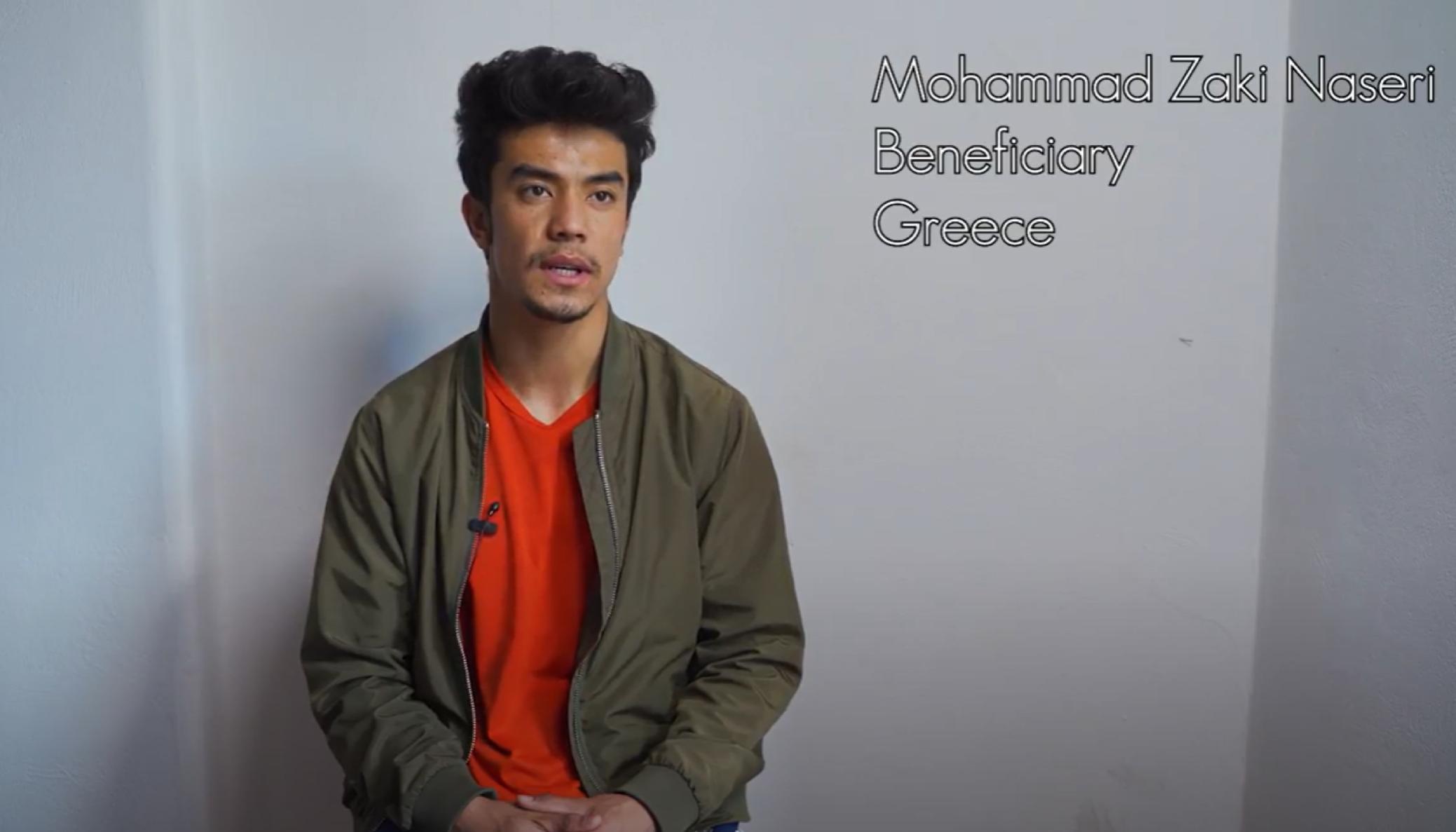
refurbishment store and get familiar with the people and the art. Other beneficiaries that talk about their hardships in finding a job and how their participation in YOUTHShare’s training programme enhanced their skills are Alberto Vicente and Angel Bernal Mesa from the Spanish branch, Osman Konte, originating from Sierra Leone in West Africa and Maria Kaniklidou from the Cypriot branch, Monique Varano, from the Italian branch and Anna Saroukou, also from the Greek branch. They all share the same goal, to find a place in the labour market, a secure and fulfilling job; a goal which the YOUTHShare project brings them one step closer to achieving.
The official premiere soon to come!
13
Youth Employment Magazine
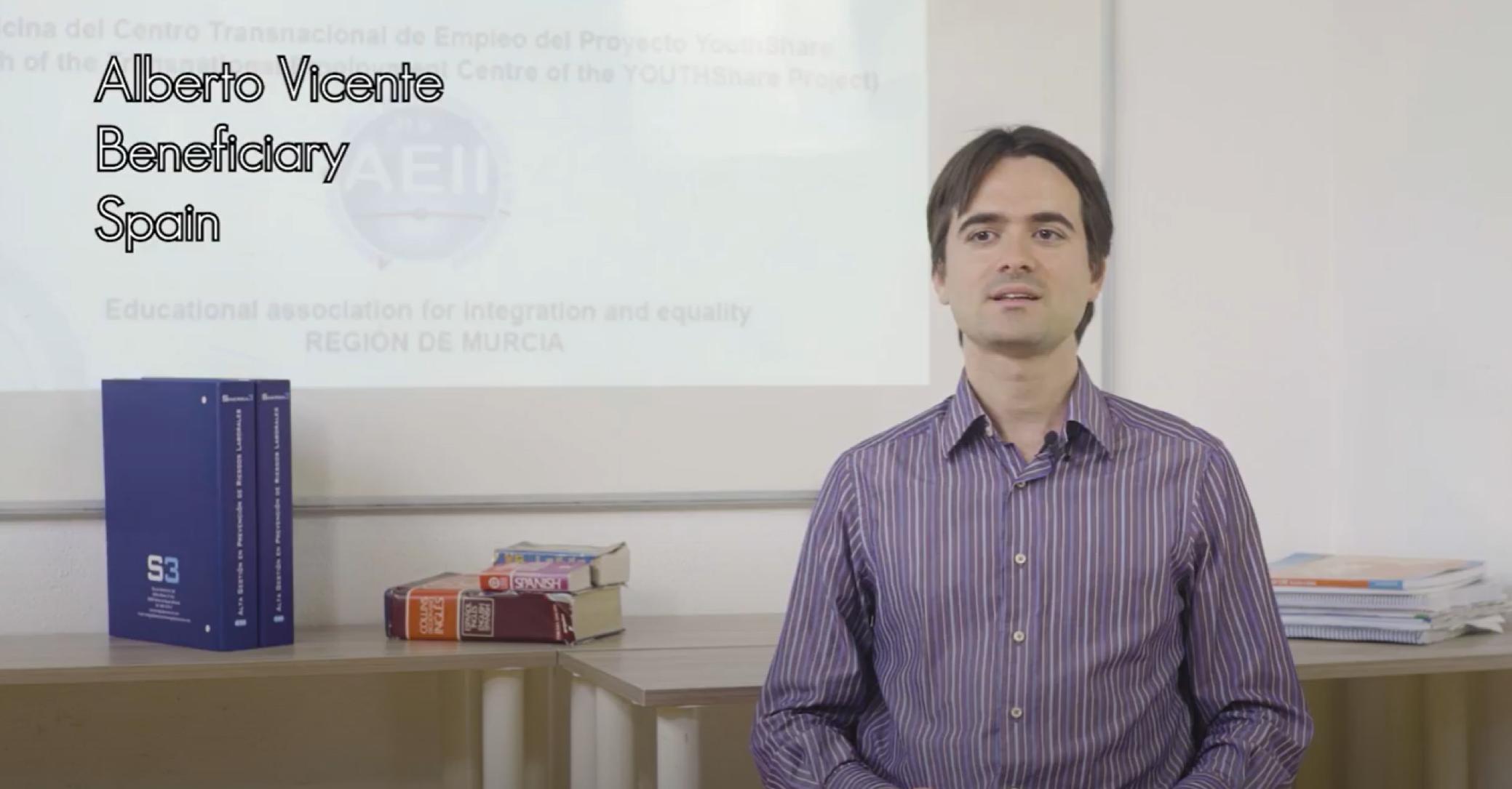
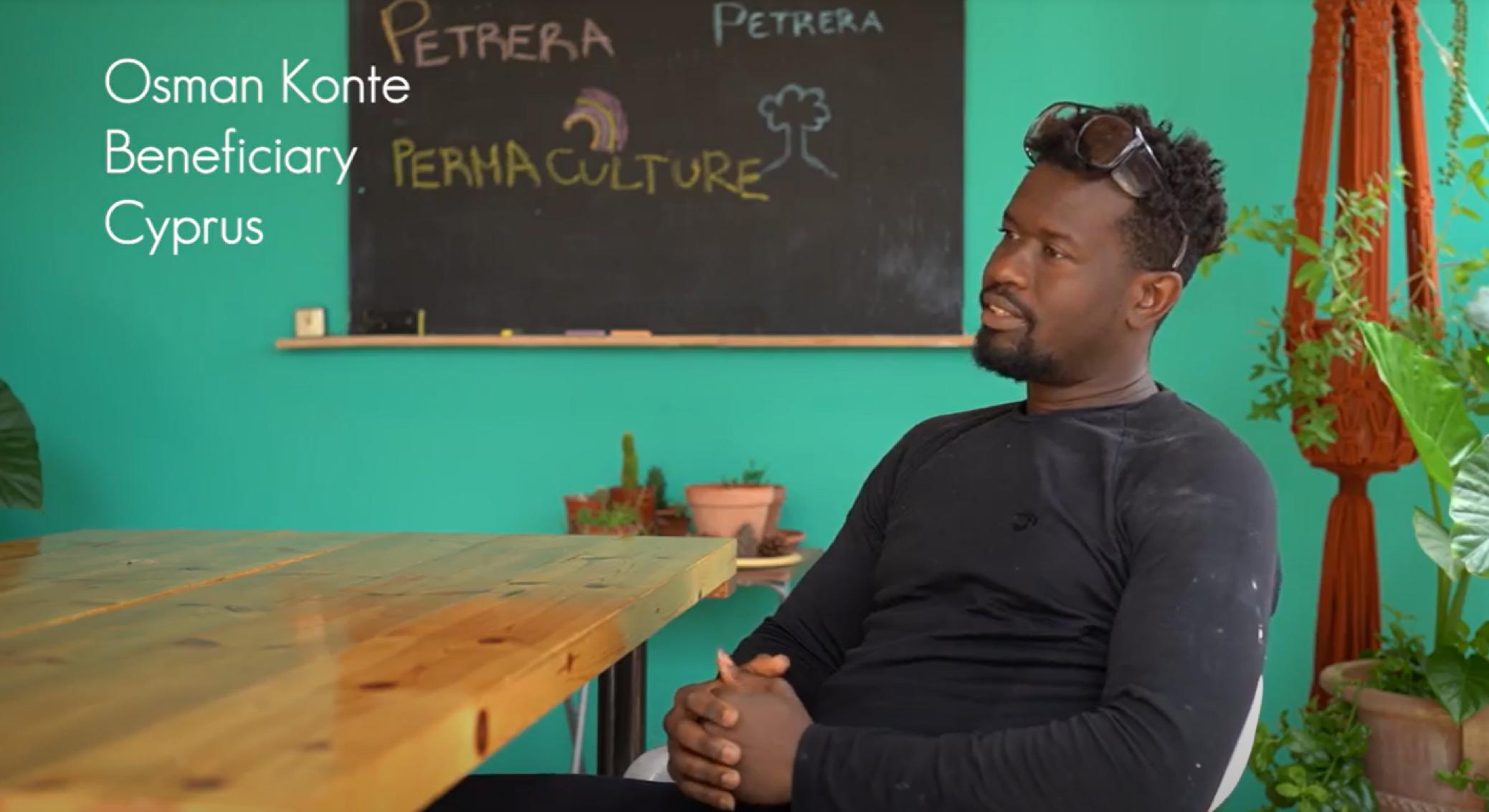
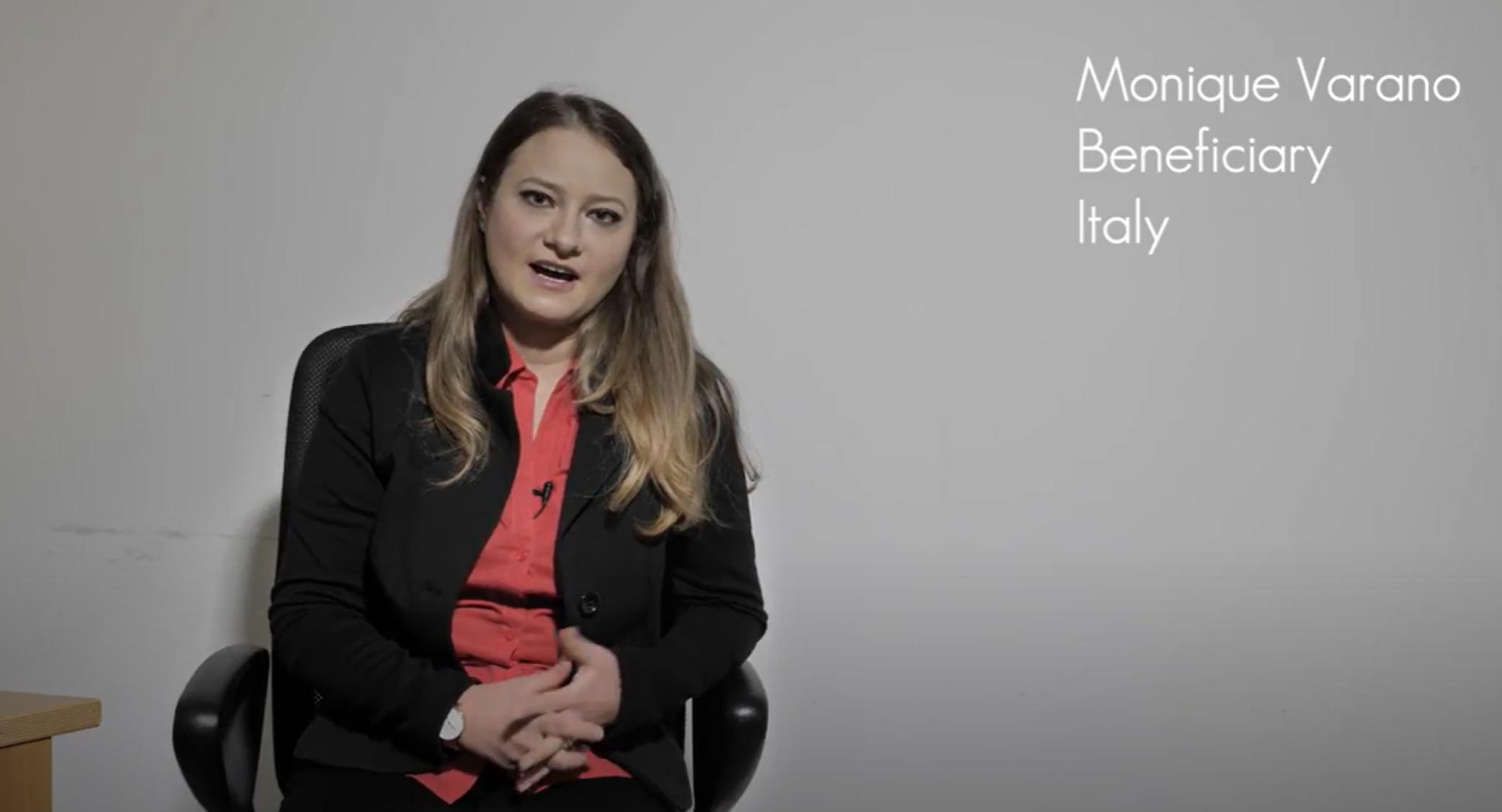
14 YOUTHShare Project Youth Employment Magazine
Tirana EYC 2022 filled with youth energy and vibes through summer
Summer 2022, even though ended quite quickly for Tirana EYC 2022, paved the way to an autumn full of fun activities of youth, inspired by the vibes and energies built from it. Summer found Tirana buzzing with the energy of young people. Of course, it could not have been otherwise this time, because it is the Year of Youth, full of life and positive energy that only young people can bring to the city.
So, what were the fun activities happening? On International Youth Day, on August 12, the Tirana Polytechnic University's building looked like a "postcard" filled with messages from young people.
The National Youth Congress, within the framework of "Tirana European Youth Capital 2022", organized a series of activities that focused on youth stories and messages, both different and original, all these designed by the young people of Albania and the city of Tirana themselves. Ms. Dafina Peci, Executive Director of the National Youth Congress said on this occasion: "History never stops proving that there is always a time for youth! All initiatives implemented by young people, organizations, partners, and donors are in full synergy. The time awaits us to build on what is being designed and invested throughout this year."
Later on, 40 young people aged between 18 and 24 were selected to be the pioneers of the first OriginAL experience in Albania and Kosovo. The young people from the diaspora chose to spend this summer visiting Kosovo and Albania for 10 days to get to know their origins better. The participants were from 15 different countries and had only one thing in common – Albanian origin. They represented second and third-generation immigrants who, even though born and raised in different and multi-ethnic cultures, were eager to discover their roots. They visited Pristina, Mitrovica, Prizren, Gjakova, Lezha, Vlora, Berat, Kruja, and finally in the Albanian capital, Tirana, where on the premises of Tirana EYC 2022 they also held a workshop on public activation and participation in society.
But Tirana, the European Capital of Youth wasn't the only city buzzing with the energy.
During the three days of August 12-13-14, the city of Pogradec, in addition to vacationers, was also energized by young people from Albania and their peers from Kosovo and North Macedonia who

15
Youth Employment Magazine
Youth Employment Magazine


performed a series of sports and water activities, within “Canoe Racing Pogradec 2022”. On the last day, a canoe race was held for the first time in Pogradec, where there were winners in the categories of children, girls, and boys. Present at this activity, the General Coordinator of Tirana EYC 2022 - KRK, Mrs. Aspasjana Kongo explained that the goal of this event is to encourage both local and foreign tourists to visit Pogradec and to experience water sports in the city. Pogradec organizers called this a first pilot project which will be followed by many others, aiming to involve not just Albanians but also young people from beyond the borders of the country.
This upcoming Autumn is already taking shape and filled with plenty more opportunities for young people to participate in and engage. Stay tuned…
16

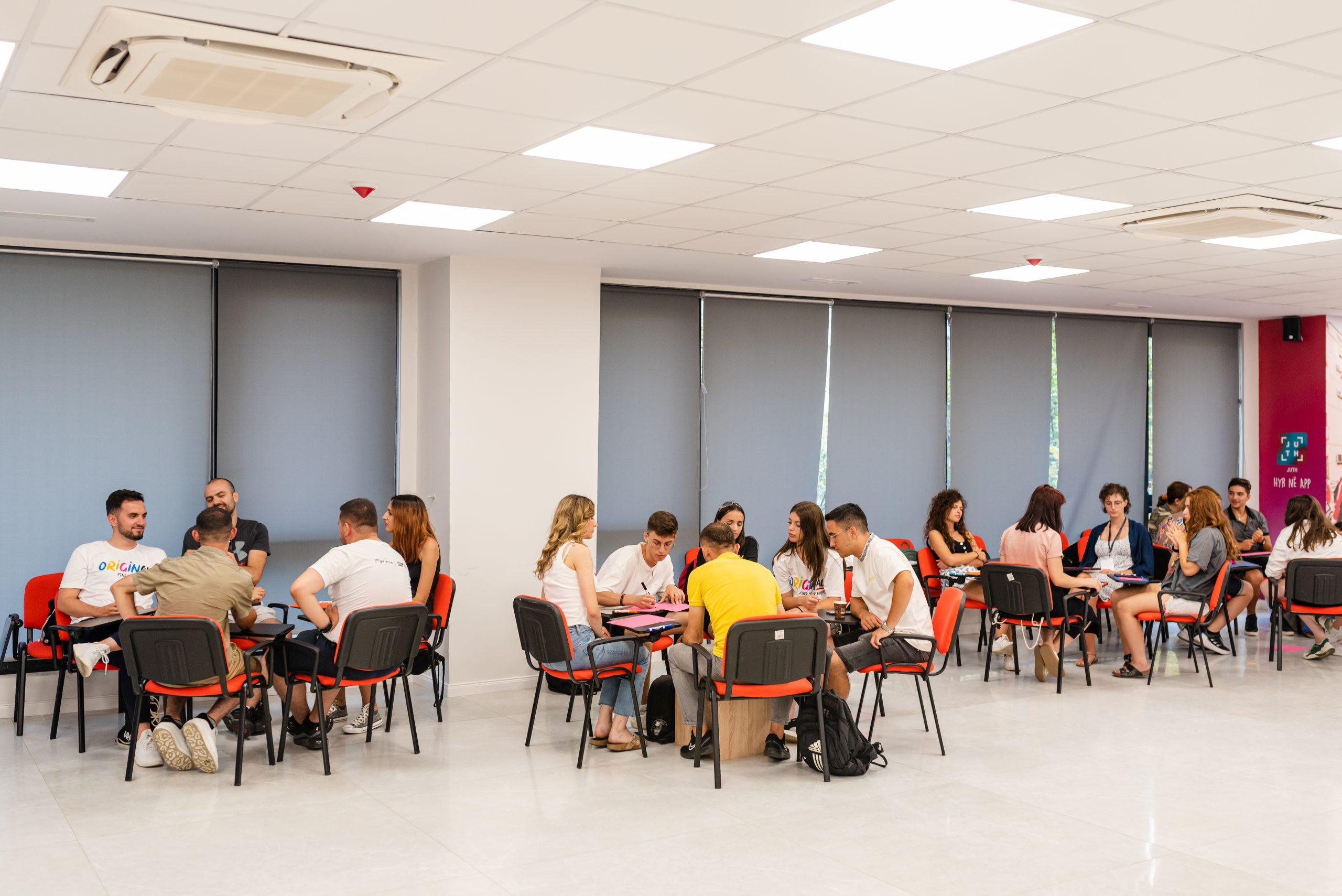
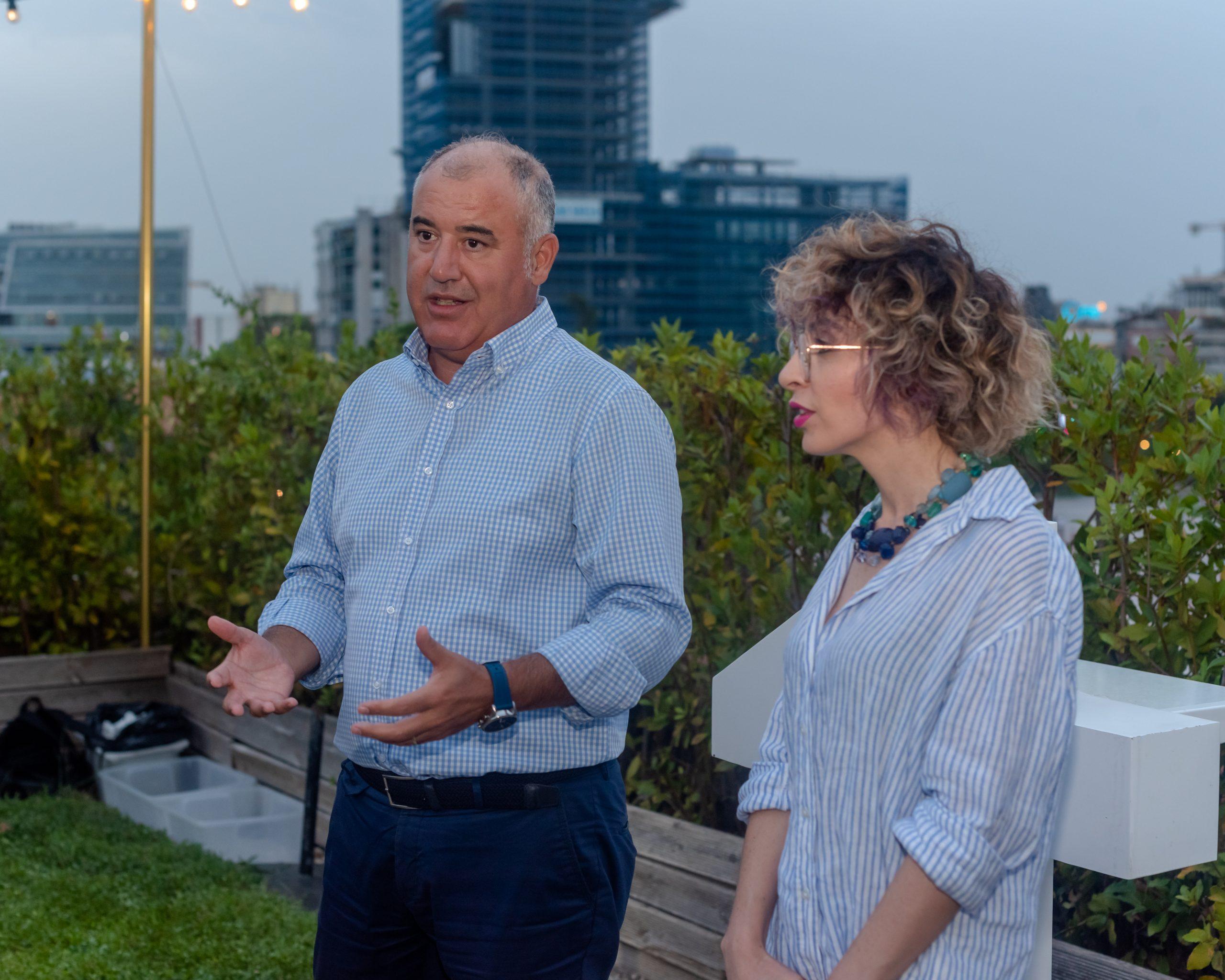
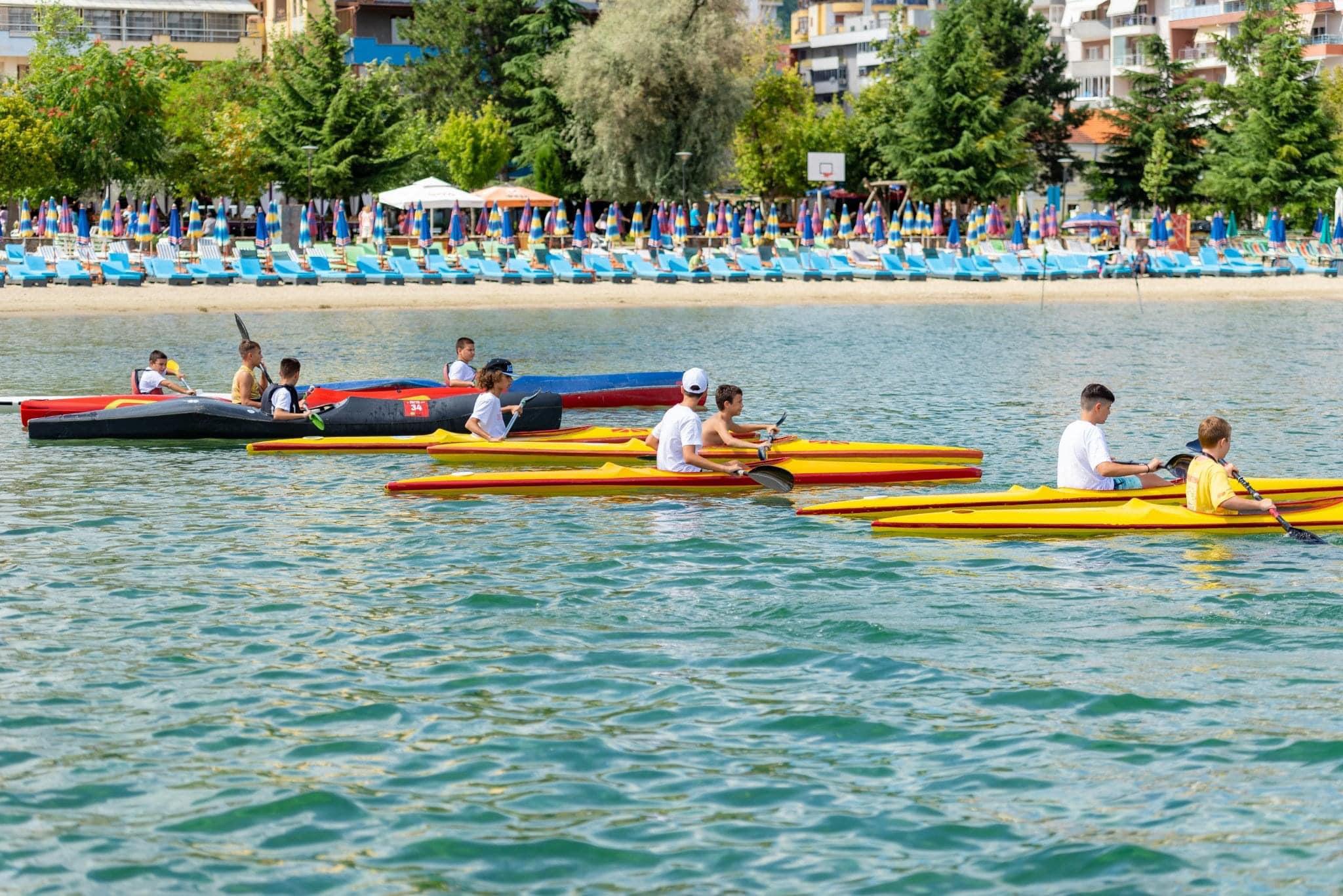
17 Youth Employment Magazine
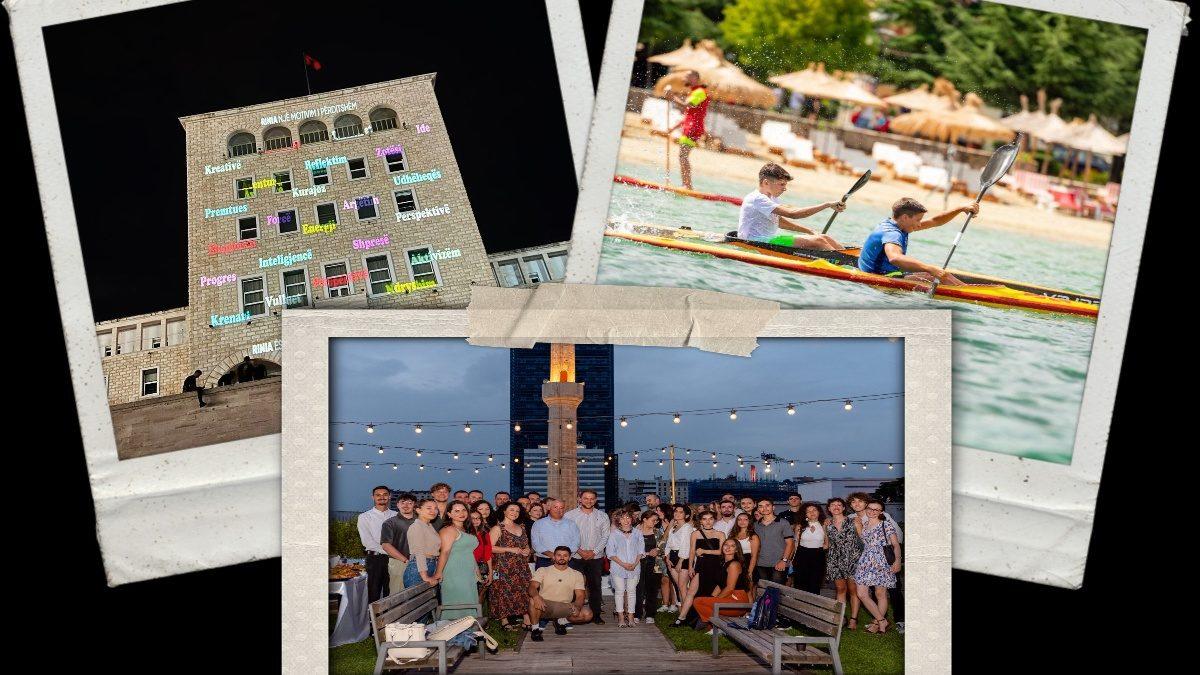
18 Youth Employment Magazine
Youth and Climate Change
More than Words, Where there’s a Will, there’s a Way
Bob Dylan: “How many times must a man turn his head, and pretend that he just doesn’t see?”
Neil Young: “Look at Mother Nature on the run in the 1970s.”
“Respect Mother Earth and her giving ways. Or trade away our children’s days.”
Al Gore: Here is the truth. The earth is round; Saddam Hussein did not attack us on 9/11: Elvis is dead; Obama was born in the United States; and the climate crisis is real.
Severn Cullis-Suzuki: gave a speech at the United Nations Rio de Janeiro Earth Summit in 1992 that ‘silenced the world for 5 minutes.’ Severn said to world leaders, “You grown-ups say you love us. But I challenge you, please, make your actions reflect your words.”
Greta Thunberg: “Adults keep saying: We owe it to the young people to given them hope.' But I don't want your hope. I don't want you to be hopeful. I want you to panic. I want you to feel the fear I feel every day. And then I want you to act. I want you to act as you would in a crisis. I want you to act as if our house is on fire. Because it is.”
Antonio Guteres: “We are heading into a disaster. We have waged war on nature and nature is striking back in a devastating way. The world is “sleepwalking to climate catastrophe,” as the ongoing pandemic, the war in Ukraine and a lack of political willpower undermine humanity’s efforts to slow the warming of the planet.”
Isaiah 24:5-6 : “The earth lies defiled under its inhabitants; for they have transgressed the laws, violated the statutes, broken the everlasting covenant. Therefore, a curse devours the earth, and its inhabitants suffer for their guilt; therefore, the inhabitants of the earth are scorched, and few men are left.”
Barack Obama: “There’s one issue that will define the contours of this century more dramatically than any other, and that is the urgent and growing threat of a changing climate.”
“We need scientists to design new fuels. We need farmers to help grow them. We need engineers to invent new technologies. We need entrepreneurs to sell those technologies. We need workers to operate assembly lines that hum with high-tech, zero-carbon components. We need builders to hammer into place the foundations for a clean energy
age. We need diplomats and businessmen and women, and Peace Corps volunteers to help developing nations skip past the dirty phase of development and transition to sustainable sources of energy. In other words, we need you.”
Until now, for this article I have mostly used other people’s words, not for any plagiaristic pursuit, but rather to provoke and inspire. Words give life to ideas. Words are singularly the most powerful force available to humanity. Words are the precursors of actions. Below are some actions that we might like to see implemented in the fight against the ongoing climate crisis.
The World Economic Forum recently announced that young people are more aware of the climate crisis than older generations, and more engaged in responding to it. Many are joining the global dialogue on solutions, getting involved and taking action. When it comes to decision-making on climate, however, young people often lack a seat at the table. Governments must harness the skills and energy of young people in order to respond effectively. This was followed up by a UN trilogy of suggestions to involve the active participation of youth in the full cycle of actions from design to implementation.
19
Youth Employment Magazine
1. Engage and harness their skills
As nations seek to achieve their respective Nationally-Determined Contributions (NDC) targets, they must harness the skills and experiences of young people. There is data to suggest that young people are taking the initiative to address climate change, from volunteering with organizations to donating to environmental initiatives. They must be encouraged to actively contribute to the current climate action framework and help build a green future.
2. Invest in youth-led solutions
Young people are developing products and services, and leading campaigns to build a green world. There are various innovative solutions that are credible and scalable, in need of support. Governments, businesses and investors must support youth-led solutions to climate change through grants, venture capital, debt financing, or in-kind support.
3. Give young people a seat at the table
According to the UN, there are an estimated 3.7 billion people below the age of 30, representing 48 percent of 2021 global population estimates. For climate-related decision-making to be inclusive and allencompassing, youth inclusion should not be an afterthought. As governments set and review NDCs and develop policies that have climate implications at the national and global levels, young people should be represented and involved in this process. Effective climate
action must be inclusive, allowing everyone to contribute their quota. Young people will play a pivotal role over the next decades, it is important for governments, corporations, and leaders to support and encourage them to actively participate in the global fight against climate change.
Seamus Heaney, Irish Nobel Literature laureate said “I can’t think of a case where poems changed the world, but what they do is they change people’s understanding of what’s going on in the world”. While words are not always enough to convey a landscape’s diversity, richness and depth, it is equally true that “if you have the words there’s always a chance you will find the way”
Thomas Mc Grath

 Our Irish Journalist
Our Irish Journalist
20
Youth Employment Magazine
Theme of the month:
Greening Youth: The role of Youth in the context of climate emergency
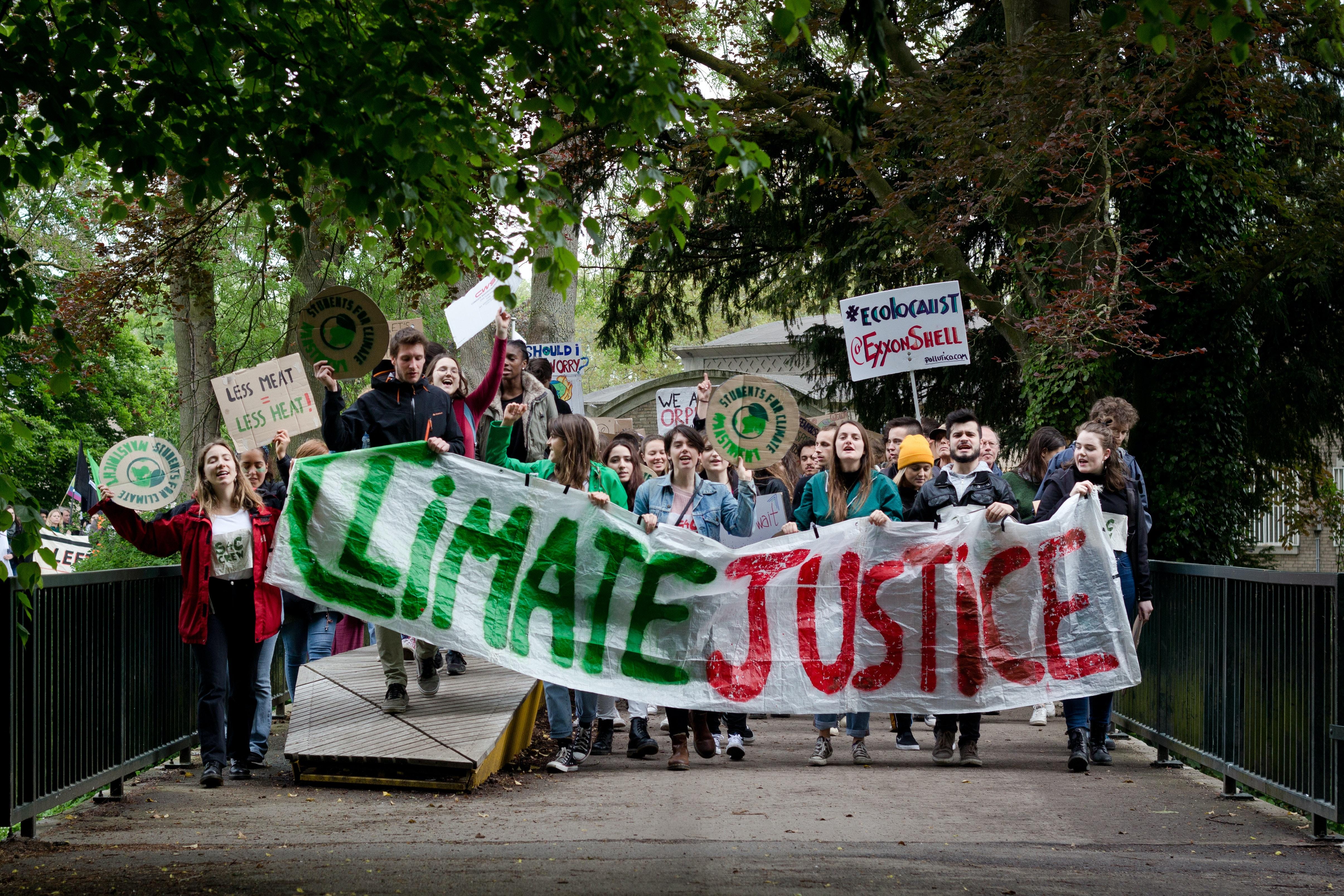
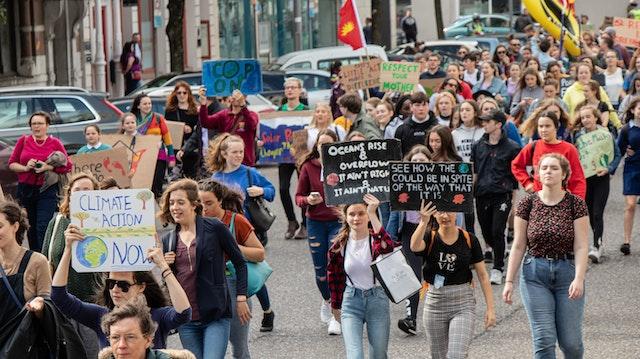
21 Youth Employment Magazine
Greening Youth: The Role of Youth in the Context of the Climate Crisis
Devastating wildfires, flash floods, and heatwaves are among some of the most abundant headlines our younger generations are forced to face as daily occurrences; knowing full well the effects of the climate catastrophe have only just begun to show face. In the absence of any meaningful or immediate action from political and industry leaders, it is us who will be dealing with fires, floods, droughts, and a climate hostile to human habitation if we fail to find and successfully apply immediate and effective alternatives to the fossil fuel industry and other industries destroying life on Earth. These daunting facts and the mounting pressure and threats we face because of them can very easily make young people feel powerless and insignificant, as their futures are being shoved to the sidelines for the sake of present profitability and comfort over sustainability and longevity of future life. Even so, it is now more than ever that activism within youth groups and communities holds an immensely significant role in our perception of politics and the environment.
It is unfortunate to admit that we longer need to look to the future to see what the climate insecure future may look like, it is already all around us. With each passing year natural disasters increase in frequency locally and globally; indications are becoming clearer that the Atlantic Meridional Overturning Circulation – the current that brings warm water into Europe –is weakening; Malta will become a desert comparable to the likes of the Sahara within the century. We are coming closer and closer to tipping points in our climate system that when reached, threaten the immediate habitability of Earth itself. It is difficult to overstate the gravity of the situation, because policy and agenda has allowed the situation to degrade to such a perilous point – and up till now we still see minimal signs of appropriate response to the incredible threat we face – while continuing to harbor a destruction-for-profit approach to our economy which continues to rely on the environment being considered something external to society, rather than the basis of our entire society’s functionality.
Yet with every crisis, there comes also opportunity, as humanity has shown time and time again. Climate change is just one aspect of a much broader societal crisis: biodiversity loss, global inequality, health crisis, poverty, and neocolonialism. All of these problems are interconnected, and by isolating one aspect we can lose sight of the bigger picture. If we want to solve the climate crisis in a way that is fair and just, the time has come to start the next societal change within our politics, our culture, our economies, and even our underlying values and philosophies. A complete change of attitude must take place, both on a personal and national level, to begin moving towards the correct path; this being sustainability and care for our young peoples’ futures. Earlier this summer, the United Nations General Assembly moved to declare the right to a ‘clean, healthy and sustainable environment’ a fundamental human right, showing a leap in understanding of the major actions needed to be taken to acknowledge and finally properly act on the importance of preserving the environment for our own wellbeing.
It is the youths of today that are now taking charge and building their world for tomorrow, leading the path in climate justice and seeking a world where we exercise equal opportunity not hindered by the environmental limitations of the past; but we need everyone’s help to make a future we can all be proud of. Already we can see so much work being put in by some of the most dedicated advocates and while we do not expect everyone to have the same level of input we would like to share with you the many ways one can help the cause: from taking small steps to stay educated on environmental and social practices, showing their support to those who strive to create and achieve these goals and updated policies, to even simple changes such as diversifying our diets into more balanced and less meat and dairy dependant alternatives, or making use of alternative transport means for short distances of travel.
22
Youth Employment Magazine
Youth Employment Magazine
The best way to get yourself involved is to join an NGO or activist group, even if just to keep oneself informed and up to date about the climate and ecological crisis and what is being done to overturn it. Activist groups such as Extinction Rebellion Malta equip young people with the tools and power they need to make their voices heard and to have the power to influence legislation and have control over their own futures. In this pivotal moment where people globally are rising up in the name of their environment and communities, we invite you to be a part of the movement, to no longer have your voice be unheard and to bring your skills to the table as we work together to make ourselves and our future generations proud.
Jobsplus in collaboration with Extinction Rebellion Malta, on behalf of Intercept Project
23
Age is just a number in fighting climate change, too!
Sizzling hot summers, freezing cold winters, melting glaciers and rising sea levels are just some of the most concerning issues of the 21st century. The climate change topic has been largely debated over the past few years, but the truth is, this problem goes back to the 1980s, when the effects of human-generated greenhouse gas emissions have started to kick in. Severe drought in Pakistan, wildfires in California and bushfires in Australia, along massive floods in South Africa show us that no matter how much power or resources a country has, the increase of global annual temperature is threatening to put a stop on the achievement of the 17 Sustainable Development Goals (SDGs). And, to prevent this from happening, we believe that stimulating the participation of youth in the global warming debate could represent a chance at saving The Planet.
The role of Youth in the context of climate emergency
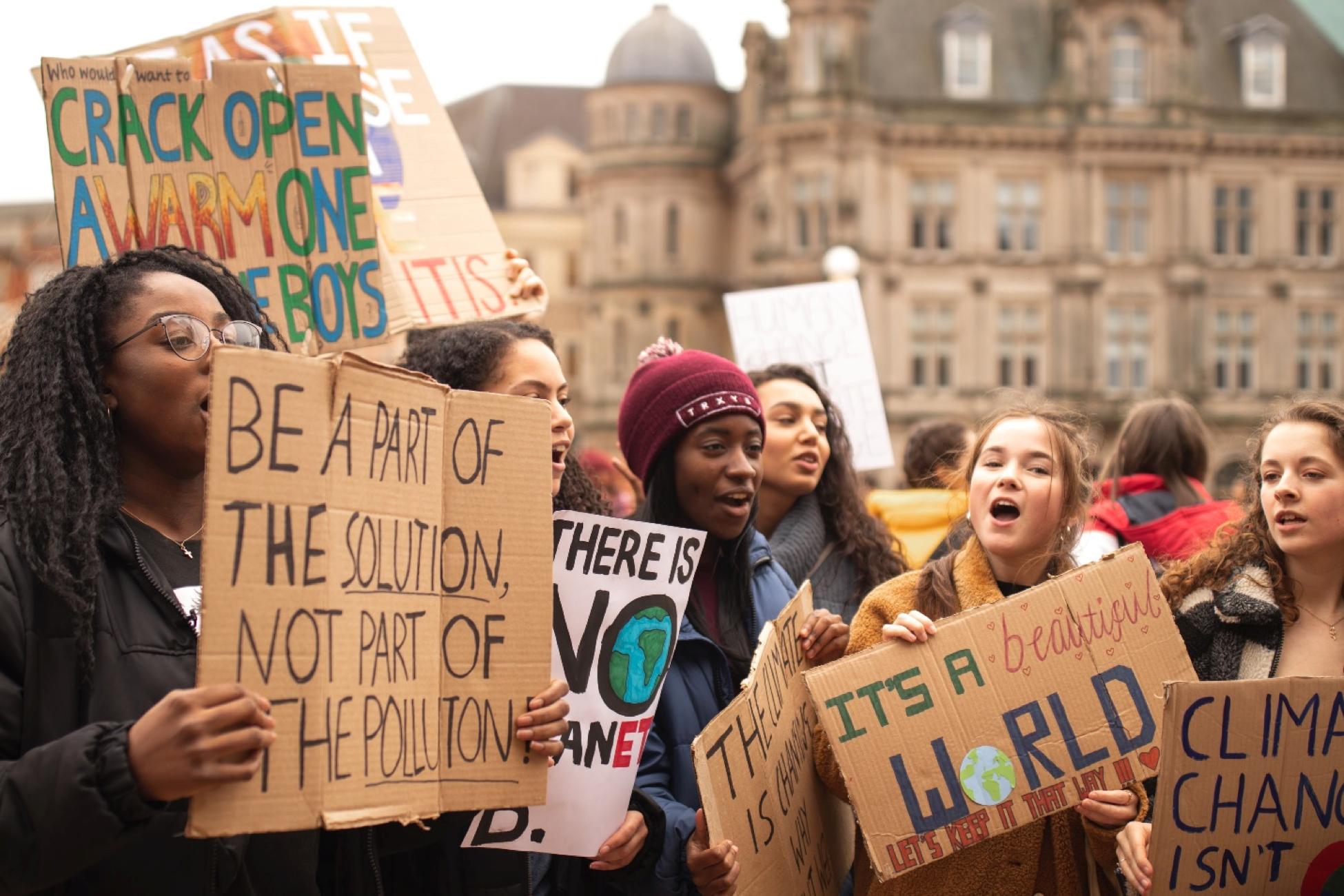
Whether you wish to join a group or take action on your own, every little thing you do in hope to minimaze the climate change impact, is a great deal to the world! But to understand how it works, we first need to go to the roots of the problem.
Simply put, the main responsible "enemies” for this change of weather patterns are the greenhouse gas emissions, a result of human activity: the use of electricity, burning of fossil fuels, deforestation, production of goods, agriculture and many more. Youths, as well as people of all ages, can reduce their carbon footprint, by paying attention to small things: turning off the tap when you’re not using water anymore, unplugging the unnecessary electronic devices, going for a walk or bike ride – instead of taking the car, using renewable energy sources, recycling more, using less heat, avoiding food waste and planting a tree whenever possible.
If, though, your wish is to get involved in a joint action, many NGOs and foundations would happily take you on their team! Not only is the youth movement encouraged in the context of climate emergency, but it also brings a new perspective to the table, showing that it is still possible to
correct the mistakes of past generations and learn from their experiences, in order to create a safer and healthier home for the future. In doing so, young people are given a seat at the table, and it’s vital for governments and political bodies to take their opinions into consideration. The United Nations, for example, is recognizing the youth power in tackling the climate change issue, by allowing them to adhere to organizations such as the United Nations Joint Framework Initiative on Children - Youth and Climate Change (JFI). Other teens, instead, have joined forces to launch awareness and environmental campaigns or set up foundations, as to attract funds for nature restoration and to develop sustainable solutions.
Age is just a number in fighting climate change, too! Take the Greta Thunberg example, who, at 15, was protesting outside the Swedish Parliment, after a long series of wildfires in her country. Rapidly, gaining visibility in the public eye, Thunberg soon became perhaps the world’s most famous climate change activist, a role model for children of her age and adults as well.
24
Youth Employment Magazine
Speaking at the United Nations Climate Change Conference in 2018, and in the 2019 World Economic Forum, she criticized the world leaders for not taking sufficient responsibility in solving the issue, causing thousands of other students to organize climate strike movements, known as Fridays for Future. Being a Nobel Peace Prize nominee, the now 19-years old girl continues to be a voice for young people in the climate crisis, along other teenagers such as Jamie Margolin, cofounder of Zero Hour, a program for people who wish to get involved and help more, or Isra Hirsi, Nadia Nazar, Xiye Bastida and many others.
There’s still hope to change something for the better, but at the same time, our Planet’s health is deteriorating and more challenges are coming everyday. It’s within our power to allow youth representatives to speak for their generation and to give a try to whatever solutions they might find. In the meantime, do something on your own too! Research, read, learn, understand and stay focused on your path, now with a new approach: do everything you used to do before, but with small adjustments and greater consideration for the environment and its wellbeing.
Project SEPAL
25
Youth Employment Magazine
Greening Youth: The role of Youth in the context of climate emergency
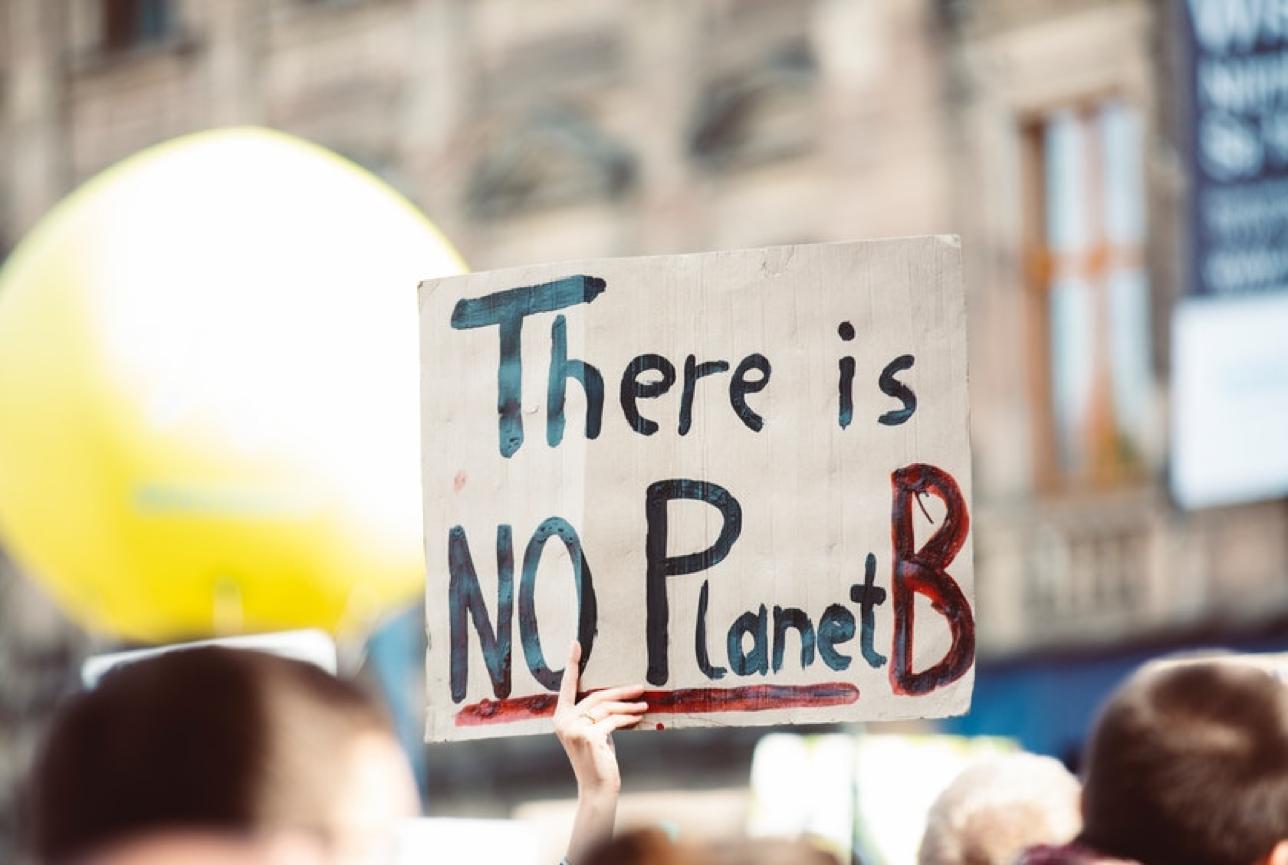
countries including Greece joined forces and claimed their participation in decision-making processes.
yourotrip.eu

ipop.gr
The most frequent problem faced today by young men and women who disagree with the policies implemented to deal with climate change is that no matter how much they react, they are not heard. Although they use all the tools at their disposal to provoke the interest of national climate authorities, such as protests, cultural events, information campaigns and actions, it seems that it is not enough. As a result they seek additional forms of support.
Like ActionAid's Center in Thessaloniki, which not only participates but also plans and implements awareness programs, workshops and participatory activities for anyone and everyone who wants to act on the climate change. One such program is "YOU.th RO.und TRIP. for climate action (YOUROTRIP), through which local youth councils from 8 European
After almost a year, the young people who participated in the program visited the European Parliament in Brussels to present the proposals they created to fight climate change.
Speaking about his experience, Panagiotis says: "All the work we did during the program, the result of which we did not know, was now in my hands to present it and see if it will be heard. It was time to enter the hall and sit at the round table. I represented Greece and analyzed how important it is to have common colors in the waste and recycling bins at the European level and to be accessible to all citizens. The feedback during the presentation was so encouraging. I remember them saying "we want young people to have a voice, to act in public and to have proposals, to present them to the committees and the EU".
26
Youth Employment Magazine
Rafaela, from her side, presented solutions to deal with deforestation and forest destruction. She and her team were particularly concerned with the problems arising from monocultures. “Our proposal to mitigate this problem involved adjusting the way crops are managed through the implementation of mixed crops. This will increase biodiversity, improve soil quality, sequester more carbon dioxide and make crops more productive." The members of the European Parliament welcomed and listened to the children with interest. Their recommendations were followed by discussion, exchange of views and ideas for next steps. Regardless of which and how many of these proposals could be adopted in the future, the most important part of “Yourotrip” and other similar programs is raising awareness among young people about the public and trying to find solutions to issues that concern everyone.
The ActionAid Center in Thessaloniki promotes the employability and active participation of young people in the life of the city, through art and volunteering. The aim is through its actions to strengthen the skills of young people, enabling them to play an active role in the cultural, social and economic life of their city, creating the framework for them to become protagonists in a sustainable city.
Sources: https://ipop.gr/ https://www.actionaid.gr/ https://yourotrip.eu/home/
Project SEPAL
27
Youth Employment Magazine
A green generation – The youth commitment to the climate emergency
The Intergovernmental Panel on Climate Change (IPCC), the leading international body for the assessment of climate change, warned the world during the UN body’s Sixth Assessment Report that there is no longer any margin of space or time to deal with global warming. With the temperature increase of more than 1.5 degrees Celsius expected in the coming years, the world will face multiple unavoidable climate risks.
The four main risk categories identified for Europe and the Mediterranean basin are:
1) Heat waves on populations and ecosystems;
2) Substantial losses in agricultural production for most areas of Europe;
3) Risks of water scarcity;
4) Risks posed by increased frequency and intensity of floods.
In this context, young people are the most active, motivated and concerned about the climate emergency. In fact, as noted in a recent survey, young people mentioned protecting the environment and combating climate change as one of the top priorities of the European Union (Eurobarometer 478). Young people from Italy and the United Kingdom are the main ones to put this issue as a priority. In fact, the data of a survey carried out by the UN together with Oxford University involving almost 700,000 young people showed that, together with those from the United Kingdom, Italian girls and boys showed the highest percentage of concern and need for action on climate issues, a good 86%. In addition, young people are the ones who participate most actively in environmental and rights associations. As proof of this, it has been observed in Italy that the number of young people in the 14-24 age group participating in such associations varies from 2.6% to 4.4%, depending on the specific age, which is significantly higher than the national average of only 1.7% (Source: Istat, 2020). The reasons probably lie in the fact that today’s
young people are highly informed and conscious of the issue and, furthermore, climate risks, as they will become more and more prevalent in the coming years, will mainly affect future generations, the children of today’s youth. Among the concrete actions of great resonance, we can recall the lawsuits made by youth groups against the governments of certain countries. For example, the lawsuit made by some young Dutch people from the environmental organization ‘Urgenda Foundation’ against the Dutch government for inaction on climate, made in 2013 and unexpectedly won in 2019, with an imposition by the Supreme Court of a 25% reduction in emissions (compared to 1990) by 2020. And again, the story of a group of 25 young Colombians who won a lawsuit against their government in 2019, charged with failing to protect the Amazon rainforest from deforestation. These are just a few examples of how young people are and will be the protagonists in the fight against the climate crisis and, for these reasons, the political elites will have to work harder to give more value, more strength and more support to all those who are concretely committed to the fight against climate change, through targeted and effective policies.
ATIS Team StayOn project
28
Youth Employment Magazine
Greening Youth: The role of Youth in the context of climate emergency
It is generally accepted that the climate is changing on a global scale.
The effects of climate change are already visible, from rising air temperatures, melting glaciers and shrinking polar ice caps, rising sea levels, increasing desertification, as well as more frequent extreme weather events such as heat waves, droughts, floods and storms.
Natural outcomes of this situation are the tragic consequences we are already facing. Unprecedented heatwaves are plaguing the countries of Europe. In fact, the United Kingdom for the first time in its history recorded temperatures above 40 degrees Celsius!
Professor emeritus of climate hazards and geophysics at University College London, told the Guardian: "This is just the beginning.”
Climate change and the destruction of the natural environment has worsened due to human intervention. Youth play a crucial role in combating climate change. They are valuable contributors to climate actions but let’s not forget that they are also victims of the climate change and are facing an immensely difficult situation that previous generations passed on as an inheritance when they failed to respond adequately to this dramatic challenge. According to the United Nations Development Programme (UNDP) “People’s Climate Vote”, the largest survey conducted in 2021 on climate change, youth below the age of 18 believe to a rate up to nearly 70% that climate change is a global emergency. Young people are already recognizing the importance of the issue upon us and whether through education, science or technology, they are scaling up their efforts and using their skills to accelerate climate action.
Young people are the key agents when it comes to change for a better future. In order to lay the foundation for a peaceful and a sustainable future
we must empower youth and collaborate with them. Given their growing commitment towards tackling the climate crisis, acknowledging the enhancement of the youth’s inclusion in climate debates and decisionmaking processes is fundamental.
Young people all over the globe are raising their voices to demand climate action. Strikes, lawsuits and public awareness events by young activists, below the voting age in their majority, are the alternative means through which they are fighting through to make their voices heard.
As a final remark, the young Europeans have strongly expressed their willingness to engage in the EU climate policymaking. At the same time, the EU has declared many times the necessity to integrate the young Europeans into the EU climate policymaking but the appropriate tools to follow through its intentions have not been applied. Therefore, there seems to be a mismatch between the willingness of the youths to be represented into the EU climate policymaking and the EU instruments in place and appropriate actions need to be applied in order to fill this gap.
Rezos Brands team
StayOn Project
29
Youth Employment Magazine
Greening Youth: The role of Youth in the context of climate emergency
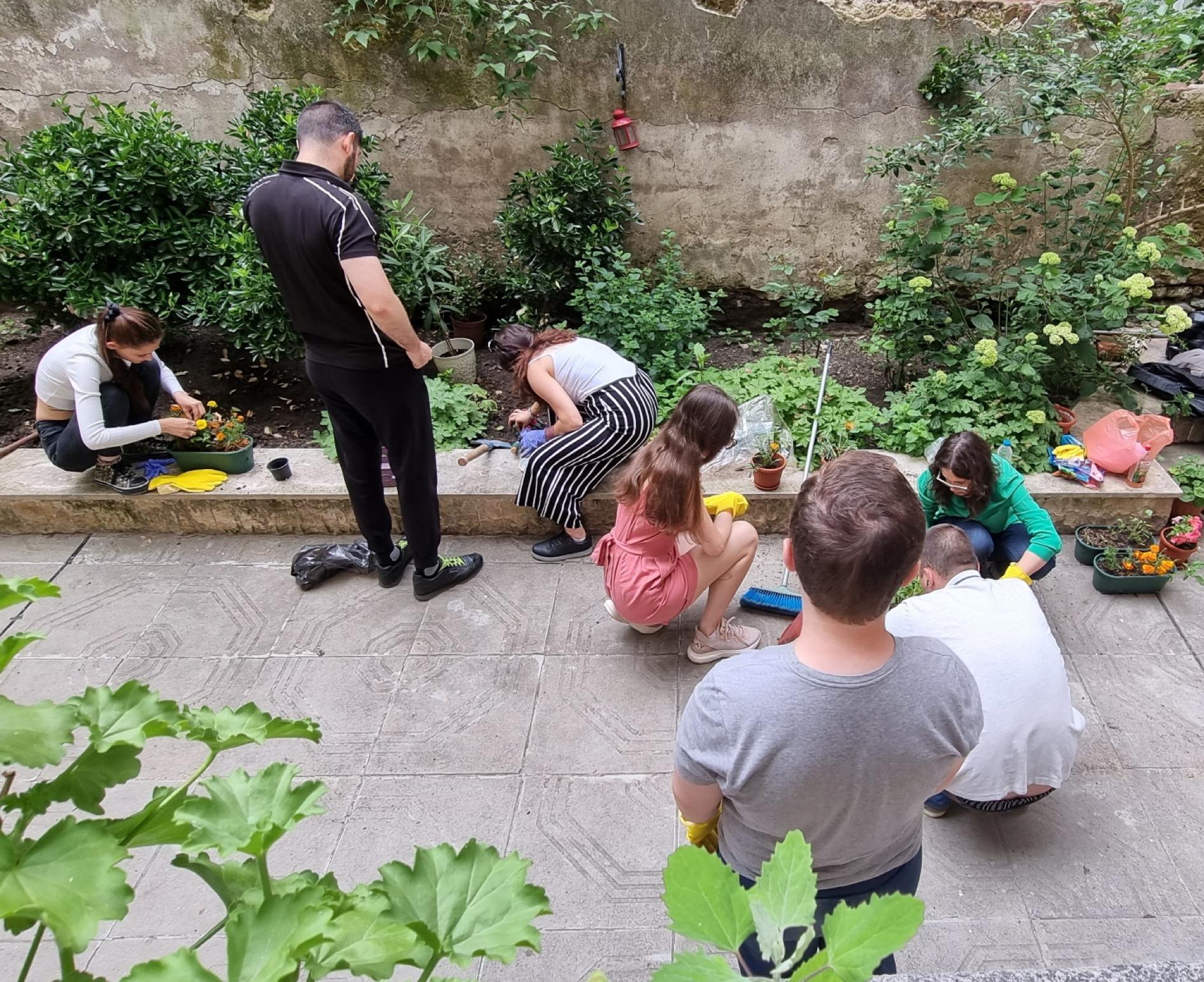
need evidence and competency in order to tackle the climate crisis and contribute to a safer and more sustainable future. They can be educated through: schools, colleges, universities and other educational bodies that have integrated climate change education into core curricula; print media and trustworthy online platforms; thinking about environmental footprint and reducing personal impact as far as possible. In our Youth House, we occasionaly conduct seminars and workshops about ecology and healthy lifestyle. We also have gardening activities which are cherished by many of them because it makes them feel one with the nature. This practical activity improves their awareness about environmental problems like nothing else. One of the boys from our group even found a farming job and he enjoys it a lot.
Climate change affects each and every one of us. With over 11, 000 signatures scientists around the world declare clearly and unequivocally that planet Earth is facing a climate emergency (Ripple et al., 2020). In 2019: “2,268 jurisdictions in 39 countries around the world have declared a climate emergency. Populations covered by jurisdictions that have declared a climate emergency amount to over 1 billion citizens” (Climate Emergency Declaration, 2019). There is a ton of information on this topic, leading us to the conclusion that we are in dire need to take action against the climate crisis. But the good news is that everyone can help, especially the youth. We believe that young people have an extremely important role in creating a better future for all and even bettering the present climate conditions. They are the next generation of decision-makers and global leaders.
The first thing that young people can do in the fight against climate change is to get informed and well prepared for climate action (Hinton, 2021). They
After getting informed the next step for the youth is taking a strong stance on the topic of climate change. The younger generation should be heard. They should speak up: share the numbers and spread the science using the latest data (Hinton, 2021). Fortunately, the young people we work with are educated about “the ins and outs” of Internet, which is fundamental when trying to spread important information globally. For instance, Greta Thunberg, only 15 years old, managed to capture the attention of the world’s media and not only that, she inspired millions of teens to take part in demonstrations and the most important thing: she opened a dialogue about climate change. Internet is not the only place for spreading awareness, and our group of young people advocate for climate action also within their families and communities.
The new information can be applied into new lifestyle changes as well (Hinton, 2021). These changes are possible for every age group, they can be small and can start at home or at school. For instance: using predominantly public transportation, walking or riding a bike instead of going to school by car. Another good way of helping the Earth is by buying less: from clothes to food to electronics and more.
30
Youth Employment Magazine
Nowadays there is actually a lot of young people who buy second hand clothes, try to style them, alter or give them a new life. It’s way more affordable to buy second hand; it gives you the opportunity to be creative and of course – it doesn’t produce more waste. Another way to use style and help the climate crisis is through using less plastic and more reusable bags e.g. tote bags. The young people we work with love creating different items and once we had an art workshop where they decided to draw on a textile bag, which they wear wherever they go. The future is in the hands of our youth. They are more aware, ready to listen, learn and ready to be responsible. There is a lot of ways to do that, but every one of them is through getting educated and being capable of changing for the better. They are open to try new things, even if that means leaving some of the luxuries of the present behind. Young people are and will be active in the context of climate emergency.
References
Climate emergency declarations in 549 councils cover 65 million citizens - Climate Emergency Declaration. (2019, May 22). Climate Emergency Declaration. https:// climateemergencydeclaration.org/climate-emergency-declarations-cover-15-millioncitizens/
Hinton, R. (2021). Young people’s fight against climate change: Actions we can take for health and well-being. Knowledge Summary: 2021 Women’s, Children’s and Adolescents’ Health, 38
Ripple, W., Wolf, C., Newsome, T., Barnard, P., & Moomaw, W. (2020). World Scientists’ Warning of a Climate Emergency. Bioscience, Oxford University Press (OUP) https:// doi.org/10.1093/biosci/biz088/5610806
Project L.I.K.E.
31
Youth Employment Magazine
Greening Youth: The role of Youth in the context of climate emergency
Fighting climate change is a key and important issue in every country. Intense rainfall, inundation or flooding, dangerous storms and hurricane winds are just some of the extreme weather phenomena that are increasingly occurring in Poland. In a special scientific report prepared by the United Nations, we read that the catastrophic effects of climate change will occur sooner than predicted. It turns out that even the range between 1.5ºC and 2ºC, which until now was considered relatively safe for humanity, means such a large impact on the climate that we will not be able to stop its tragic effects, and some species will not have time to adapt to new reality and weather conditions.
However, in the report of the Intergovernmental Panel on Climate Change (IPCC), prepared on the basis of 59,000 scientific papers, we can read that "we are on the way to a climate catastrophe." According to the authors of the report, each sector has the potential to reduce emissions by at least 50% by 2030 to do as little damage as possible not only to the planet but also to humans.
Startups have a positive impact
Companies want to contribute to the beneficial changes taking place in our communities - it is a visible trend on the Polish market as well as around the world. Young entrepreneurs implement business models that generate economic, environmental or social benefits at the same time. The motivation of the founders is often personal, which stems from the inner needs of caring for the planet.
For several years, a growing trend in switching to plant-based diets has also been noticeable around the world. More and more people are looking to change their eating habits for health reasons, for ethical reasons or to improve the climate.
How much is animal farming harmful to the planet?
The WWF Poland Foundation conducted research on the involvement of young people in pro-ecological activities. The research shows, among other things, how important it is to educate young people for whom caring for the natural environment has become part of their everyday life. They are also convinced that what they do at home has a direct and significant impact on the environment.
We also see that more and more startups create their products and services, focusing on solutions that have a positive impact on the quality and life of society.
Livestock farming is responsible for 14.5% of human greenhouse gas emissions, and although it only provides 18% of the world's calories, it takes up 77% of agricultural land. This is mainly because land is needed for both growing animal feed and raising the animals themselves. Moreover, feed production is responsible for 41% of emissions from livestock farming.
More and more people want to save the world by changing their eating habits. This is also the case with Kasia Rećko - a vege dietitian who specializes in balancing and promoting plant-based diets and helps women with hormonal problems.
The worsening climate crisis is causing more and more losses ... can it be prevented?
32
Youth Employment Magazine
A plant-based diet that is good for people and friendly to our planet
Keeping animals, especially cattle, is much less productive than growing plants. Mass production of meat indirectly contributes to the world hunger crisis, as an increasing part of the arable land is devoted to the production of grains that will be eaten by livestock.
Kasia has noticed this problem a long time ago, therefore, with her actions, she encourages to limit meat consumption by taking small steps, getting the body used to changes and learning how to balance plant meals.


The promoter of the plantbased diet also runs an online store where you can buy ready-made, simple menus. Importantly, meals are based on easily available products, so that people, even from smaller towns, can easily make changes to their diet.
Vege dietitian applied to one of the editions of the YES program - Young Entrepreneurs Succeed! Participation in workshops and mentoring gave her a large injection of knowledge, which helped her develop her own, one-person company, in which she does everything herself, including devising strategies, concept of activities, acquiring clients, preparing menus and nutritional plans, running social media channels and leading bookkeeping.
Choose wisely - support locally
Like the meat industry, the clothing industry is becoming an ever greater threat to the environment. Approx. 85% of textiles end up in the garbage every year. That's enough to fill Sydney's port every year.
In order to limit the negative impact on our planet, more and more new fashion brands operate in the spirit of slow fashion, i.e. responsibly and locally, which shortens the supply chain or CO2 emissions.
An example of such a company is KERTA, founded by one of the participants of the YES! - Paulina Bździkot. KERTA is a brand of medical clothing that is produced in Poland from start to finish. All fabrics from which the collection is made come from reputable suppliers, meet the required standards and have Oeko-tex® standard certificates.
The founder of the brand is a clothing designer with a sense of mission, which means that she is often additionally involved in various fashion projects, such as: garment design workshops in the spirit of recycling.
She lives socially responsibly, hence the idea not to develop another brand that will only drive consumerism, but most of all will become useful, help people at work and will be in the spirit of less waste.
33
Youth Employment Magazine
Supporting young entrepreneurs is helping ourselves
We are very happy that more and more young people want to have a real impact on what is happening in the immediate vicinity, and we know that among us there are many people with great ideas that will revolutionize the future and help mitigate the negative effects of the climate crisis.
It is important to enable and help such people through various programs, including via YES! - Young Entrepreneurs Succeed! - which offers intensive courses, practical knowledge and work with experienced specialists and business practitioners during workshops.
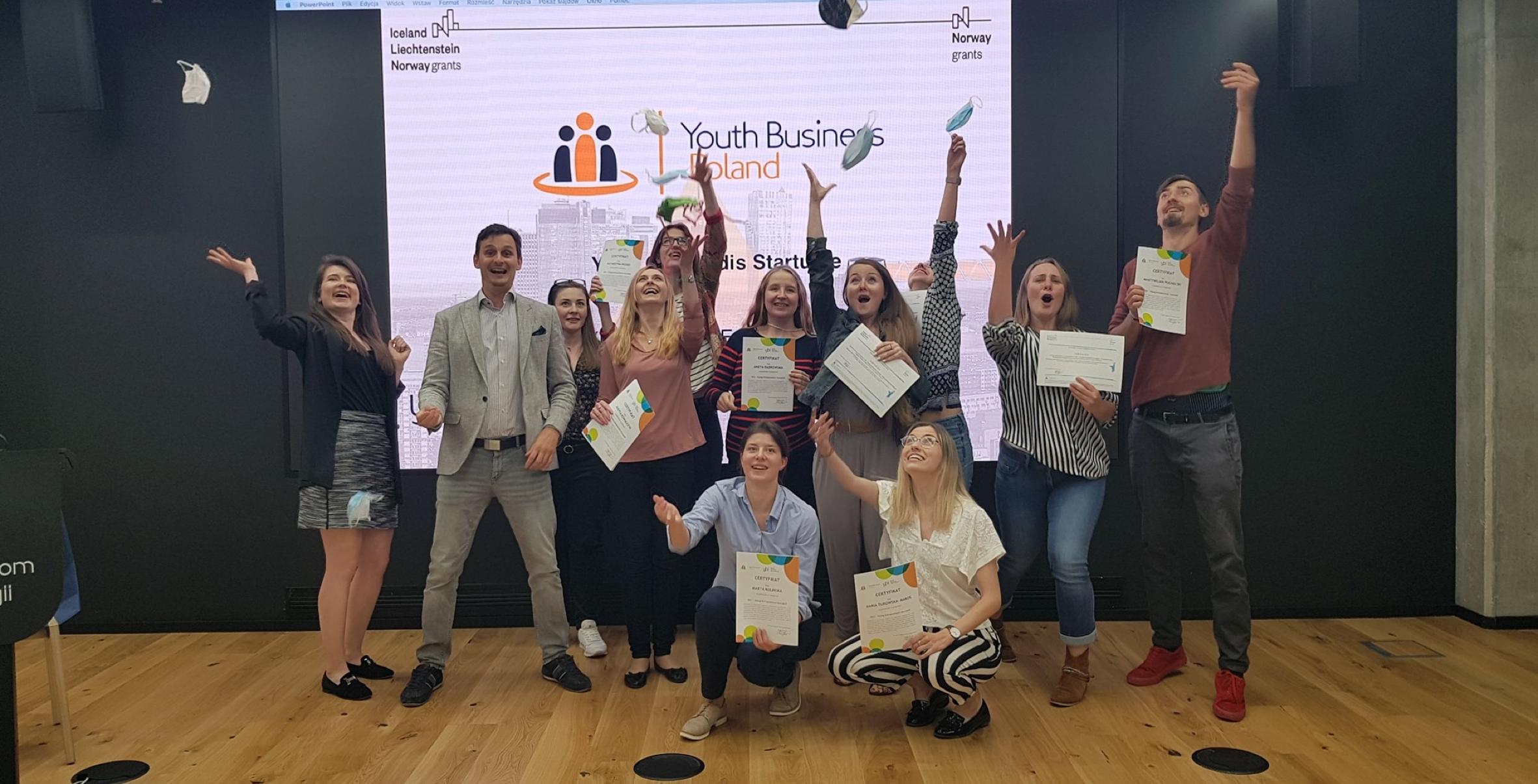
LINKS:
Katarzyna Rećko – Dietetyczka https://katarzynarecko.com/ "KERTA" PAULINA BŹDZIKOT https://kerta.com.pl/
Project YES!
34
Youth Employment Magazine
Supporting young entrepreneurs to start and grow green businesses
Around the world, we see young people at the forefront of climate change activism. As those who will be the most affected by the repercussions of climate change, young people feel a particular sense of responsibility to protect the environment. This is also evident in the growing number of young green entrepreneurs around the world supported by Youth Business International’s (YBI) global network. As we see more and more young people start businesses with an environmental mission, it is crucial that we provide them with the support they need to succeed. Our positioning paper ‘Shaping A More Inclusive, Equitable and Sustainable Future: Supporting young social and green entrepreneurs’ defines key areas of support in personal development, business development and enabling environment facilitation for young green and social entrepreneurs.
Personal Development
Young green entrepreneurs have incredible passion but sometimes find it difficult to connect it to purpose and profit. They need the skills to channel their passion into developing a marketable business idea that has economic value and purpose. They need to align passion and purpose alongside profit, and to develop leadership qualities to help them navigate potential tradeoffs. Personal development support for social and green entrepreneurs needs to help build confidence and capability in these areas. It needs to help the young entrepreneur tell their story, and the story of their business, with conviction and authenticity.
Young green entrepreneurs may need a greater degree of patience and persistence than their entrepreneurial peers. Green business models and ideas — although growing in number and stature — remain nascent concepts. Innovative ideas and approaches may not be immediately understood by customers, investors, networks, or other actors in the ecosystem. It takes time to socialise the idea and bring people along. In
many cases, an entrepreneur may need to build the market for the product or service from scratch. This requires additional patience and persistence.
Business Development
Unlike traditional businesses, the success of a business with an environmental mission is not only measured by its profit by the impact it is making and the degree to which it is achieving its environmental mission. It is therefore vital for young green entrepreneurs to learn how to measure and manage their business’ impact. With limited resources, measuring impact can be a vital component of effective planning and strategic decision-making. By figuring out what’s working and what’s not, social and green enterprises can focus their time and effort to where they matter most. Measurement can also be a critical part of risk management, giving sight of potential threats and providing an evidence base for mitigation. Externally, an entrepreneur may increasingly need to demonstrate their impact to their stakeholders, particularly as awareness grows of green or impact ‘washing’. Measuring impact can help ensure accountability and transparency – not only to the team, but also to customers, donors, and beneficiaries.
There are various forms and degrees of impact management. Some entrepreneurs develop management, monitoring and measurement systems to track and report on performance against defined impact parameters. Others find this too costly or time-intensive, may not see the need, or may not have the necessary skills at the startup phase. YBI members encourage young entrepreneurs to consider key performance indicators of impact — or else they won’t know if the business has any impact at all.
35
Youth Employment Magazine
Youth Employment
Enabling Environment Facilitation
Markets for green products and services aren’t always straightforward, particularly for new and innovative solutions. In some cases, a young entrepreneur may need to develop the market themselves. This requires partnerships, networks, capitalising and thinking ‘outside the box’ to find new pathways to market and market opportunities. YBI members can help young green entrepreneurs identify partners and channels and facilitate introductions. Similarly, young people may need resources to develop and test their products. This can require connections with universities, labs, innovation centres, and institutes. This is an area where YBI members can create value.
Read more on how to support young green entrepreneurs in our positioning paper ‘Shaping A More Inclusive, Equitable and Sustainable Future: Supporting young social and green entrepreneurs’ at www.youtbusiness.org.
Project YES!
36
Magazine
From sharing to caring
The role of youth in the context of the climate emergency
Young people are acutely aware of the threats the climate emergency poses. They are the ones entering the streets, hold corporations and governments to account. and contribute significantly to the heated discourse. Especially young people from underserved communities and backgrounds will be affected by climate change and the increased costs of living and dramatically rising energy costs. While the economies across Europe still try to recover from the after-effects of the COVID-19 pandemic, the war in Ukraine has shifted the attention of the public once again from much needed social innovation and efforts to create more social cohesion. Whilst the climate emergency is complex and can be overwhelming it is worth exploring opportunities on local level with young people at the forefront of developing new ideas and potential solutions. Additionally, the (new) roles of different actors from the public and private sector should be considered. One of the key aspects for all approaches seems to be a change in understanding individual responsibility to be more careful and considerate using available resources – or in other words: We need a shift from a sharing to a caring economy, where resources are also used for the benefit of those who are affected the most.
The role of technology
Not surprisingly, disruptive, technology based business models have been considered to offer easy access to markets, providing new opportunities also for underserved communities to generate income and help using resources more efficiently. The celebrated „New Work“ discourse had to make room for a much more critical debate which highlighted the legal issues, access to social security, violations of regulations, i.e. in the hospitality sector and for taxi industry. The downside of the Gig Economy has become subject of a heated debate across many disciplines ranging from law via business economics to ethical considerations. Despite the negative side-effects, the sharing economy offers opportunities for the
young which are rooted in a shift of values and a new understanding of a need to change how we interact and do business with a view to a more inclusive and sustainable way of life. There is plenty of evidence that trust in technology based solutions is not justified without corrective measures from lawmakers. The cost of living crisis is exacerbated by rising rents in areas attractive for tourists. Larger companies dominate the market for sharing assets making it more difficult for smaller, local initiatives to become sustainable. However, such technology based business models proof that there is an interest in sharing assets and resources which have the potential to reduce the carbon footprint, offer affordable access to locally produced food and alternative forms of transport. Local bike rentals and repair initiatives, car sharing and community gardens may serve as example for such initiatives. For young people such alternative ways of thinking about buying local and using rental and sharing services has become a way of life – sometimes out of economic necessity, sometimes with a sense of living a more sustainable way of life.
Focus on local
A shift of values as well as a more social and ecological attitude is necessary to address the huge challenges the climate emergency presents. This requires a shift towards more socially inclusive and ecologically sustainable programmes support the young to develop such a mindset through leading by example. First and foremost it should be mentors, coaches, programme designers as well as policy makers, public and private donors to focus on programmes which intend to find solutions for the multi-faced challenges we all experience already today. All involved actors need to experiment, test, implement and evaluate the outputs and outcomes of local strategies and programmes which can address the most pressing issues. It is fair to say that no-one has solutions at this point in time. But through collaboration on local level and an open exchange of ideas and potential solutions across Europe we might identify ways toward a more just and resource-saving way of life.
37
Youth Employment Magazine
What we already know is that anonymous corporations will very likely focus on generating profits, which is still an acceptable way of doing business. Nevertheless, we need a shift from sharing to caring ways of doing business. The photo above illustrates what we already see on a larger scale: Resources and assets can be shared but only if users treat them as if they were their own a mentality of caring can develop which will allow for easier access to available resources such as means of transportation, tools and machines necessary to do business and last but not least human resources. In the context of NEETs research indicates quite clearly that the most successful and promising intervention help to build external resources for their beneficiaries. To support building such resources community managers, mentors and coaches can play a very important role. It would be naive to assume that just the implementation of community based initiatives will lead to promising outcomes. As support organisations we need to invest into new forms of supporting staff, such as coaches, trainers and volunteer mentors through adequate forms learning together. From there a new dialogue with policy makers and institutional donors can ensue. Last but not least, as support organisations and researchers we should be willing to learn from the young through open dialogue and design and implement programmes which make it easier for them to build a future – based on caring for each other rather than just sharing.
Bibliography:
Das, S. (2018) “Sharing Economy,” Wilmott, 2018(93), pp. 14–17. doi: 10.1002/wilm. 10641.
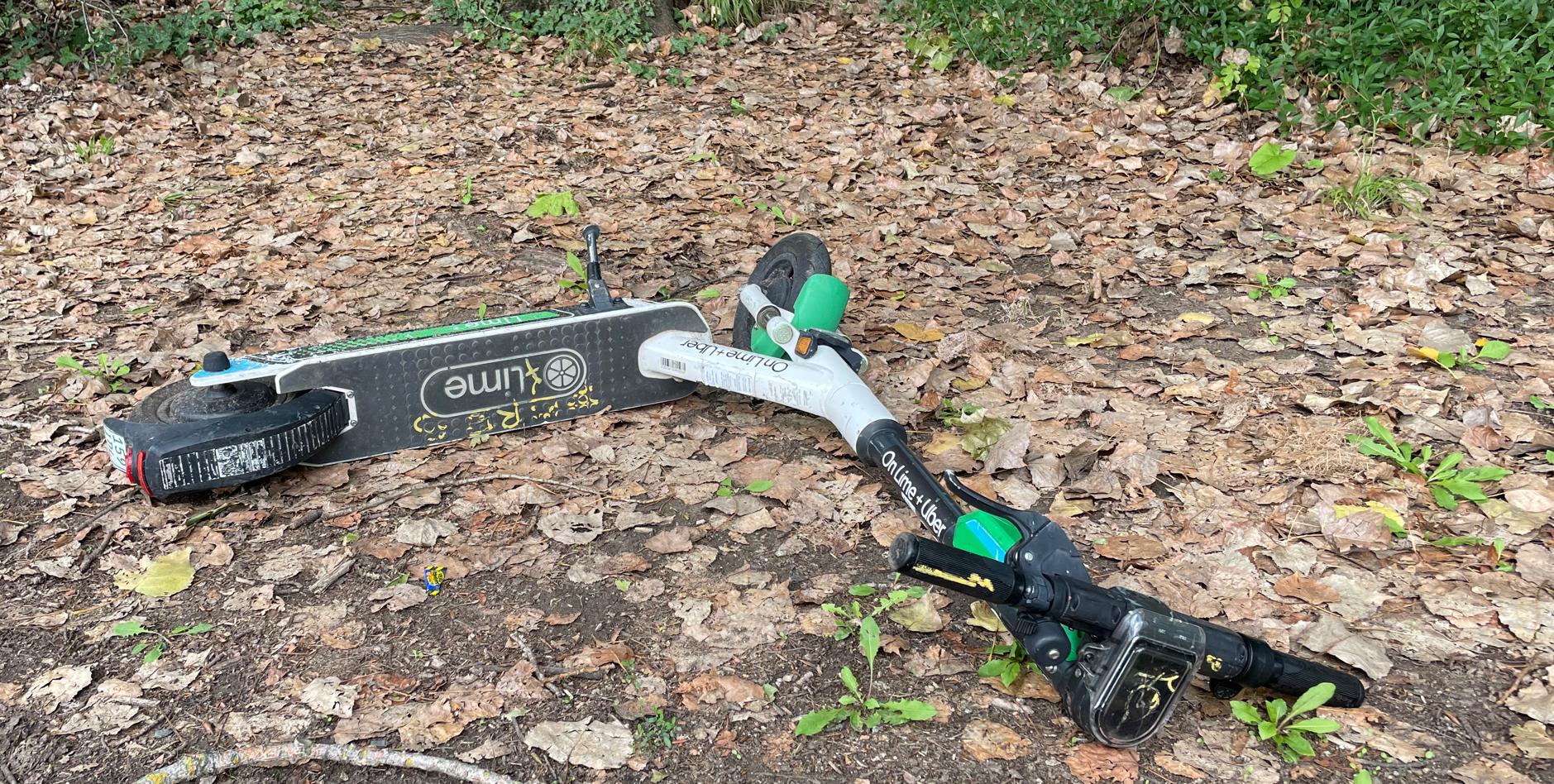
Etter, M., Fieseler, C. and Whelan, G. (2019) “Sharing Economy, Sharing Responsibility? Corporate Social Responsibility in the Digital Age,” Journal of Business Ethics, 159(4), pp. 935–942. doi: 10.1007/s10551-019-04212-w.
Rechene, S. T., Silva, M. E. and Campos, S. A. P. (2018) “Sharing Economy and Sustainability Logic: Analyzing the Use of Shared Bikes,” BAR - Brazilian Administration Review, 15(3). doi: 10.1590/1807-7692bar2018180026.
Spiess-Knafl, W. (2018) You had only one job. Transforming social security systems into the digital working age. Study for NEOS Lab & ELF.
Joerg Schoolmann, Guillem Aris; autoocupacio, Barcelona
Photo: Joerg Schoolmann
Project YES!
38
Youth Employment Magazine
Engaging young people against climate change. The Think Tanks of EUTeens4Green
Climate change is, probably, one of the biggest challenges humanity has to face during all its history but, how does young people can contribute to forestall and even revert the effects of climate change?
Even though there is no simple answer on how we, as individuals, can contribute to halt its effect, there are several initiatives on a global, national, and regional level that aim to engage parts of the population in the fight against climate change but we would like to point out on in particular. FUNDECYT-PCTEX, RAISE Youth project partner, has been invited to collaborate in the Think Tank organized within the framework of the EUTeens4Green project.
The EUTeens4Greeen - New Generation of Youth Ambassadors for an Inclusive Green Transition- is a project led by a consortium of the associations Startup Europe Regions Network, Youth Environment Europe and CEE Bankwatch Network. Distributing grants of up to 100.000€ for young people, between the ages of 15 and 24, and youth associations of eligible regions for the Just Transition Fund, this project aims to implement initiatives that will contribute to a better participation of the “less exposed” people in territories most affected by the transition towards climate neutrality, thus helping tackle the negative effects of climate change by engaging young people and associations in meaningful activities in their territories.
Being invited as part of the group of professionals of the environmental sector, the Park has collaborated in interpreting the data gathered by the participants to gather valuable insight and identifying needs that permeates between the young and environmental sectors. Judging by the data gathered, young people expressed that problems related to increase green mobility by improving and creating the needed infrastructure (13 answers), creating more green public spaces (7 answers) and concerns
regarding education on sustainability (7 answers) were the three most dire problems perceived by young peoples in the surveyed territories.
Going over the different profiles of the young people surveyed, it is worth mentioning that up to 82% of the participants were already participating in youth initiatives, including volunteering, in their territories, with 83,3% of those organization being already youth-led.
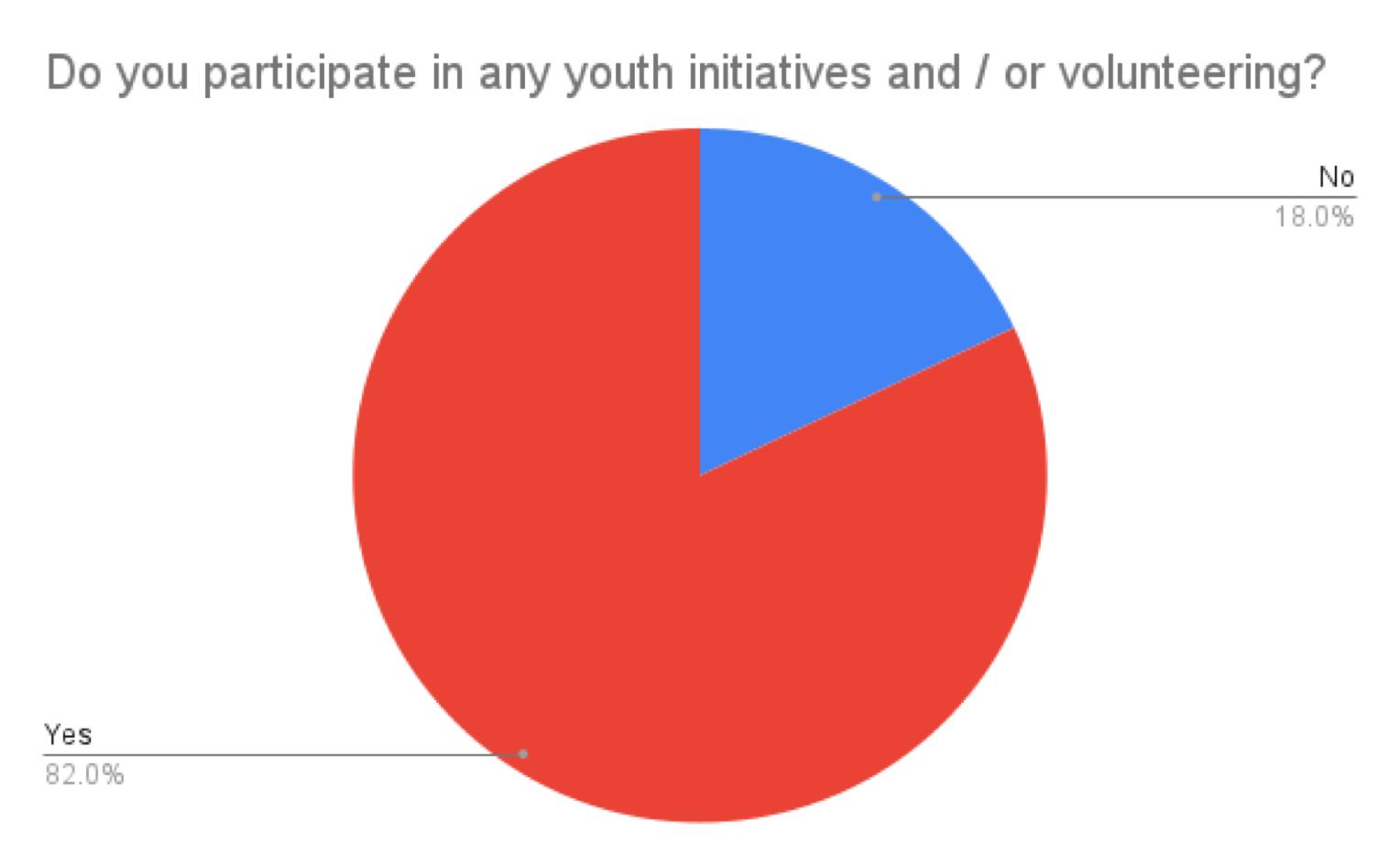
39
Youth Employment Magazine
The RAISE Youth project partners are very interested in participating in this kind of activities not only for the importance of their goal, but also as a mean to empower young people and engage them in the decision and policy making of their territories. We cannot forget that, yes, without young people there is no future, but we will not have a future either if we do not take care of our own planet and we firmly believe that the best way forward is not only by doing things on an institutional level, but also by working with societal actors, marginalized communities and first and foremost, young people.
RAISE Youth Project
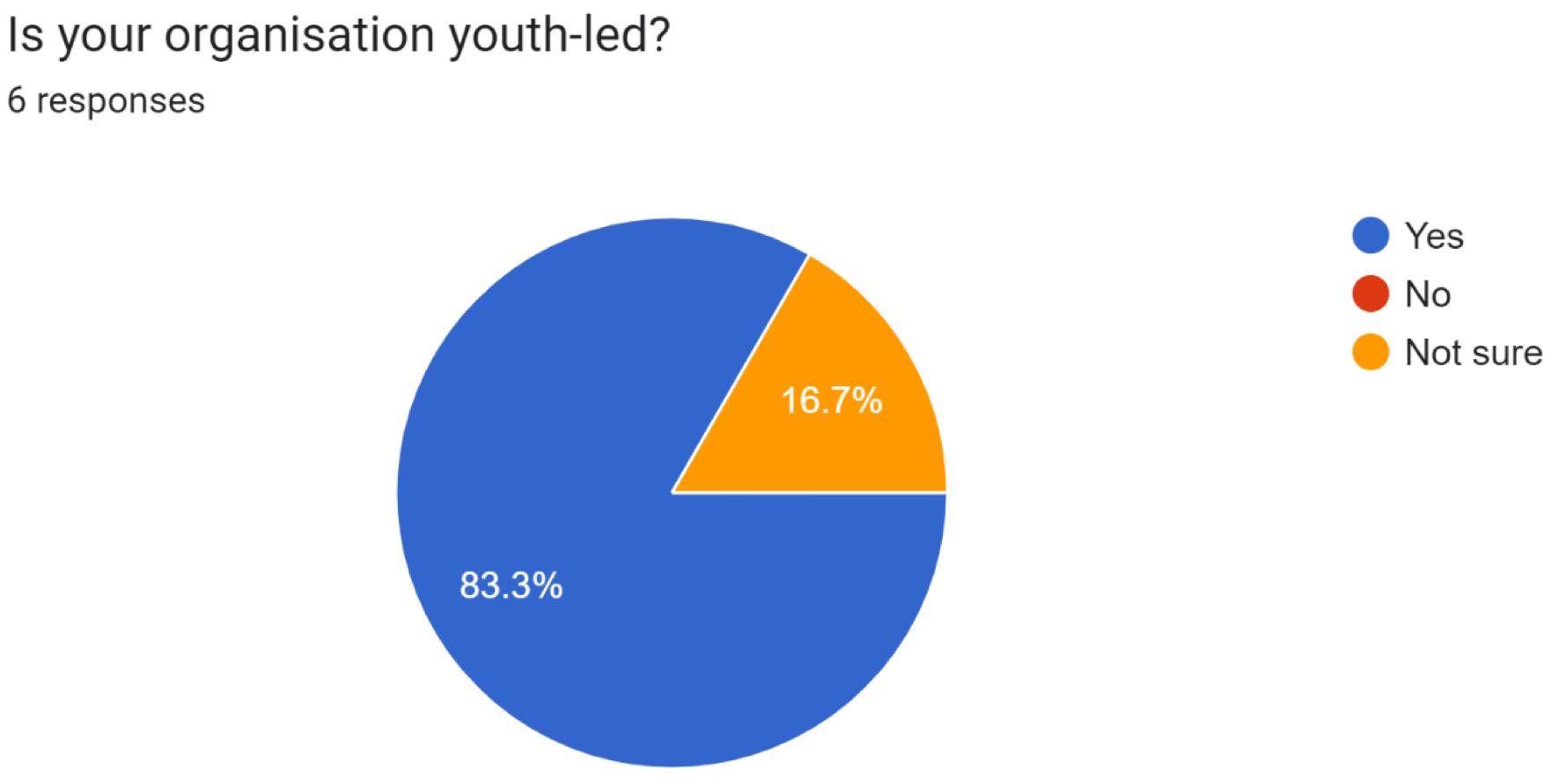
40
Youth Employment Magazine
Greening Youth: The role of Youth in the context of climate emergency
In the year 2020, Eurodesk and ERYICA published Greening Youth Information Services. This is the guide which aims not only to respond to the expectations, interests and requests of young people but also to anticipate their needs and develop preventive measures, to explore the role of youth information work in the context of the climate emergency, to raise awareness about the importance of greener youth information strategies and youth programmes among service providers and policymakers and – finally - to provide concrete tips and examples of good practices. The publication is complemented with policy recommendations, examples of non-formal education activities and a green glossary1.
The driving force of youth is very important and policy & decision makers should support it in seeking “contractors” of the nowadays right ideas and plans concerning climate emergency. It has been known for a long time that young people are efficient in their activities. What factors determine it? First of all, they are still untainted by conventions, artificial principles, they are full of enthusiasm and have the courage to express and defend their views, and finally - unlike the elder generations - they were born and brought up in a world deeply endangered in terms of ecology, so their proecological awareness is natural and at a very high level. They have passion, creativity and admirable commitment to the cause and what is most important: todays youth will be the decision makers in the future. They will be able to build and be a part of climate conscious society. Thanks to this, they will ensure comprehensive and universal climate change education and climate literacy. The main objective would be to empower people of all ages with the knowledge, skills, values and attitudes to address climate change: education should have a holistic approach and promote a huge changes in lifestyles, attitudes, and behaviour, in fact in every aspects of human's life, ensuring climateneutrality and fight for stopping the climate change. Actually, this is the
aspect of raising awareness on climate change adaptation and mitigation for each person in the world.
It is encouraging that the European Union shares this view and believes in the driving force of youth.
On 14th of September, 2022 State of the Union Address by President Ursula von der Leyen, the following words came out: “(…) Three weeks ago, I had the incredible opportunity of joining 1,500 young people from all over Europe and the world, who gathered in Taizé. They have different views, they come from di ff erent countries, they have di ff erent backgrounds, they speak different languages. And yet, there is something that connects them. They share a set of values and ideals. They believe in these values. They are all passionate about something larger than themselves. This generation is a generation of dreamers but also of makers. In my last State of the Union address, I told you that I would like Europe to look more like these young people. We should put their aspirations at the heart of everything we do. (…)” 2.
Young people are insisting on actions, they do not want to deal with the consequences of global inaction in this crisis for our planet. They are often accusing the decision makers of ignoring the climate emergency facing their generation. The climate is priority area of action for young people and they are eager to engage in action to address the climate emergency. Their awareness is really mature: they believe their generation can create solutions. For example, while seeking the job they would consider the environmental impact of the company or sector while choosing one or would be interested in a green job which helps tackle climate change.
Summarizing briefly and bluntly: to go green is youth social responsibility.
Project FOLM
41
Youth Employment Magazine
1 https://www.eryica.org/green-policy 2 https://ec.europa.eu/commission/presscorner/detail/ov/speech_22_5493
Stereotypes regarding young environmental activists: an untrusted shade of green
We are often bombarded with calls for attention regarding climate change and other environmental issues. We take some of these calls with openness and concern, while others are dismissed. Nevertheless, it is not possible to fully ignore that humankind is witnessing an Anthropocene era, that is, the impact of human beings on ecosystems is notorious. Thus, adherence to environmentally sustainable practices is crucial to mitigate the consequences of human impact. Why, then, some calls for sustainability are disregarded? As with any complex issue, answers are multifold. One possible explanation is that we do not like to be admonished, and even less by people whose messages and style we find annoyingor unreliable.
Environmentalists have an important role in adherence or disdain towards sustainable practices. Through different actions involving society as well in this process, they highlight the promotion of sustainable behaviors, representing the roles, values and behaviors that must be acquired to reduce the impact of human beings on the planet. Additionally, they have a mediating role between institutions and laws, and the rest of society. They can go from simpler and individual actions to challenging and radical ones that aim at modifying society, the latter being the ones eliciting negative responses. Indeed, despite the positive aspects that activists may evoke (e.g. care and concern) negative characteristics are also associated with activists (e.g. radicalism). By Promoting change though unconventional methods, activists may be perceived under the umbrella of stereotypes such as being hostile, militant, eccentric, thus reducing the likelihood of affiliation by society.
Young people are particularly interested in environmental issues and are partially responsible for environmentally related social movements. Greta Thunberg immediately comes to mind, with aggressive demands on leaders, as well as an urgency in implementing solutions and profound
transformations. However, young activists feel disregarded by more formal movements. We wanted to understand better why environmentalists - in general, and young in particular - have difficulties in promoting social change by being stereotyped, so we set to work on this.
More precisely, we put to test the hypothesis that a young activist would be perceived differently than an adult activist in important dimensions of stereotypes. More precisely, individuals and groups are characterized in three basic dimensions: competence (related to agency), warmth (related with sociability) and morality (related with trustworthiness). Previous research had shown that young people are considered high in warmth, but low in competence, whereas activists are considered high in competence but low in warmth. How would, then, young activists be perceived? They cannot be penalized in competence because they are activists, and they cannot be penalized in warmth because they are young. Thus, we expected that penalizations would be transferred to the morality/ trustworthiness dimension. We created an experimental setting, presenting the exact same discourse from an activist, but half the sample randomly got the information that it was said by a young activist, while the other half randomly got the information that the source was an adult activist. We, then, asked people about their perceptions of the activist, taking into account the three dimensions of stereotypes (competence, warmth, and trustworthiness).
Results from a first study were hard to interpret because we used real environmental activists (Greta Thunberg and Jane Fonda). We, then, conducted a second study, using fictional characters. The results showed a significant difference only regarding the trustworthiness dimension, in which the young activist was perceived as less moral/ trustworthy in comparison with the adult activist.
42
Youth Employment Magazine
In the remaining dimensions regarding stereotypes (competence and warmth) there were no significant differences. These results show that there may be a relocation of the stereotype towards the morality/ trustworthiness dimension, discrediting the activist in this aspect.
Indeed, young environmental activists are depicted in the media as inexperienced, immature, and unable to defend their interests. Their messages can, then, be viewed as unreliable and even incorrect (untrustworthy). Because of their important avant-garde role in the context of climate emergency, it is important that their voice is given credit. Maybe we can all meet half-way: society by trusting more in young activists, and both younger and older activists by joining forces and work each other strengths (avoiding being downplayed by lack of any of these dimensions of stereotypes). All ecosystems on Earth will potentially benefit from these encounters.
For more information about the studies presented, as well as references backing up our statements, please consult: Farinha C, Rosa M. Just Chill! An Experimental Approach to Stereotypical Attributions Regarding Young Activists. Social Sciences. 2022; 11(10):427. https://doi.org/10.3390/socsci11100427
Catarina Farinha; Miriam Rosa
Project
43
Tr@ck-IN
Youth Employment Magazine
Engaging Youth in Energy Transition: The European Youth Energy Network (EYEN)
The main subject of this September 2022 issue of the Youth Employment Magazine is “Greening Youth: The role of Youth in the context of climate emergency”, and in this article we talk about The European Youth Energy Network (EYEN), whose purpose is exactly this: to “[…] place youth at the heart of the European energy transition”.
Cowork4YOUTH is a project that aims to examine and suggest policies concerning young people up to 29 years old in Italy, Spain, Ireland and Greece, with a special focus on young mothers and the long-term unemployed – but not in any random regions. The areas chosen to be scrutinised are the tourism-dependent, island or remote coastal regions on the one hand, and, most importantly for the subject of this article, regions facing energy transition, decarbonisation or intense industrial decline. Cowork4YOUTH is not affiliated to the EYEN, but we closely follow any initiative in fields relevant to our research. Both the insight that networks such as EYEN can provide, as well as their positioning in the policymaking field and their potential influence on the policy agenda can be important for our analysis.
The goal of the EYEN is to bring together youth organisations across Europe that focus on energy transition, and through their collaboration to place youth at the heart of the energy transition, with a shared aim and perspective of this long process whose limits are not yet well defined.. The EYEN’s roots lay in 2019, when a team of European youths travelled as delegates to the 10th Clean Energy Ministerial 4th Mission Innovation (CEM10MI4) – a global forum aiming to promote policies and strategies that “facilitate the transition to a global clean energy system”. The European youth delegates at the forum, however, were not allowed to attend the ministerial meetings due to age limits that were set with the reasoning of “too young to participate”; a fact that motivated some of them to take action to ensure young people’s participation in public debate
and direct connection with policy makers rather than playing a decorative role. Thus, the EYEN was born.
The EYEN membership consists of non-profit youth organisations with focus on energy, and its role is to represent, engage and educate youth in energy or climate policymaking. Through participation in the EYEN, youth organisations get to “connect with youth, other members and more stakeholders in the Energy field”, “share and stay informed about success stories from EYEN and its members” and “be empowered”.
For more information on the EYEN Network, visit the site: https://youthenergy.eu/
and for more info about the Cowork4YOUTH project, click here: https://www.cowork4youth.org/ Cowork4YOUTH Project
44
Youth Employment Magazine
Cowork4YOUTH and the role of Youth in the context of climate emergency
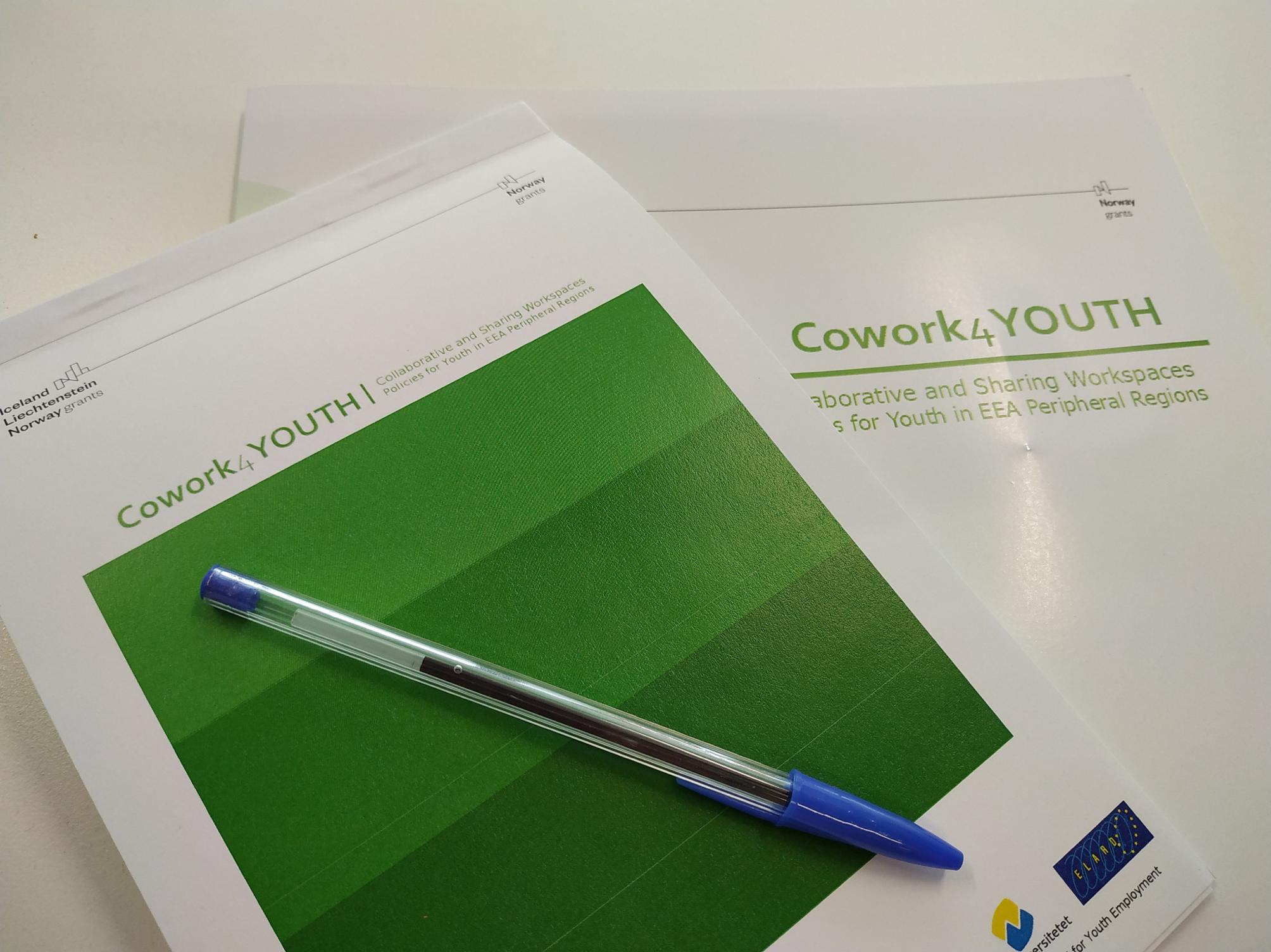
Climate Plan was initiated in December 2019. The production of electricity from lignite combustion (a type of coal) is planned to cease in 2028, with natural gas and renewable energy sources replacing the lignite. This transition comes with various and deep changes, for example in the car industry with the electric cars, and in construction, with energy-efficient building design and upgrades of outdated buildings. Consequently, the professions attached to these sectors will need not only to be supported, but also the relevant education and training provided will need upgrading in terms of institutional and legislative framework. Here comes the role of youth: By educating the younger generation about the climate emergency and the somewhat radical measures that need to be taken, any new undertakings will be more likely to succeed. The assessment notes a lack of technical workers in Greece in recent years, a fact that the Greek National Plan does not take into account. This means that there’s plenty of space for the youth to be educated and trained, and benefit from the energy transition plans that the country has been assembling.
Among other things, Cowork4YOUTH is concerned with the impact of youth employment policies in regions undergoing energy, decarbonisation or intense industrial decline. In this context, it is interesting to take a look at how the Cowork4YOUTH focus countries (Italy, Spain, Greece, and Ireland) see the role of their youth in the context of the climate emergency. We present a short overview below.
Regarding Greece, according to an assessment published 1, in the framework of the European Green Deal that aims for the decrease of greenhouse gas emissions by 40% in 2030, the Greek National Energy and
In Italy, on the other hand, energy resources are not efficient enough to support its economic development. 2 In 2017 the “Italian National Energy Strategy'' was drafted, regarding, among other things, energy security and reducing energy consumption, by amending the current model and cutting down the use of coal. The transition focuses mainly on the power, construction and transportation industries. Following the 2017 strategy, the 2019 “2030 National Energy and Climate Plan'' was issued, aiming at energy security by advocating for renewable energy and advancing energy efficiency. Meanwhile, the paper identifies two obstacles: 1) the country's prices for energy are high, and 2) promoting energy transition puts pressure on Italy's economy.
R. (2021). Assessment of the Greek National Plan of Energy and Climate Change—Critical Remarks. Sustainability, 13(23), 13143. https://doi.org/10.3390/su132313143 https://www.mdpi.com/2071-1050/13/23/13143/htm
1 Zervas,
transition in major industrialized countries, https://onlinelibrary.wiley.com/doi/full/ 10.1002/er.5866?casa_token=H-gEQMm-TUQAAAAA%3AgPxbRZAHlI15Ub86K8egFFYxGG8WFB00rei5nfM-Iq2-DeVWQYxTTyIp1nbrk9BuQXWytnCM2nzXReg
2 Hou Jianchao,
45
Youth Employment Magazine
E., Vatikiotis, L., Gareiou, Z., Manika, S., & Herrero-Martin,
Zhang Ruoyu, Zhou Lyuyang. (2020). A review and comparative analysis on energy
Despite all the barriers for a smooth transition, Italy shows some good results: The country's coal consumption has dwindled whereas clean energy's has risen in recent years. Both the public and private sector in Italy promote renewable energy development. There's no specific mention of the role of youth in energy transition, but given the growing, if still partial, success of energy transition moves, engaging more young people in renewable energy development will give a fresh perspective on the issue.
For the case of Spain, another article published in the International Journal of Environmental Research and Public Health, uses the free-market environmentalist approach (FME) to analyse the country's energy transition. The article focuses on innovation, GHG emissions and the prices of electricity, as they are the most accounted-for factors in energy policies both on the national and the EU level. 3 Specifically regarding the impact of the energy transition on innovation in Spain, the country has noticeably boosted the position of renewable energy (RE) in total available energy and electricity production terms. Most importantly, innovation has contributed to the creation of job positions, with almost 1 million jobs relevant to renewable energy undertakings as of 2020, even with the COVID-19 outbreak and its consequences. The authors of the article propose, among other solutions, for the country to “conduct further freemarket reform to create better energy and RE entrepreneurial innovation environment” which could also include youth in creating or participating in enterprises focused on the energy transition of the country.
An interesting article about engaging (disadvantaged) youth in the planning of climate adaptation in Ireland was published in the “Politics and Governance” journal , vol. 9, which firstly gives us a glance at current policies and existing plans. 4 “[…] little is known about the diversity of positions, perspectives and experiences of young people in Ireland, especially with respect to climate change adaptation planning”, states the
article, but further on we read “, Section 13 of the Planning and Development (Amendment) Act 2010 [...] states that young people (or groups or associations representing them), are entitled to make submissions or observations on local area plans, including climate action plans .” The article concludes that “It is important to encourage young people to connect climate change to their lived environments in this way and to think through the implications of adaptation […]”, and that youth should be helped to comprehend the politics and policy processes behind moves towards climate adaptation, by reinforcing education on climate change science and politics, with attention to the three-fold participation, engagement and adaptation.
https://www.cowork4youth.org/
Cowork4YOUTH Project
3 Wang, W. H., Espinosa, V. I., & Huerta de Soto, J. (2022). A Free-Market Environmentalist Enquiry on Spain’s Energy Transition along with Its Recent Increasing Electricity Prices. International Journal of Environmental Research and Public Health, 19(15), 9493. https://doi.org/10.3390/ijerph19159493, https://www.mdpi.com/1660-4601/19/15/9493/htm
4 Anna R. Davies, Stephan Hügel. (2021). Just Adapt: Engaging Disadvantaged Young People in Planning for Climate Adaptation, Politics and Governance, vol. 9, No 2 (2021): Is There a New Climate Politics? Emergency, Engagement and Justice, https://doi.org/10.17645/pag.v9i2.3892, https://www.cogitatiopress.com/politicsandgovernance/article/view/3892
46
Youth Employment Magazine
EU must recognize role of youth leading green transition on islands
2022 is the European Year of Youth. Although the role of young people in building a more sustainable, inclusive and greener world has become increasingly recognized, equal opportunities are still lacking. It is important to create opportunities for different groups of young people to be involved in policymaking and developing ideas on sustainability issues. Social and economic equality is strongly linked to participation in the job market. However, not all young people have equal access to employment. In order to give young people more opportunities in education and the job market and enable them to fully participate in all aspects of society, several initiatives are working to address this. The Yenesis project was launched to address the challenge of unemployment for young people who are not in education, employment or training (so-called "NEET" youth) living on islands. Young people on islands often face several challenges, such as limited job opportunities and a lack of necessary business skills or capital to create their own businesses. Creating more green jobs is also one of the focuses of the European Green Deal which, in addition to several other priorities, aims to improve the well-being and health of citizens and future generations by providing future-proof jobs and skills training for the transition. The outcomes of the Yenesis project can also contribute to the European green transition.
To reduce the unemployment of young NEETs and enable sustainable development on islands, it is crucial to create green jobs on islands that support discouraged young people who have stopped looking for jobs and are socially excluded. More precisely, islands have great potential to develop jobs in the areas of renewable energy, energy efficiency, and sustainable transport and mobility. It is crucial that young people are empowered to create jobs themselves and for other young people so that they do not have to leave their home islands once they enter the job market. The Yenesis project provides training for young people on business innovation and even offers private one-on-one mentoring to those with more specific ideas resulting in various start-ups and local
businesses led by youth. However, these kinds of support and solutions should be much more institutionalized and have a broader scope.
In the EU, issues related to youth and education policies primarily fall under the responsibility of each member state. However, the EU can support and complement these initiatives by enhancing cooperation and providing financial support for other activities. In the framework of the Yenesis project, several EU-level policy recommendations were developed. Input was gathered from numerous expert interviews and workshops that were held with experts who work with youth and NEET policies in Croatia, Cyprus, Estonia, Greece, Italy, Norway and Spain, all European countries that have many islands. The policy recommendations were presented under various categories: education and training, labour market and business innovation, youth & NEET status, programmes and action plans, communications and social/psychological and insularity.
In the fields of education and training, it is crucial to provide youth with career advice on green jobs and offer lifelong learning strategies, including upskilling and reskilling elements that are related to green jobs and suitable for people living on islands, as well as recognizing the importance of distance education and training activities to support personal development in remote areas. The limited supply of opportunities on islands for further vocational training and lack of specialization can be tackled with vocational training. This should be included in EU policies and should also be supported at the EU level. Support should be then targeted to green skills, entrepreneurship and digital skills building. Considering the financial constraints of several EU member states and regions, implementing a centralized EU student loan system to support education and training could be beneficial for people who do not have the financial means to further their education. Young people on islands are often in a less fortunate financial situation when planning for studies on the mainland or abroad compared to ones already living elsewhere due to the additional travel and accommodation costs. A centralized EU loan system for students could promote equity and reduce exclusion.
47
Youth Employment Magazine
Even though many young people have already high levels of schooling and potential, they do not find positions that match their abilities and expectations, especially in less developed areas in the EU. According to the Yenesis report, to minimize the disconnect between what is expected and what is offered in the job market, the EU should consider a minimum guaranteed wage according to the job position. Additionally, including orientation in the recruitment phase (not only job skills requirements) can help to avoid later disappointment. To support youth going into the agriculture sector or entrepreneurship, other measures can be introduced, such as targeted support for young farmers and subsidies for start-ups in the green economy, as well as the digitalization of public services and the private sector to eliminate burdening bureaucracy.
Currently, EU funds for innovation do not establish specific conditions for operations on islands to consider their specificities, small-scale economies, unique and threatened natural heritages and high vulnerability to climate change. Taking into account sustainability requirements for socio-economic recovery, the commitments of the Green Deal and the vulnerability of tourism and natural-resource dependent islands, the EU should establish a mandatory share of innovation support funds for islands and guarantee programmes from 2021 to 2027 long-term EU budget and NextGenerationEU support. This will help innovation initiatives in green areas in the public, private and social sectors on infrastructure, new and refurbished processes, the circular economy and businesses, support employment and create new job positions in innovative green areas, namely for youth and NEETs.
When tackling issues related to the employment of NEET youth on islands, it is also crucial to acknowledge that NEETs are diverse, with various subgroups who may have different needs, such as young people with high educational qualifications compared to those with lower levels of education, young people from vulnerable groups and those affected by poverty. Their issues cannot be addressed with universal measures. The categories of NEETs must be communicated and dealt with separately (including young mothers and NEETs with criminal backgrounds), as well as on the EU level.
Within the Yenesis project, the policy recommendations mainly address the problems associated with NEETs on islands and remote areas and access
to green jobs. However, considering the youth role more broadly in the EU Green Transition is crucial and should be elaborated in a much more detailed manner in EU policymaking.
Authors: Johanna Lehtmets (Communications Manager, SEI Tallinn), Kadi Väli (Yenesis Project Coordinator, SEI Tallinn)
Yenesis Project
48
Youth Employment Magazine
Creative Center Ruse continues with the final course under CODE project
Despite the summer heat and the holiday season, the team of Creative Center Ruse continues successfully with the online course on the basics and types of 3D modeling in game design and the presentation of games using graphic design, which is held within the framework of the CODE project/Competent opportunities for digital employment/.
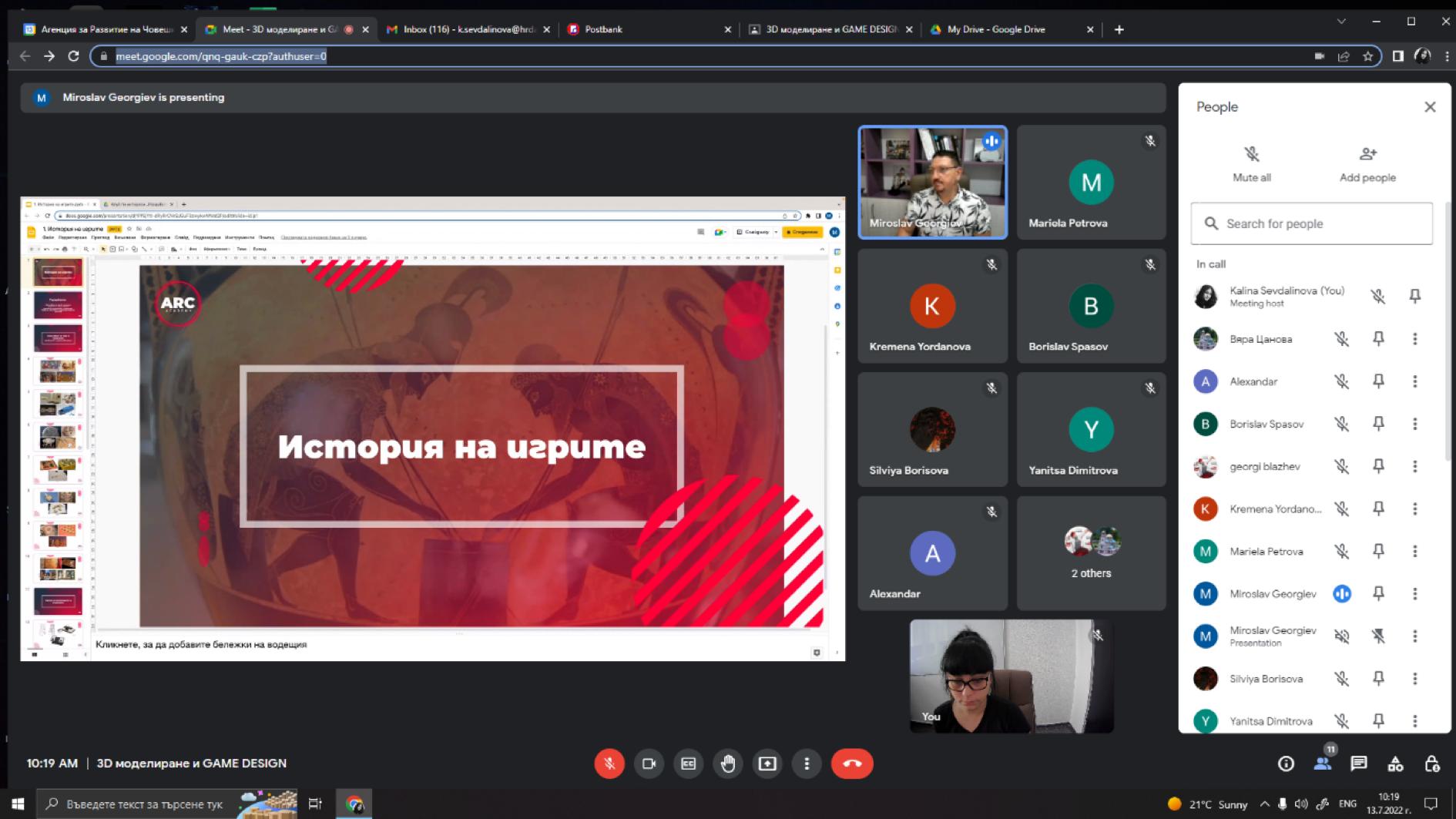
The innovative training is completely free and combines the subjects of the two training programs in 3d animation and graphic design developed under the Project. For a period of one month, about 30 children from the Ruse region, aged between 15 and 19, who, due to financial or other reasons, do not have the opportunity to continue their education or join
specialized courses have been trained in the course. Online training gives them the unique opportunity to learn about the history of video games and their creation, designing the game levels, design and creation of 3D models of heroes and environment, with business models for presenting and advertising games using the graphic design. By applying what they have learned so far, students have created their own fantastic heroes and have started development of a concept for their own game.
During discussion sessions, individual practical assignments and ideas for joint creative projects have been discussed.
The training is funded by Iceland, Liechtenstein and Norway through the EEA and Norway Grants Fund for Youth Employment.
For more information follow us on https://www.facebook.com/ projectcodehrda, https://www.facebook.com/CreativeRuse.
Project CODE
49 News from the Projects
Youth Employment Magazine
HRDA finished its final training course under CODE project
On 1 September Human Resources Development finished the final online training course organized under CODE project that was focused on the basics and types of 3D modeling in GAME DESIGN and presentation of games with the help of graphic design. The innovative course incorporated the content from both training programs in 3d animation and graphic design developed under CODE project.
design of the game levels, design method and 3D models for creating heroes and environment, business model for promotion and advertising of the game using graphic design tools. The trainees participated in discussions and completed individual practical assignments that demonstarted skills and knowledge acquired.
The talented and ambitious youngsters have created wonderful work of arts – digital paintings, landscapes, portraits, heroes. Their creations were reviewed from proffesional experts from ARC academy which were impressed by the talant and creative thinking of the trainees, and saw a lot of potential for their further development in creative industry.
The team of Creative center Ruse is proud of the results achieved as they prove that we were successful in our mission to give specific practical skills to CODE trainees and to show them paths for professional realization.

The training is held under the CODE project funded by Iceland, Liechtenstein and Norway through the EEA and Norway Grants Fund for Youth Employment.
The training gathered 30 creative young people from Ruse region who due to financial, health or other reasons do not have the opportunity to continue their education or to participate in specialized training courses. The online course that was for 10 weeks acquainted them with the history of video games, tools and approaches for creating video game script,
Project CODE
50
Youth Employment Magazine
HRDA and FPC Ltd held their CODE closure event
On September 28, 2022, Human Resources Development Agency and FPC ltd held their final CODE project closure event at "Yordan Yovkov" High school in Ruse. It was attended by over 60 students and teachers from the school and Ruse region, graduates from the courses, partners, experts from the field of creative industries, as well as other stakeholders. The teams of the 2 partner organizations presented the training programs for the courses in 3D animation, graphic design, and game design, developed under the Project. The expert teachers talked about the challenges and difficulties they faced and shared that they are satisfied with the results achieved. Some of the graduates have already created their first works of art - digital paintings, portraits, characters, short cartoons, etc. Many of them have continued their education, others have started working in local companies, which is another proof that the
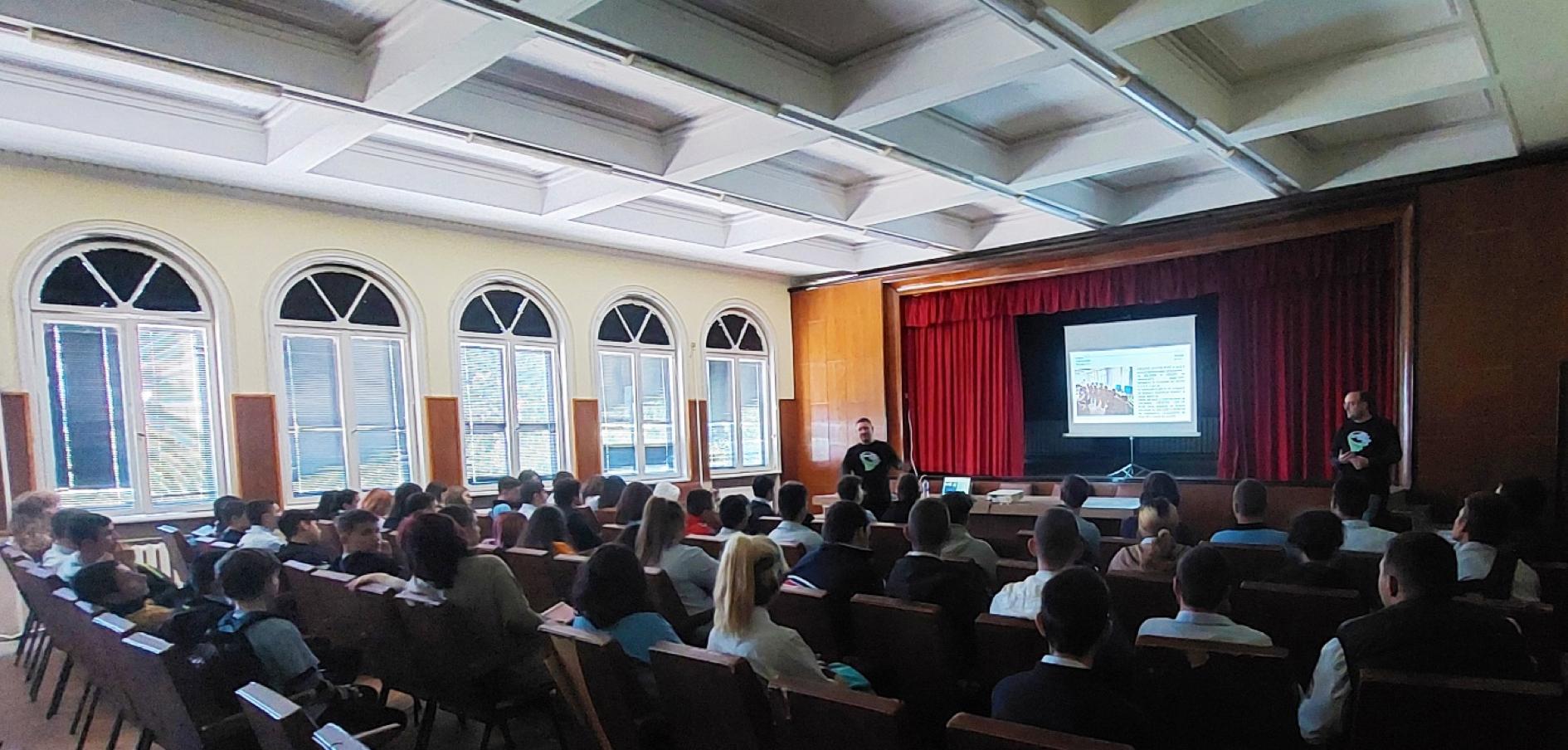
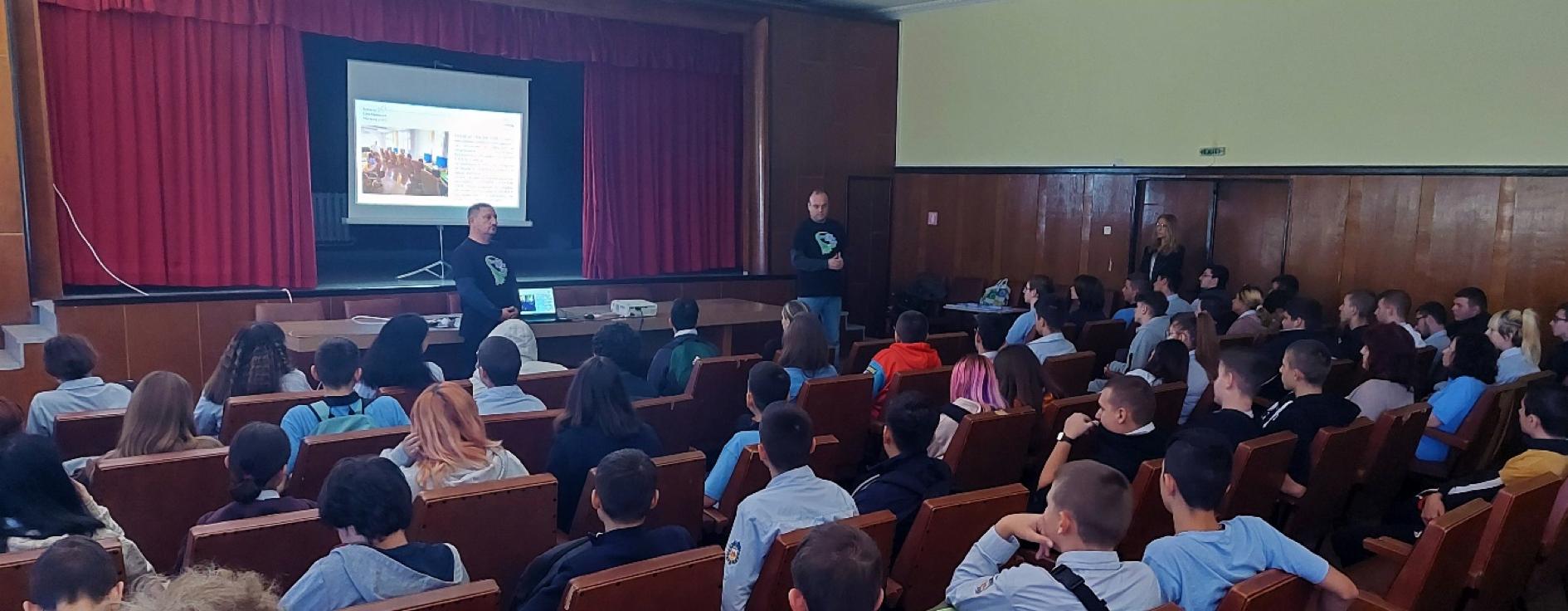
specialized courses under the CODE project have successfully contributed to the creative and professional growth of students.
Although this was the last meeting of the project, Creative Center Ruse continues its work and further development. At the meeting, the team presented the upcoming free game design course organized under the "Creativity" project, which is implemented jointly with the "Ruse - City of the Free Spirit" Foundation and with the support of Econt Express. The project CODE benefits from a 2 300 000 € grant from Iceland, Liechtenstein and Norway through the EEA and Norway Grants Fund for Youth Employment.
Project CODE
51
Youth Employment Magazine
The future of work for NEETs in a circular economy
The circular economy is expected to be one of the biggest economic drivers. Relevant sectors to the circular economy employed already more than four million workers in 2016 and are predicted to create many more jobs in the EU until 2030. The increase is due to a shift in value added from resource-based capital gains to workers’ compensation and services and higher technology utilization. The following thinking space explores the state of the circular economy and its employment opportunities for NEETs. The circular economy - a model for sustainability in resource use and consumption - is expected to be one of the biggest economic drivers1 Relevant sectors to the circular economy employed more than four million workers in 20162, a 6% increase compared to 2012. Recent estimates predict the circular economy to generate a net employment increase of about 700.000 jobs in the EU by 2030.3 The International Labour Organisation (ILO) confirms that „...a low-carbon, resource-efficient economy employs more people, is more labour intensive, and is at least as productive as an economy with a production model based on high carbon, resource and material intensity. ... this is due to a shift in value added from resource-based capital gains to workers’ compensation and services, higher technology utilization and longer value chains.”4 This thinking space paper will take a closer look at the circular economy, as it seems a promising concept with employment opportunities for NEETs.
The circularity principle is not new and its regulatory framework is emerging in Europe. In some areas, such as remanufacturing of machinery, medical devices, heavy duty and off-roads or B2B electronics5, the circularity is a longstanding practice. 6 However, the Global Circularity Report numbers the world’s circularity at only 9.1% circular in 2019.7 A few governments have begun to apply the concept: for example, Finland has endorsed a circular economy strategy8 and the Netherlands is aiming to become 50% circular by 2030 and 100% by 2050.9 The EU has published a circular economy action plan10 in 2015 and has been setting increasing recycling targets for Member States in waste regulations. EU Ecodesign
measures contain repair requirements for household products that manufacturers have to comply with as of April 2021.11
Circularity requires optimization of the utility of products by maximizing their use, extending their lifetime, enhanced recycling, using waste as a resource and circular design, reducing material consumption and using lower-carbon alternatives. New jobs are predicted to be created in industries such as agriculture, renewable energy, construction, waste, repair and rental services and manufacturing that should deliver net gains.
12 By benefiting jobs in services, and if the gender distribution across sectors remains similar, the circular economy will, according to ILO, rise the female share of employment as well as highly skilled jobs. It will also result in a small increase in the numbers of own-account workers.13 Emerging studies on employment in the circular economy, such as for the City of Amsterdam show that circular jobs types will differ according to the location.14
While today’s production processes rely on global supply chains, the Circular Economy is expected be much more local or regional as cost efficient repair, maintenance and services around a product will take place close to the consumer. Local jobs would be created that could not be readily outsourced to lower-cost markets, given the need for skilled workers to turn old goods into new resources, to collect and process recycled materials, and to source materials locally.15 A report of 2015 finds for the UK that regions where unemployment is higher, such as the North East and the West Midlands, could see the greatest impact on job creation, especially among low to mid-skilled occupations. Drawing on various studies, the report pulled together the below table with employment types created in the waste and remanufacturing sectors in a circular economy.16
52
Youth Employment Magazine
The Circular Economy has the potential to be more social and inclusive and strengthen community- based initiatives. There is already a multitude of local networking initiatives such as the wwoofers17 repair cafes18 or repair shops19, local platforms where citizens exchange services20, support young people 21 or tool-sharing platforms 22 . These local community approaches could be a starting point for successfully supporting NEETs and guide on how to set up initiatives such as a tool library can be found online23. In addition, NEETs supporting organisations should enter in a dialogue and cooperation with circular economy relevant sectors and organisations to help the young people to enter sustainable circular jobs.
References:
1 https://www.euractiv.com/section/digital/interview/katainen-innovationneeded-to-address-climate-issues
2 https://ec.europa.eu/eurostat/tgm/refreshTableAction.do? tab=table&plugin=1&pcode=cei_cie010&language=en
3 European Commission. 2019. Impacts of circular economy policies on the labour market. Available online via https:// circulareconomy.europa.eu/platform/ sites/default/files/ec_2018_-_impacts_of_circular_economy_policies_on_the_ labour_market.pdf
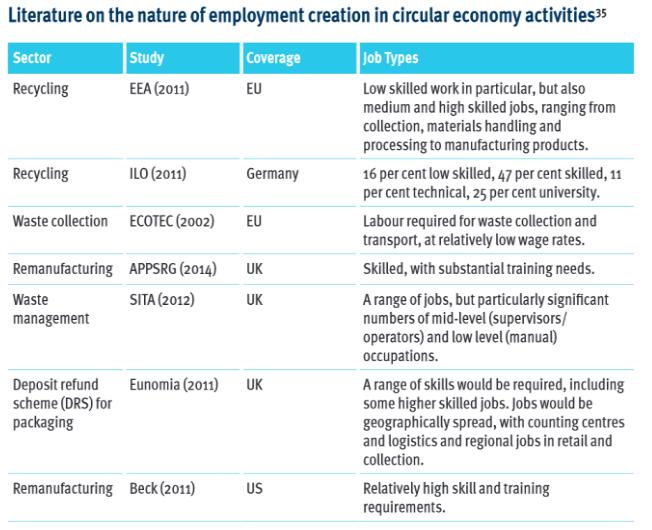
4 ILO (2018), WORLD EMPLOYMENT SOCIAL OUTLOOK 2018. Greening with jobs, Geneva, p.38
5 Mobile and fix telecom network equipment, datacentre equipment, etc.
6 European Remanufacturing Network (https://www.remanufacturing.eu/casestudy-tool.php),
7 THE CIRCULARITY GAP REPORT Closing the Circularity Gap in a 9% World, 2019,https://docs.wixstatic.com/ugd/ ad6e59_ba1e4d16c64f44fa94fbd8708eae8e34.pdf . In January 2019, the social enterprise Circle Economy released its second Global Circularity Report at the World Economic Forum (WEF) Annual Meeting.
8 https://www.ym.fi/en-US/The_environment/Circular_economy
9 https://www.government.nl/documents/policy-notes/2016/09/14/a-circulareconomy-in-the-netherlands-by-2050
10 https://ec.europa.eu/commission/priorities/jobs-growth-and-investment/ towards-circular-economy_en
11 Publication of these measures is foreseen for the end of 2019. Measures can be found on the comitology registry of the European Commission.
12 ILO (2018), p.51
13 ILO (2018), p.53.
14 https://www.circle-economy.com/wp-content/uploads/2018/12/Final-CircularJobs-and-Skills-in-the-Amsterdam-Metropolitan-Area.pdf
15 Source: https://knowledge.unccd.int/publications/resource-e ffi ciencypotential-and-economic-implications-smarter-use-natural-resources . “For example, between 2005 and 2010, a programme in the United Kingdom recycled or reused seven million tonnes of trash destined for the landfill. This move saved six million tonnes
53
Youth Employment Magazine
Employment Magazine
of trash destined for the landfill. This move saved six million tonnes of carbon dioxide emissions, close to 10 million tonnes of virgin materials and 10 million tonnes of water. It also increased business sales by £176 million, reduced business costs by £156 million and created 8,700 jobs.”
16 WRAP and the Green Alliance (2015). Employment and the Circular Economy. Employment and the Circular Economy – Job creation in a more resource efficient Britain, online at: http://www.wrap.org.uk/content/employment-andcircular-economy.
17 E.g. https://wwoof.be
Project YES!
Sylvie Feindt, Dunja Buchhaupt, KIZ Sinnova, October 2019
54
Youth
RAISE Youth Study Visit in Romania
Romanian NEETs, of 25.000 euros grant for starting a new business, offered as part of the RAISE Youth project in Romania.
During the visit, young people from both countries were able to exchange experiences and ideas regarding the development of their villages, towns and communities. Everyone presented what they have done so far in their DEMO centers.
Both in Bulgaria and in Romania, so far a series of innovative informal trainings, workshops as well as activities related to mentoring of inactive young people, development of sustainable agriculture, rural tourism, IT and digital technologies have been held.
The RAISE Youth project has helped create a productive professional environment for rural youth by supporting their entrepreneurial initiative. A significant number of young people who have passed through the youth centers have taken the important step towards starting their own business.
From August 26th to 29th the RAISE Youth Study Visit took place in Romania. The Romanian Vrancea County hosted RAISE partners - Center for Sustainable Communities Developement from Bulgaria. This was yet another opportunity for the RAISE Youth project team, volunteers and NEETs to exchange experiences and meet good practices from different regions.

The most active youth and volunteers from the Pernik region in Bulgaria used this opportunity to visit and meet their Romanian peers, who are implementing various initiatives in entrepreneurship, agriculture, tourism, IT, and participate in a number of their workshops and activities.
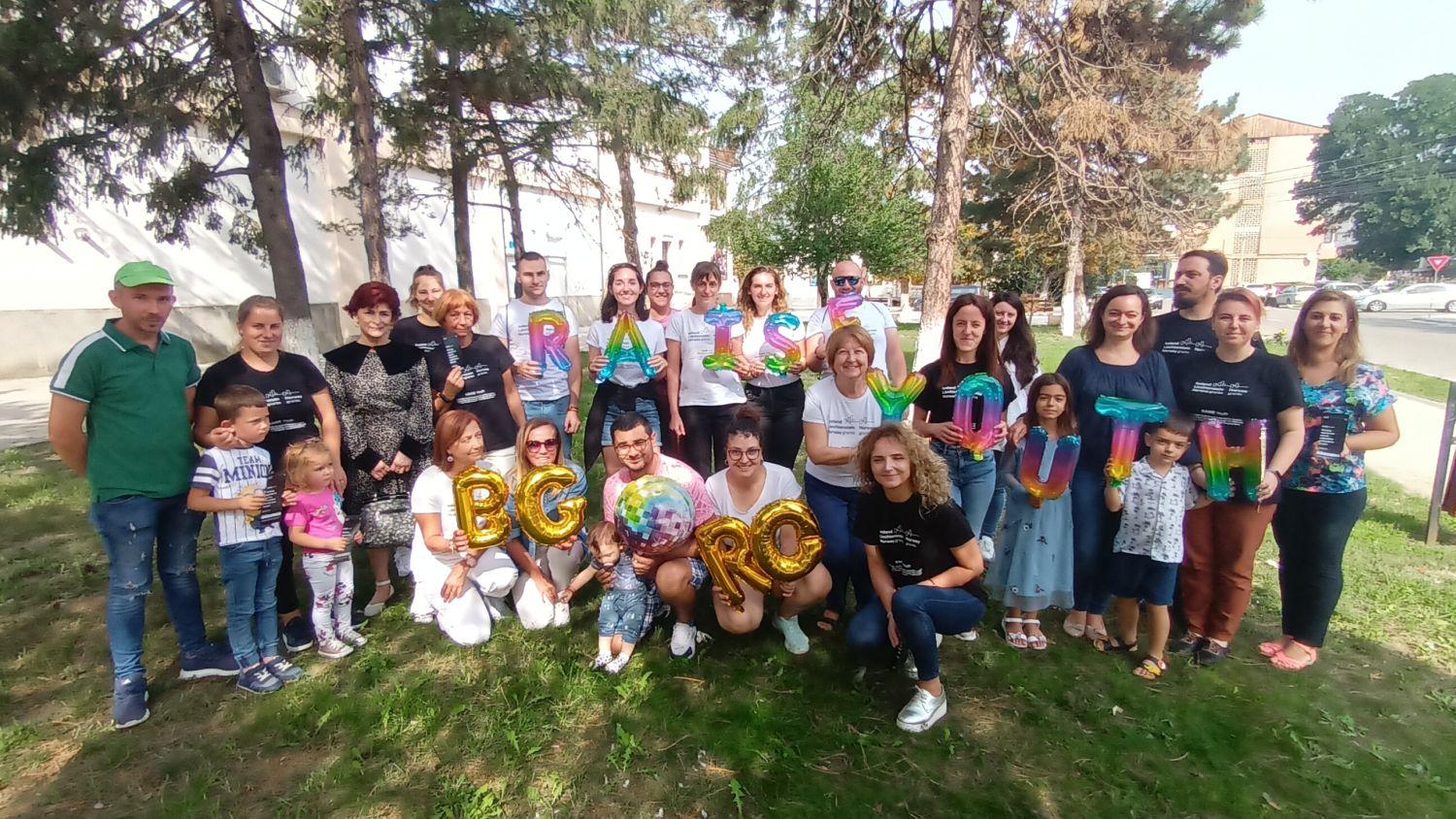
Romanian NEETs shared with pride the support and openness they had throughout the project.
“The RAISE regional coordinator was writing to me and motivating me on WhatsApp even at 12 at night”.
This statement belongs to Alina Lazăr, beneficiary, along with seven other
55
RAISE Youth Project Youth Employment Magazine
Cowork4YOUTH's Baseline Study is out!
indicators: a) employment rates; b) unemployment rates; c) long-term unemployment rates; d) NEET rates; and e) inactivity rates. Moreover, youth employment shares were categorised in 4 economic sectors, that correspond to the region types under examination: a) accomodation and food services, and b) arts and entertainment, for the tourism-dependent regions; c) manufacturing, and d) electricity, for industrial decline and energy transition regions.
Our Baseline Study on the Impact of Youth Employment Policies, along with its executive summary, is now through the outputs section at http:// cowork4youth.org. The first of 14 outputs of the Cowork4YOUTH project, the Baseline Study collects and presents descriptive evidence about the impact of youth employment policies for the period 2008-2020 across the four countries under study, Spain, Italy, Ireland and Greece. More specifically it focuses on two types of non-metropolitan regions: a) tourism-dependent, island or remote coastal regions, and b) regions facing energy transition, decarbonisation or intense industrial decline. Cowork4YOUTH focuses on young NEETs (Not in Employment, Education or Training) between the ages of 25 and 29, with particular attention, wherever possible, to young mothers and the long-term (for 12 months or more) unemployed.
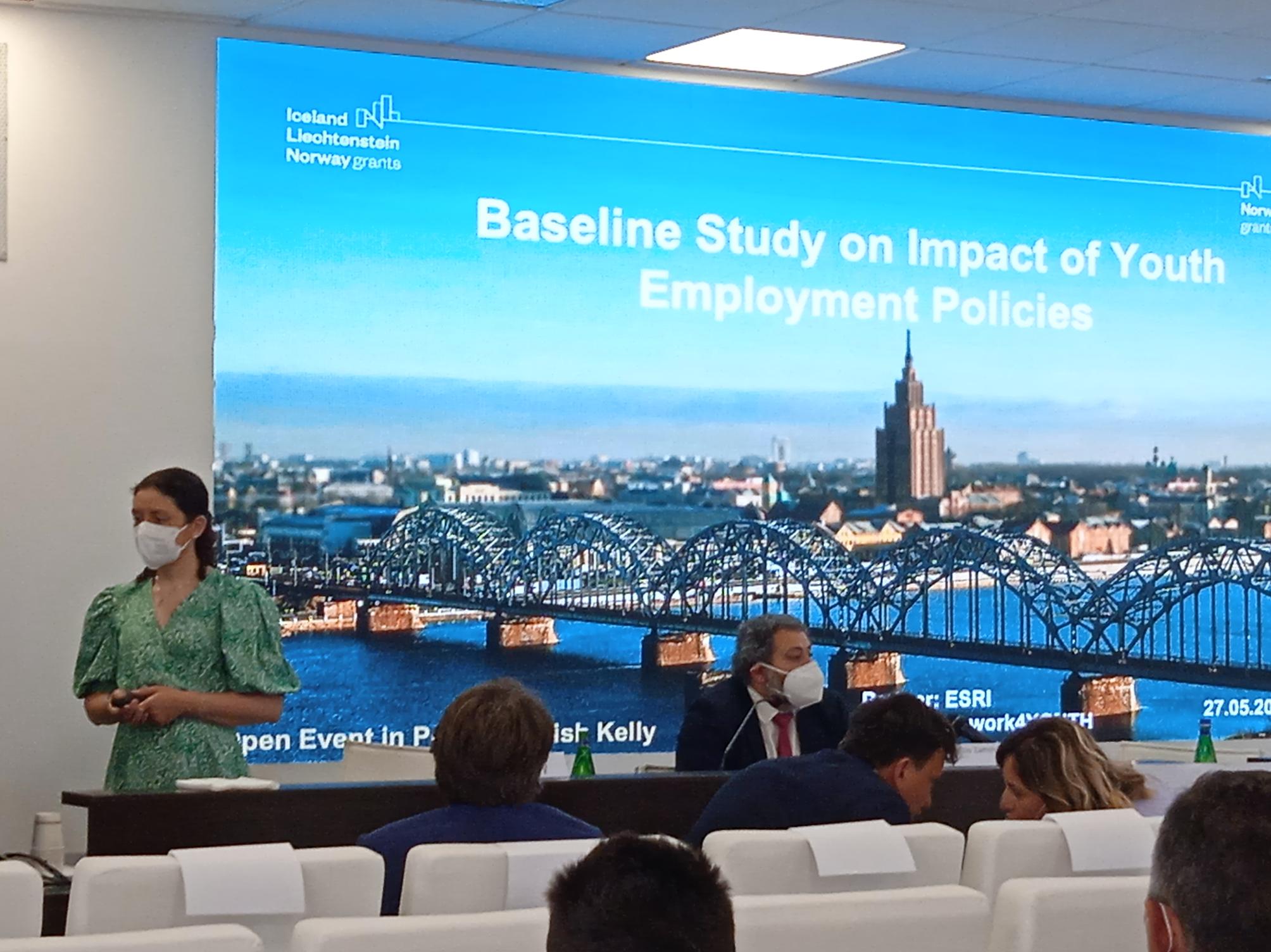
In order to understand the incidence and composition of NEETs, crosscountry data and statistical evidence for NEET rates and youth employment over time were used to create a framework. This is accompanied by an analysis of the progression of relevant policies in each country.. The impact of youth employment policies is examined through 5
Except for the descriptive evidence that the baseline study shows, there are also two other results produced: a) an outline of the economic context for each country under study, which illustrates the situation at the beginning of the Great Recession of 2008, during the peak of the crisis (2009-2013), the period of recovery (2014-2019) and finally the outburst of the COVID-19 pandemic in 2020; and b) an overview of the youth employment policies implemented in these four countries from 2008 to 2020.
A key finding is that while in essence all countries share more or less the same issues relating to youth employment, there is, however, a distinct variation in the composition of these challenges. Moreover, in many cases the study’s findings re-confirm imbalances between men and women; a finding that shows that the divisions' character is not only spatial, but social as well. Consequently, questions arise about balancing policies between social and spatial factors, as well as social cohesion. The main goal of the study is to provide a starting point for policy analysis, while at the same time putting into context the youth unemployment issue in the areas under study. The Baseline Study is a key point for Cowork4YOUTH, as the complementarity of its output structure means that this study will function as the foundation for outputs to come.
For more information, visit the Cowork4YOUTH website: https://www.cowork4youth.org/
56
Cowork4YOUTH Project Youth Employment Magazine
“NEET”, the documentary by YOUTHShare: Interview with the director
'NEET' the documentary film is now ready. Would you like to describe the most important stages of its production?

In this specific production I believe that the most critical stage was to coordinate the teams in other countries. It took several months before we managed to make the teams in all the countries work in a certain manner. Of course, making the scenario and the interviews draft was very critical - but finding and organising the teams was the key point to this production.
A milestone was reached this July. The filming team of the YOUTHShare project, under the direction of Tom Mamakos, completed the documentary titled “NEET” that follows the paths of beneficiaries during and after attending the programme offered by the project. The film shows how participating affected their lives, and in some cases changed their point of view about work and becoming a member of a community.
Mr Mamakos spoke to us about the experience of filming the documentary, which stories from the beneficiaries are special to him, how he and his team managed to work through the difficult and unpredictable circumstances brought by the COVID-19 pandemic, and what he would change if he could do it all again:
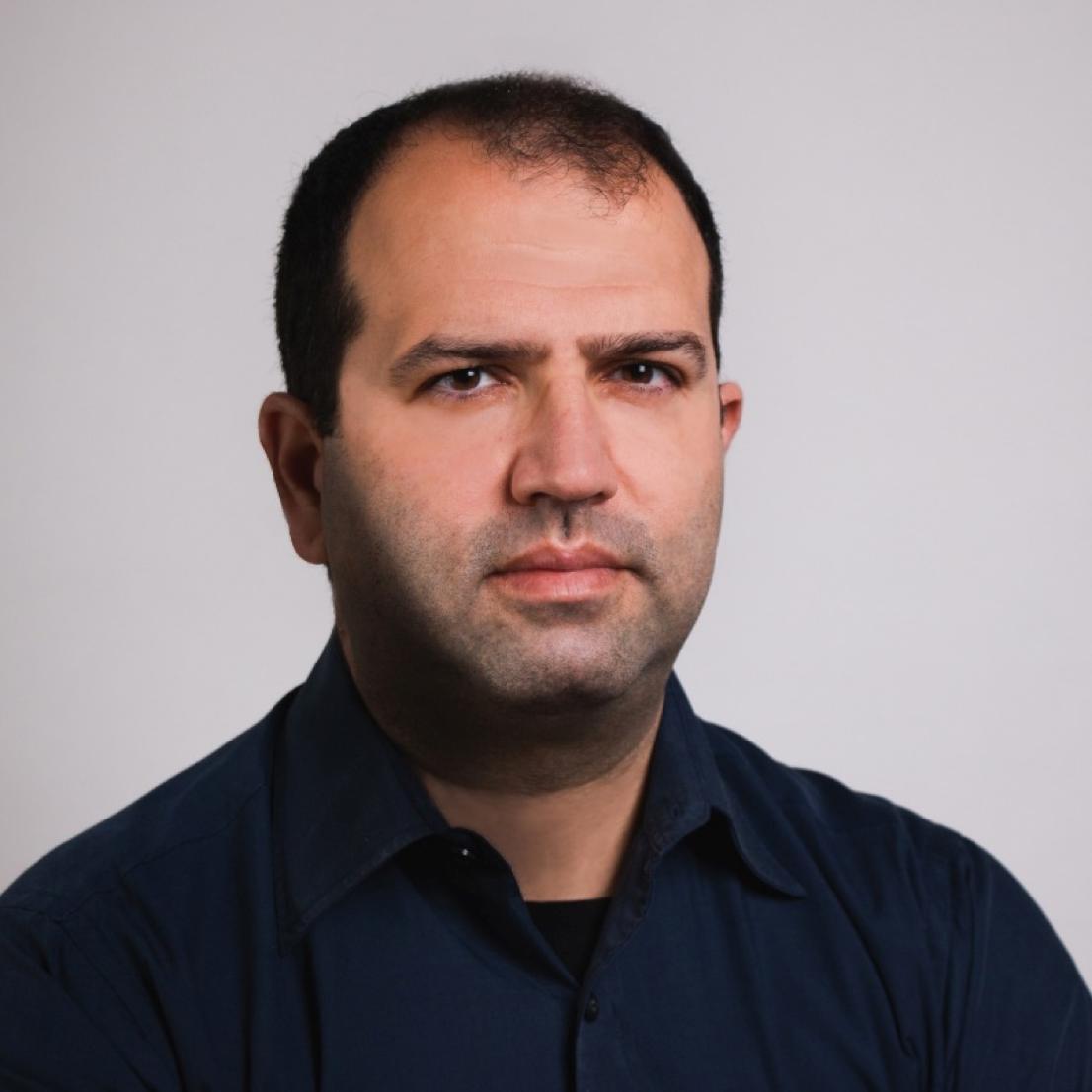
We acknowledge that the production process was unconventional. Can you explain to us how you organised the teams involved? Organising the teams was a very difficult task. I still haven’t really grasped how we made it. First of all, with the excellent cooperation and total support of Mr Ioannis Papageorgiou, as well as the support of Professor Stelios Gialis; the Key Account Managers were also a key point. Also, open communication with each other, as we did many zoom meetings and set timetables that we tried to follow.
How did you manage to work during COVID-19 lockdowns? Due to COVID-19 lockdowns in many countries, we could not follow the timetables. Specifically, in Italy and Spain the harshest lockdowns were in effect when we wanted to do the interviews. The filming teams in some cases could not leave their area. So, we tried to be in touch and make new arrangements all the time.
Photos Credits: Tom Mamakos
57
Youth Employment Magazine
Assuming that you were re-making the film, what would you change?
I would change the COVID-19 situation, but I don’t think I would be able to. So, I would try to have more action shots and more intimate moments of the beneficiaries. Make it more direct. This was something that was also not feasible because of COVID-19, but we would probably find a different solution. For example, using mobile phones or something similar. If I could give more thought to it, I think I would change everything.
Your film reveals unknown aspects of an otherwise known phenomenon, namely the NEET phenomenon. What is your take on the issue? How would you account for it?
NEETs are normal people like we are. All the people that we met and interviewed are trying to get a better life. They are completely aware of their situation and now that we are talking, some of them are not NEETs anymore. I personally believe that everyone has the potential to enter the labour market in an efficient way. This is a common characteristic of all the interviewees. Inactivity is a human state of mind that can set someone completely out of the labour market.
The film revolves around personal stories. Which one stands out for you?
I believe that the story of Zaki has made a great impression on me, this is why we chose to make an extended reference to his story. The fact that he came here in a boat risking his life and that he has managed to learn English in ten months shows his courage. He always tries to learn and do something in order to follow his dreams. Apart from all this, he was a very polite and modest young man. Whenever I tried to contact him, he was very willing to cooperate for the interviews or the shootings in general.
You have chosen to follow and interweave the stories of beneficiaries from identification to finding a job. Did you witness a real impact of the YOUTHShare project on the beneficiaries?
The beneficiaries were very happy with their participation in the course. In some cases, they found a real job because of it. With COVID-19 they became more pessimistic, so the course was like a ray of light to them. I think that this is obvious from their interviews. They are not supposed to
beautify anything, they are completely sincere when most of them say that the course exceeded their expectations.
YOUTHShare Project
58
Youth Employment Magazine
YOUTHShare at the IIPPE 2022 Conference
The YOUTHShare project was once more present at an important international conference: “The Socio-Ecological Crisis and the Political Economy of Sustainability” by the International Initiative for Promoting Political Economy (IIPPE2022), that was held on September 7-9 in Bologna, Italy.
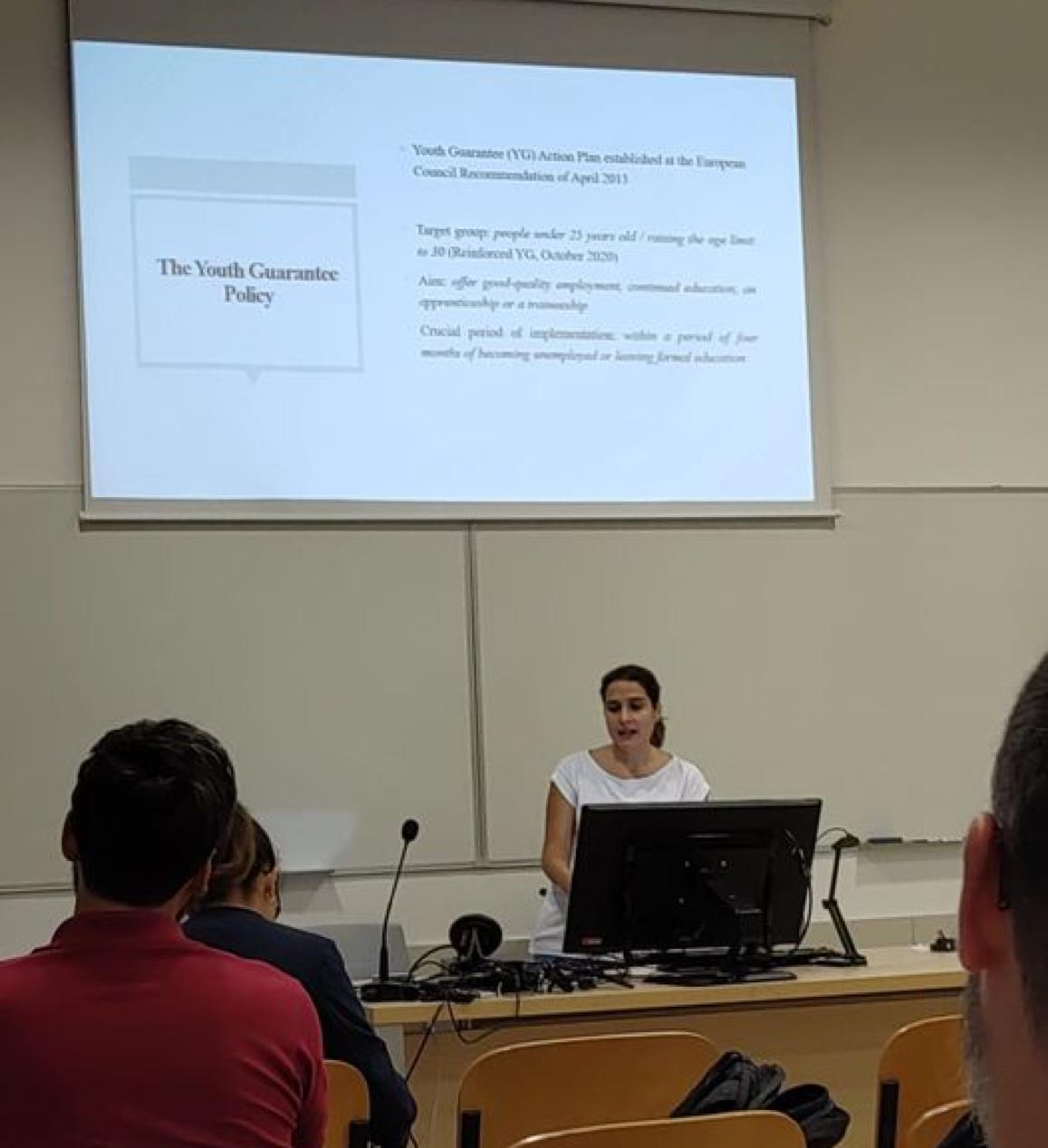
The IIPPE was founded in 2006 and, as stated on their website, “[…] with the aim of promoting political economy in and itself but also through critical and constructive engagement with mainstream economics, heterodox alternatives, interdisciplinarity, and activism [...]”. Through “intellectual content and direction”, the IIPPE sees itself as “commanding and criticising mainstream economics, offering alternatives from within political economy [...]”. One of the main activities of the IIPPE has been to establish a number of working groups regarding specific subjects. At the conference, results from the research and social intervention activities of YOUTHShare were discussed, while research projects from the people that are involved in YOUTHShare were presented at parallel sessions; projects promoting the multifaceted activities of the Labour Geography Research Lab (LGRL), Department of Geography, University of the Aegean.
On behalf of the YOUTHShare project, Ms Effie Emmanouil, PhD
Candidate, Mr George Chatzichristos, and Associate Professor Stelios Gialis, presented their research “Guaranteeing Youth Employability in EU South: Great expectations vs reality”, essentially exploring the impact of the Youth Guarantee (YG) Policy that was established in April 2013 in the NUTS2 regions of Spain and Italy, for 2016-2020. The combined results for both countries showed that the YG is “beyond the idiosyncrasies of the EU South economies”, that there still exists a significant gap between NEETs, job vacancies and precarious labour; that the youth labour markets in the EU South need a strong system of innovation in regional areas, with universities getting familiar with the needs of each region; that formal institutions need to advance their capacity; and that structural
interventions, like diversified economies, will distribute the risk of high youth unemployment and precariousness.
Representing YOUTHShare project too, PhD Candidate Athina Avagianou, Dr Kostas Gourzis, and Associate Professor Stelios Gialis presented their research on “Diverse economies as a viable alternative for youth? A study of Social Economy in the EU South”, where, coupled with other approaches, quantitative analysis of social enterprises and employees in the NUTS2 regions of Spain, Italy, Greece and Cyprus, as well as qualitative analysis based on interviews with SE stakeholders, were conducted. Regarding the interviews, results showed inefficiency and complexity of the legal framework in Cyprus and Greece, and a hybridization of the Social Economy due to its prohibiting modus operandi, where employment turns precarious even when it could be avoided.
59
Youth Employment Magazine
PhD Candidate George Sykas, researcher of the Labour Geography Research Lab, presented the research “Capital flows in the sensitive sector of constructions”, with the presentation aiming to “scrutinise capital switching periods across the Euro Area” and “weigh the dynamics of the construction industry in countries that have experienced capital surges”. Some of the results of the research were that from 2000 to 2008 there was a gradual shift of capital towards building environment in the European South; that the growth of construction in Mediterranean countries did not come with the anticipated benefits to the economies; and that the linking of the European economies (Eurozone and the European Union) may have benefited the “strong” countries.
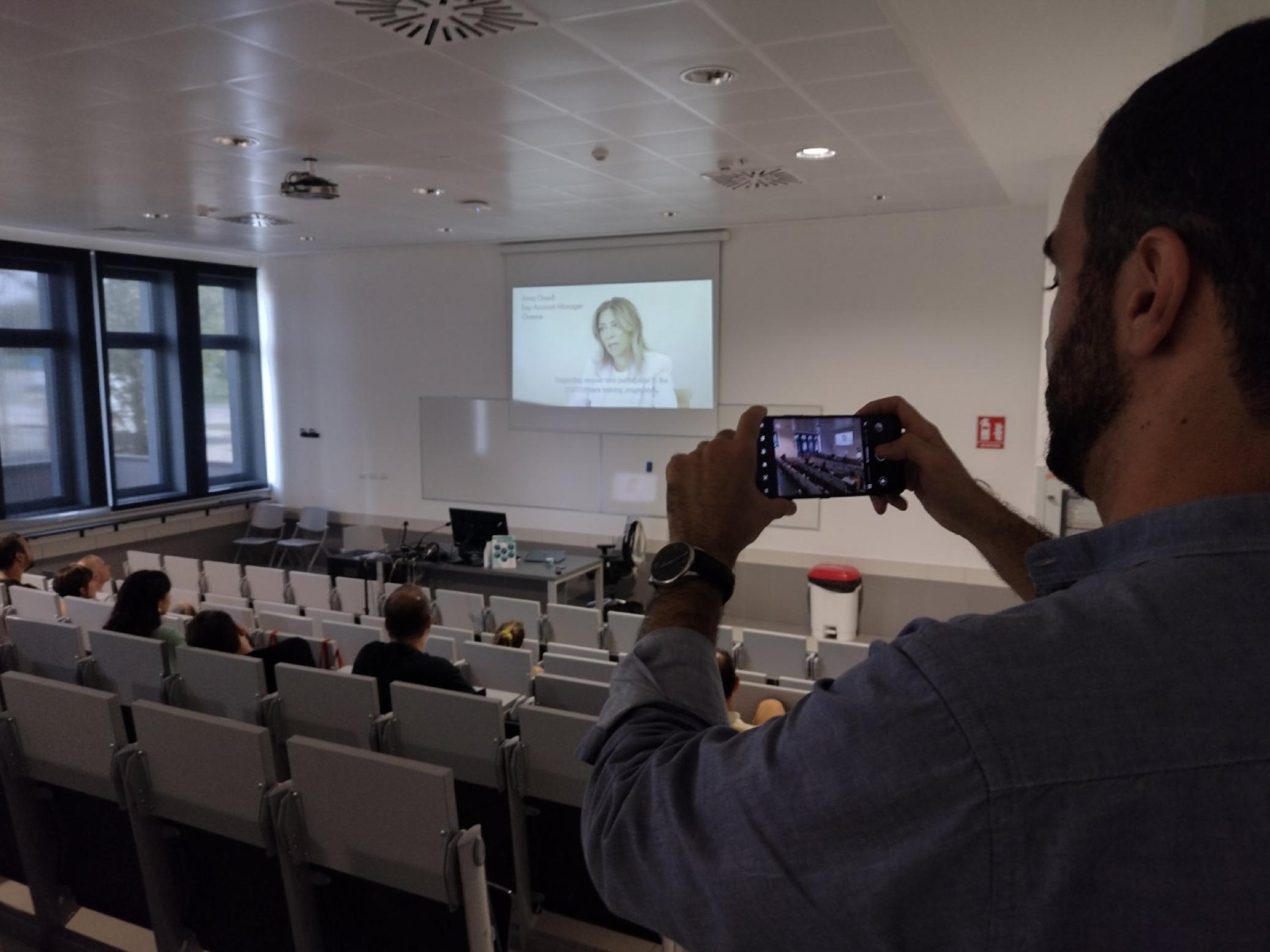
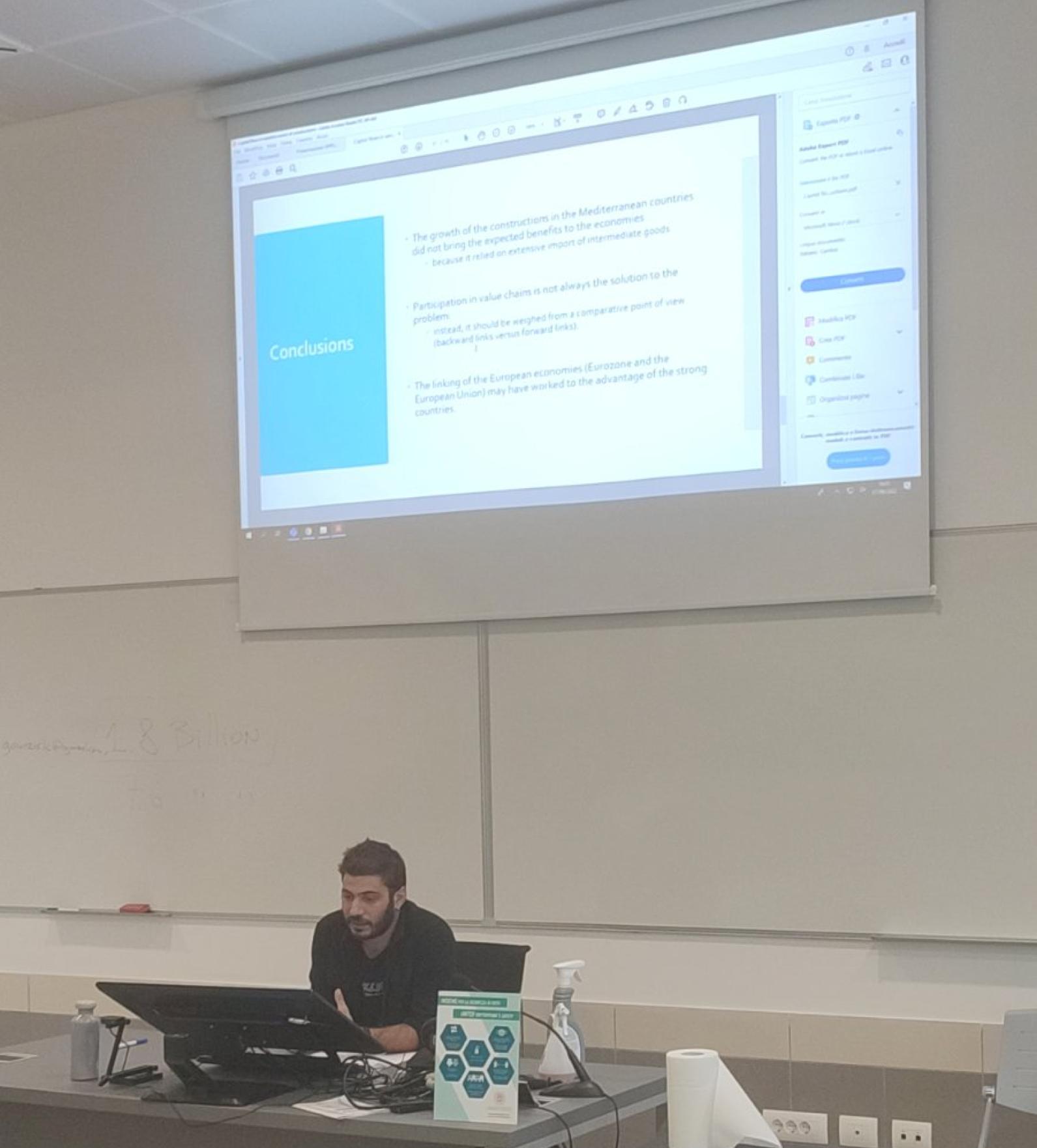
Attendants of the conference also had the unique opportunity to get a glimpse of the YOUTHShare documentary “NEET”, that was completed this July under the direction of Mr Tom Mamakos. “NEET” follows the steps of selected beneficiaries of YOUTHShare, starting from identification and moving to training, internship, and finally, to finding a job.
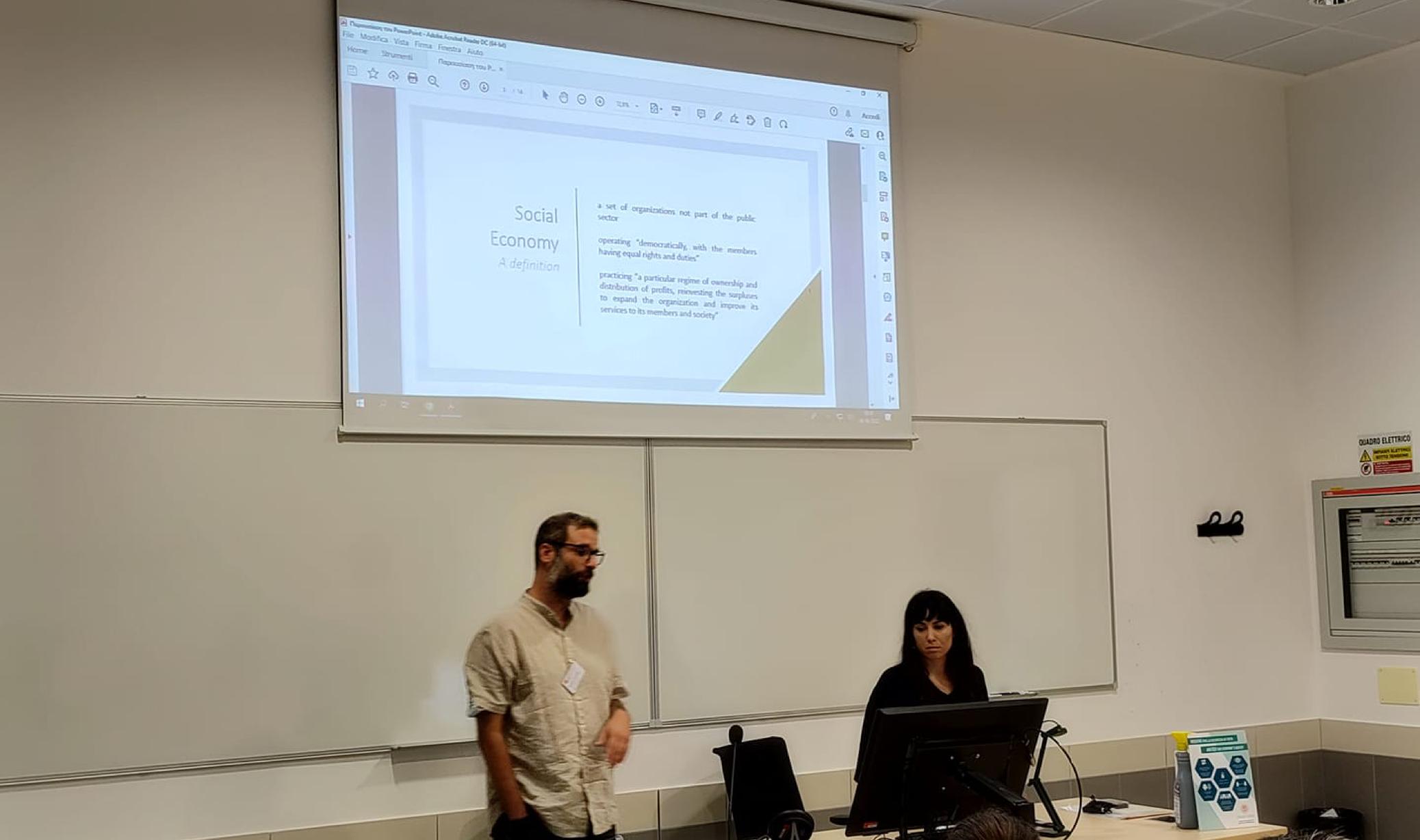
60
YOUTHShare Project Youth Employment Magazine
Crucial potentials to unlock youth empowerment in five European rural areas
Worldwide rural communities face interrelated economic, social, and ecological challenges. The project StayOn's ultimate objective is to create conditions that enable young people to "stay on" rural areas by ensuring access to opportunities, benefits, services, and jobs.
But how to do so?
The project targets the Trikala Prefecture in the rural hinterland of central Greece, which annually loses 1% of the farming population due to the retirement of the old farmers. The leading causes are the low prices of traditional crops, little to no training in new technologies and a general absence of involvement of local universities and authorities to transmit new knowledge to the farmers.
In Ireland, StayOn operates in County Meath, north of Dublin, where the rural communities of Athboy and Kells are increasingly becoming commuter towns to the capital city. The economic crisis and the lack of local job opportunities have particularly affected young people living here. They can only aspire to occasional jobs or move to other contexts that offer more employment opportunities.
The project also supports youth in several Italian municipalities in the northwest part of Sicily, where the youth unemployment rate has recently reached 40%. The economy is based predominantly on fishing and farming, with the cultivation of vines and olive trees being the main focus. The loss of old trades and the difficulty in becoming self-employed often make migration the only opportunity to create a future for oneself.
The Podlaskie Voivodeship communities, where one-third of people are employed in agriculture, will be at the center of StayOn's operations in Poland. These rural and urban-rural communes are struggling with significant economic problems that have led most young people to move to larger cities to find employment. In recent times, Ukrainian citizens have been moving to this region due to the Russian invasion of Ukraine. This
situation is leading to sudden changes in the area's social and economic conditions.
Finally, the project supports youth in the Azores (Portugal), a transcontinental archipelago located in the northeast Atlantic with unique economic characteristics in terms of infrastructure development, education opportunities, and geographical features. A critical factor for the fragmented socio-economic landscape is that services and state infrastructures are not equally available for all islands or even some municipalities of the bigger islands; this inequality indirectly and directly affects the youth on the islands.
We've examined current and future labor market needs in these communities and identified six driving forces of youth employment that represent crucial potentials for implementing support solutions for NEETs:
1. the skills mismatch,
2. the poor skills of job seekers
3. the type of education chosen by youth, 4. informal work,
5. the types of contracts offered to young adults, 6. and socio-economic and demographic factors.
Of course, these six crucial potential play different roles, depending on the region in question.
The five full potantials assessment reports can be found on the StayOn website, in our Impact Compass section: https://www.stay-on.eu/impactcompass/
Enjoy the reading or watch the explainer video: https://www.youtube.com/ watch?v=_DQGwM6OdX4
Giulia Parola, European Center for Social Finance
StayOn Project
61
Youth Employment Magazine
Autonomous Workers for Combating Unemployment and the Enhancement of Solidarity
Four “Dead Ends” of Employment and two Synergized Solutions
Prolegomena
I would like to thank the INMEKO, for the invitation and its trust to my research. I know well, and I definitely respect the analytical estimations, the strategic positions, and the trend to the continuous activism of the Institute (and, especially of Vassiles Taktikos).
I understand, of course, the approaches of INMEKO for the conditions and trends in employment. The main approach of INMEKO is that employment and especially wage employment is at a “dead end” in the present harsh situation. The only way out, according this view, is the alteration of the individual and the social strategy, for the work inclusion. The development of social economy is the, absolutely, only option for the absorption of unemployed people in employment. Beyond the special arguments of INMEKO, we could recognize some of the realities, which can enforce the claim for an alternative on the creation dissent jobs and incomes, within the environment of a broader social economy in modern society.
1 Insurmountable problems for the absorption of wage earners in employment
We could glean, at least, four insurmountable problems (as burdens), within employment in modern advanced countries, for a further dynamic absorption of wage earners. We are going to watch briefly these problems.
1.1 The first problem: The reduction of enterprises with employees
The first problem is the steady reduction of enterprises with employees, worldwide. The door of the right for an entrepreneurial career is closed for the majority of young people, too. The startups pull over few steps after their launching very close to or only on the limit of own-account workers, within modern economy. The procedure is very long (by a time view) and looks like an unchangeable one. How can we make enough jobs for young people (if we make the exception of state’s institutions, too)?
The next two graphs demonstrate the current (the two decades of the 21st century) situation in the basic core of entrepreneurship, according the relative data from OECD.
Graph 1

62
Youth Employment Magazine
Source: OECD, Enterprises by business size, 1-9 persons employed/10-19 persons employed/20-49 persons employed, Number, Annual, 2020, https://data.oecd.org/chart/6OjT, https://data.oecd.org/entrepreneur/ enterprises-by-business-size.htm.
Graph 2
Source: Source: OECD, Enterprises by business size, 1-9 persons employed/10-19 persons employed/20-49 persons employed, Number, Annual, 2020, https://data.oecd.org/chart/6OjT, https://data.oecd.org/ entrepreneur/enterprises-by-business-size.htm.
We observe a clear decrease of the number of enterprises with employees, within the previous comparison, worldwide. There is only one exception, namely the case of UK, to the above global trend. The ratio, namely the number (it includes UK, too) of enterprises with employees per million inhabitants is extremely low, in the western world (with the exception of Greece in this field of comparison). The field of profitable enterprises is not exactly the optimistic “place” for the development of productive creativity, in the near future of the western world. The profitable private enterprises cannot guarantee the necessary increase of employment, in short term. In long term “we are all dead”.

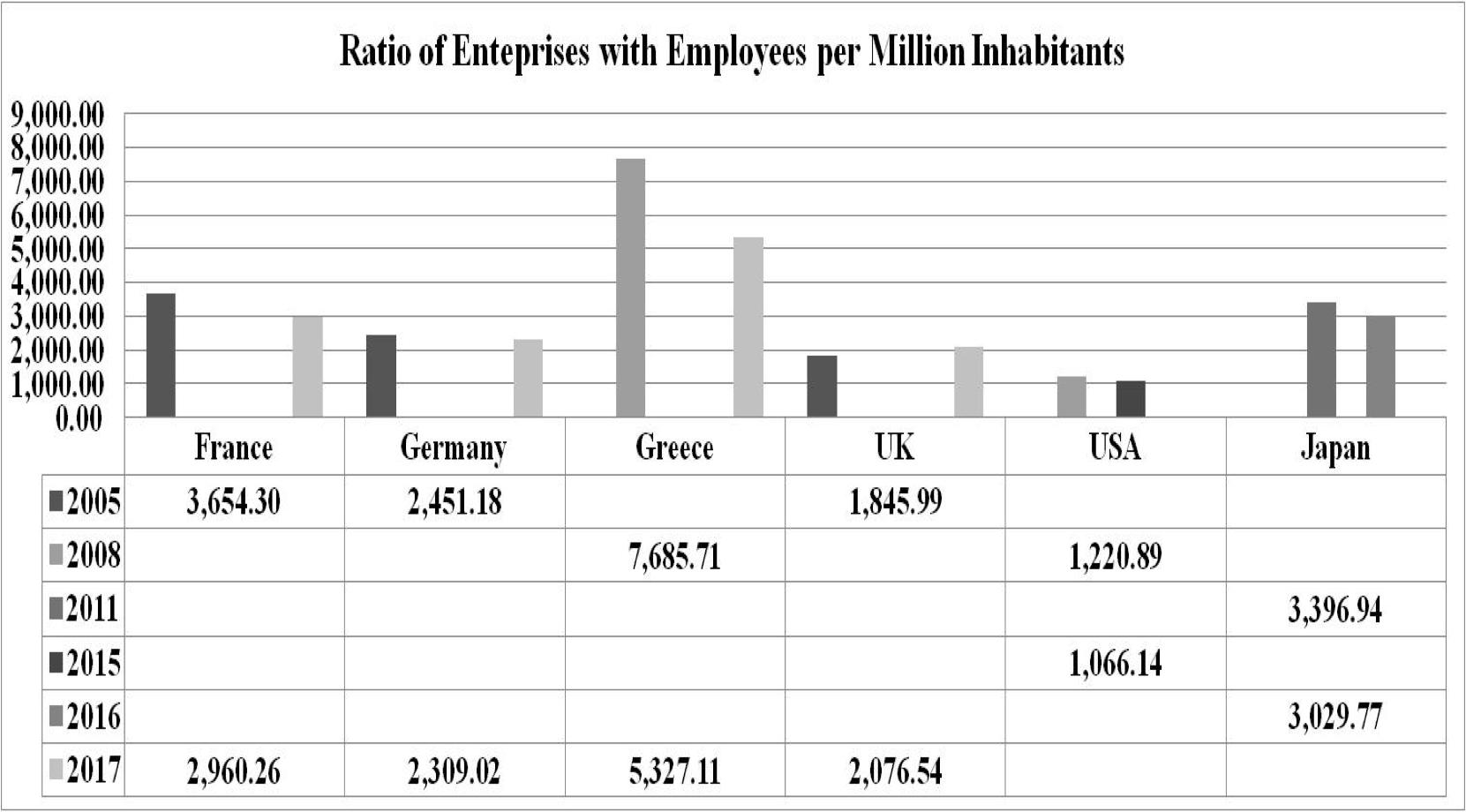
1.2 The second problem: The small percentage of employers
The second problem is a close relative of the first problem and regards the continuous reduction of numbers and percentages of employers (of course) for a long term, too. The strong beliefs to the potential of entrepreneurship are crashing on this reality of economic conditions and the situations of employment. Here, we are going to show the data from ILO (ILOSTAT, Database).
Source: ILO, ILOSTAT (Database).
Graph 3
63
Youth Employment Magazine
Employers’ analogies (%) suffer under a harsh pressure. The employers represent an extremely low percentage of employment and there isn’t any real exception to this indication. The small group of employers has had and has, during the present period, the same trend of decrease. We have to pay a special attention to the cases of UK, Japan and USA: a) The employers in UK, after a rather long period of steady decrease, represent, the last years before the Covid19’s crisis, a percentage of just 2,06% (2018); b) The employers in Japan, after a period of decrease, represent, the last years before the Covid19’s crisis, a percentage of just 1,92% (2018); c) The sum of employers and own account workers (the model of the collection of data is a special choice of the administration) in USA, after a much longer (than in the other two previous cases) period of decrease, represents a total percentage of 6,22%. We can probably assume that the special percentage of employers in USA moves among 1,92% (Japan) and 2,06% (UK). This is, of course and definitely, a hypothesis. There isn’t any real opportunity for young people to participate in entrepreneurship. The previous generation has closed that luxurious door.
1.3 The third problem: The employees (wage earners) touch the ceiling
We learn many myths around the fate of human labour (the most common is the next: technology and automation are going to reduce the need for human work and then for wage labour). The only confirmed side of those known myths is the already fullness of employment, in some of the advanced countries. It is, definitely, metaphysical the using of more human labour in a pool (the status of employees which covers the extremely big majority of employment) which is already or nearly full.
In the next graph, we can see the long trends of wage labour in a global scale. The employees (the wage earners) touch, definitely, the ceiling of absorption in employment, in all the advanced western countries. The percentages of employees are close to, or over of, 85% of the total employment, in the wealthier countries. In the more privileged of them (France, Germany, Japan) are very close to, or over of, 90%. In USA, the same percentage touches the 94% (93,74%).The other countries follow
rapidly the trend of pioneers. There aren’t any real opportunities, as a general phenomenon, in the advanced countries, for good and high wage jobs. The only opportunity there is for flexible (part-time) and low wage jobs. The proper candidates are the unskilled (or semi-skilled) people, without any experience (or with a little experience). There is a selective opportunity for an extremely (then it makes no sense for the work force) small minority for a minor number of prominent jobs. The competition for them is absolutely hard.
Graph 4
Source: ILO, ILOSTAT (Database).
1.4 The forth problem: The unemployment
Unemployment is one of the most painful problems of our age. For some countries (Greece, Spain, Italy, and Portugal) is even more an indication of malfunction of capitalism. For some certain reasons (it is not the right time to discuss them now) the resolutions and especially the fiscal choices of the responsible institutions of monetary policy, in Euro zone, were worse than the problem itself. The choices for the deflation, in these countries, have made large unemployment unavoidable.
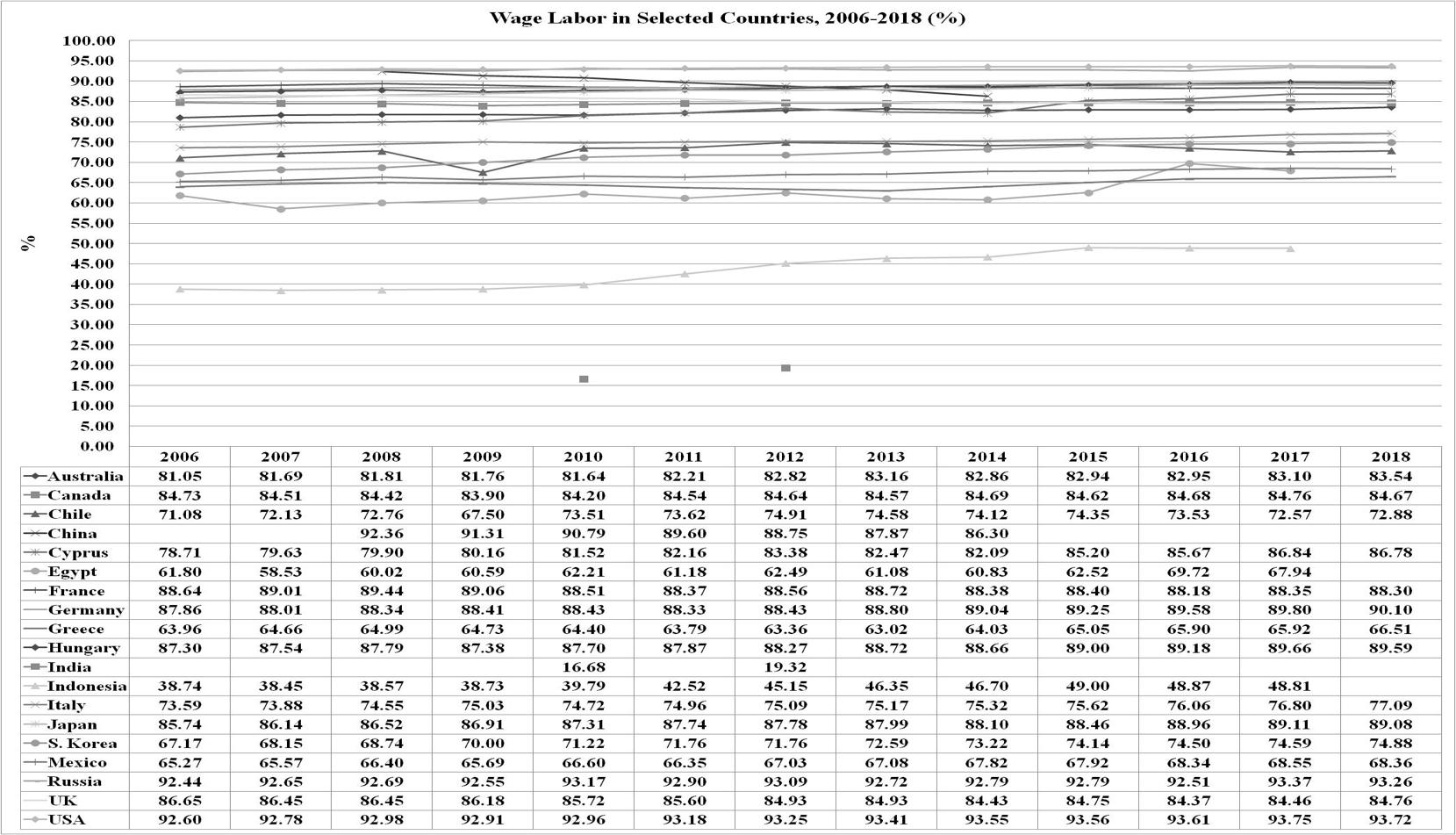
64
Youth Employment Magazine
Youth Employment Magazine
Graph 5
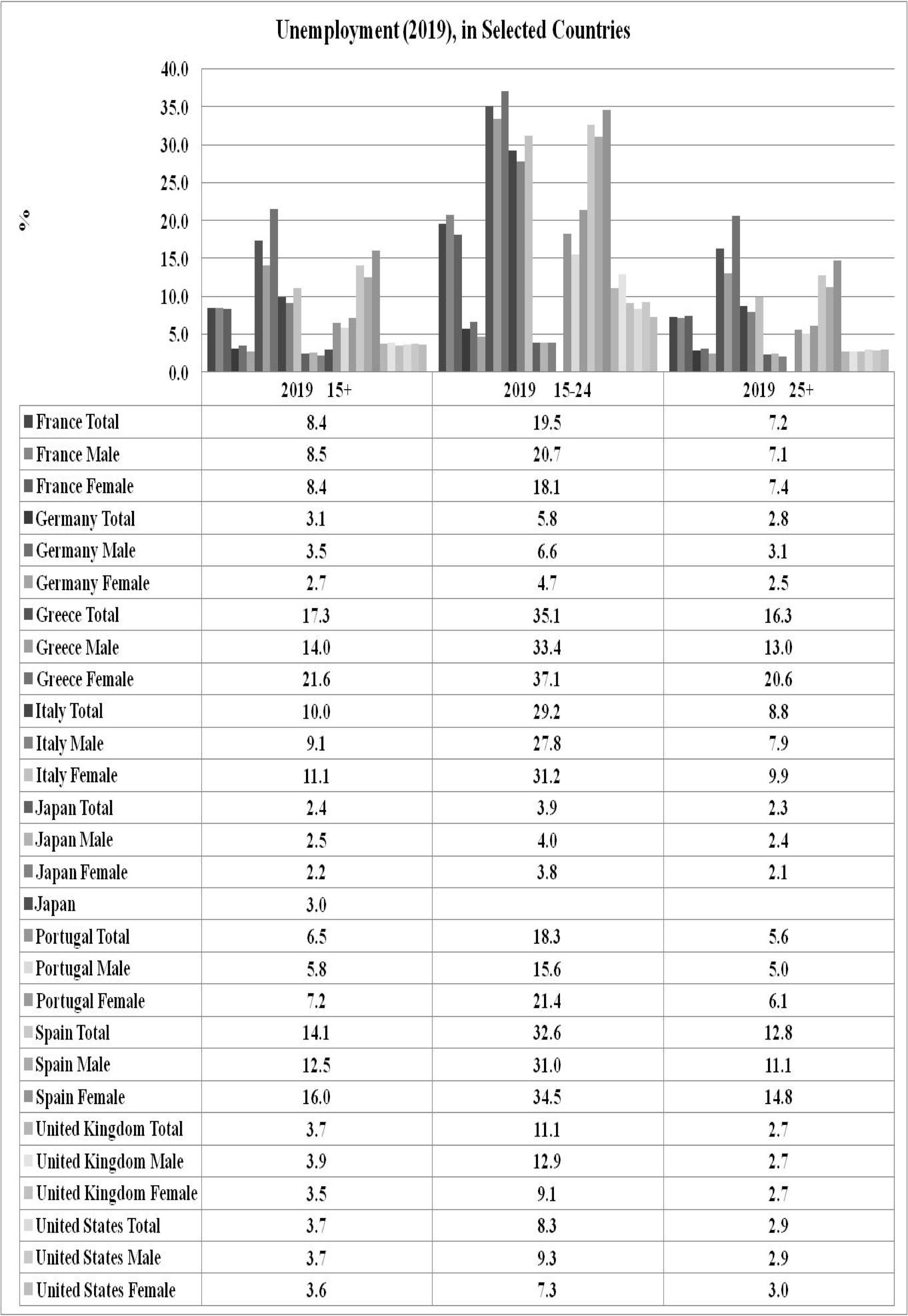
Unemployment: General Level (%)
Source: ILO, ILOSTAT (Database).
Graph 6
Source: ILO, ILOSTAT (Database).

65
Source: ILO, ILOSTAT (Database).
Unemployment and unemployment rate is definitely a cyclical phenomenon of labour force, during the middle time term. Unemployment and Inflation have an absolutely reverse relationship. During the phases of “controlled inflation” (by fiscal policy), a relative larger inflation contributes to a relative shorter rate of unemployment (see, Appendix 1). Unemployment rate, in countries with serious fiscal problems is much larger and continuous, in the long run. There is a serious delay after the new phase of economic development for the real decrease of unemployment rate. The unemployment of the young people (15-24 years old) is larger or much larger than the national annual unemployment rate, in every country. The difference is huge. The women’s unemployment rate in advanced countries is usually smaller than the national annual unemployment rate and the men’s unemployment rate. In Greece, Italy and Portugal we observe the reverse phenomenon: Women’s unemployment rate is larger or much larger.
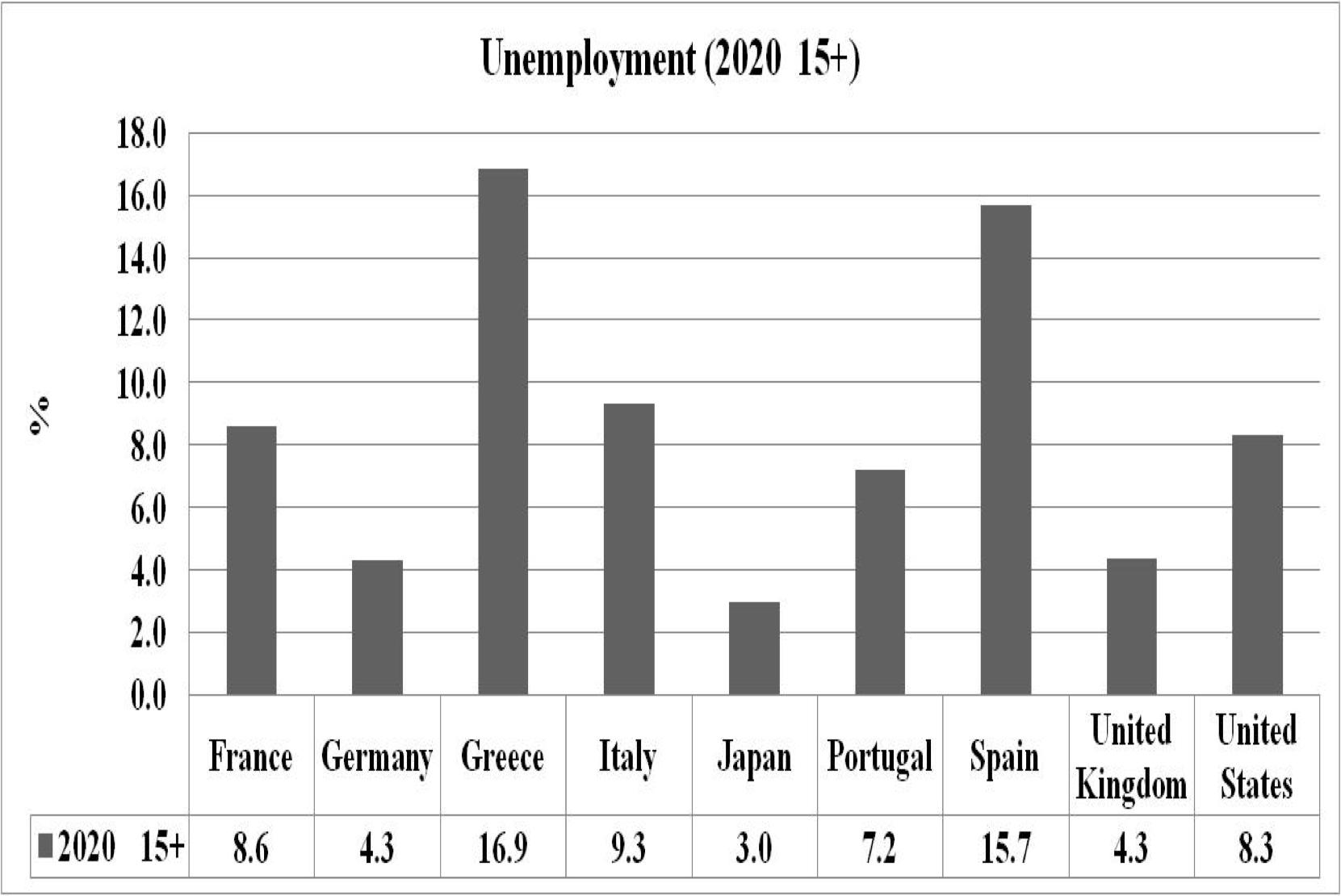
2 A radical solution for combating unemployment
2.1 Re.Ho.St.E.N.A.R
There are some publications (Lytras 2016; 2017; 2020) recently on a radical program for combating unemployment. The program is named Reconciliation of the Holding of Stock with the Employment and New Activation in Regions (Re.Ho.St.E.N.A.R.).
The aforementioned program is radical and has many innovations, but there are intellectual loans from the known policies of the past [the J.M. Keynes’s model, the model of Employer of Last Resort (H.P. Minsky), and the workfare (welfare-to-work) system [(Personal Responsibility and Work Opportunity Reconciliation Act - PRWORA – Temporary Assistance to Needy Families -TANF)]. The J.M. Keynes’s model contributes by two ways in this proposition. The first element regards the role of aggregate demand for combating unemployment and the creation of jobs. In the new proposal the concrete attempt is based on the creation of jobs and the sureness of the further mobilization by the incomes, which are expected to be created, for the necessary development. The second element is the conception of the single and coordinated method of financing of the policy for combating unemployment. The state and the specialized public institutions, in our proposition, have the power and the means to co-finance and coordinate the future policy, in a new form of combination between private and public sector. The model of Employer of Last Resort (H.P. Minsky) gives the idea of a single mechanism of intervention for e ff ective combating unemployment and a framework of the total amounts of needed funds for this policy, while it has the guarantee of an achievement in the case of Argentina. The proposed policy respects the above characteristics, but rearranges the problem of public funding, with a new synthesis. We repeat that the needed capitals are in a major part private and in minimal part public grants. Therefore, there is no need for using the typical fiscal tools for the extensive public funding of the process. Meanwhile, the state is not the future employer of last resort, but a useful coordinator from the first to the last minute. The workfare (welfare-to-work) system contributes equally to the conception of the proposal.
66 Graph 7
Youth Employment Magazine
The synthesis of benefits with the obligation of work gave to our critical perception. In fact the concrete model gave some useful limits for the content of the difficult solutions, in a society and a political system, with negative correlations and strict doubts to any expensive measure and any tolerance to “laziness” of the beneficiaries by public policies. Additionally, the regional organization of the implementation of the system with flexibility directs the proposed alternative policy. We have to accept, that the title of program has its origins from the name of the B. Clinton’s Program [(Personal Responsibility and Work Opportunity Reconciliation Act - PRWORA) – (Temporary Assistance to Needy Families -TANF)].
In Re.Ho.St.E.N.A.R., the new type of workers, the autonomous workers (from the official pool of the unemployed people), with the addition of a security/coupon (which serves as an instrument of the procedure), are paid partly by the capital, and partly by the consumer of services (in a serial of repetitive actions with different mixtures of payment). The workers of a new type offer their paid services (specialized or unskilled), with the sole remuneration an analogy of the value, which is included in the aforementioned security. The security includes the relative tax and the contributions to the social security system. The initial financing belongs to the holders of capital. Their economic interest contributes, without any business risk, to the participation in the program. The holders of the stock are selected following a call for proposals. The holders of the stock deposit for twelve months their capital in a common account of the commercial banks. They are the initial financiers of the project. For this financing they are entitled to the agreed special rate of bank interest, under which they collect the respective amount from the banks at the end of the contractual period and the agreed dividend from the yields of the program process, in ten months (after a twelve months period).
The nation-state and EU co-finance with the monthly replacement of the withdrawals of deposited capitals, which fund (initially but partly) the aforementioned securities. Practically, the total public financing is equal to the value of the deposited capital, during the period of the program. This total value of public grants and therefore public spending is partly returnable. The value of taxes and contributions to the social security system replaces the major part of public spending.
The consumers are the basic financiers of the program, because they contribute with the major part of its budget. Consumers are benefited from this process and enjoy a large variety of services. They buy these services with great flexibility depending on their needs or their tastes. The purchase of services from the program is clearly for the consumers an act of social and community solidarity. But the trend for solidarity synergizes with the active and realistic economic relationship, namely without claiming the complete change of economic behaviour. The drive to solidarity, through the regular market behaviour, alters the social and community solidarity in an economically effective reality.
The program: Re.Ho.St.E.N.A.R. is simple and feasible in every country, with a free-market economy. It is possible, that its economic plan looks extremely optimistic, but there are all the indications for a realistic implementation. Take a look at the next two Graphs. The first regards the countries, with low income. The second regards the countries with high income.
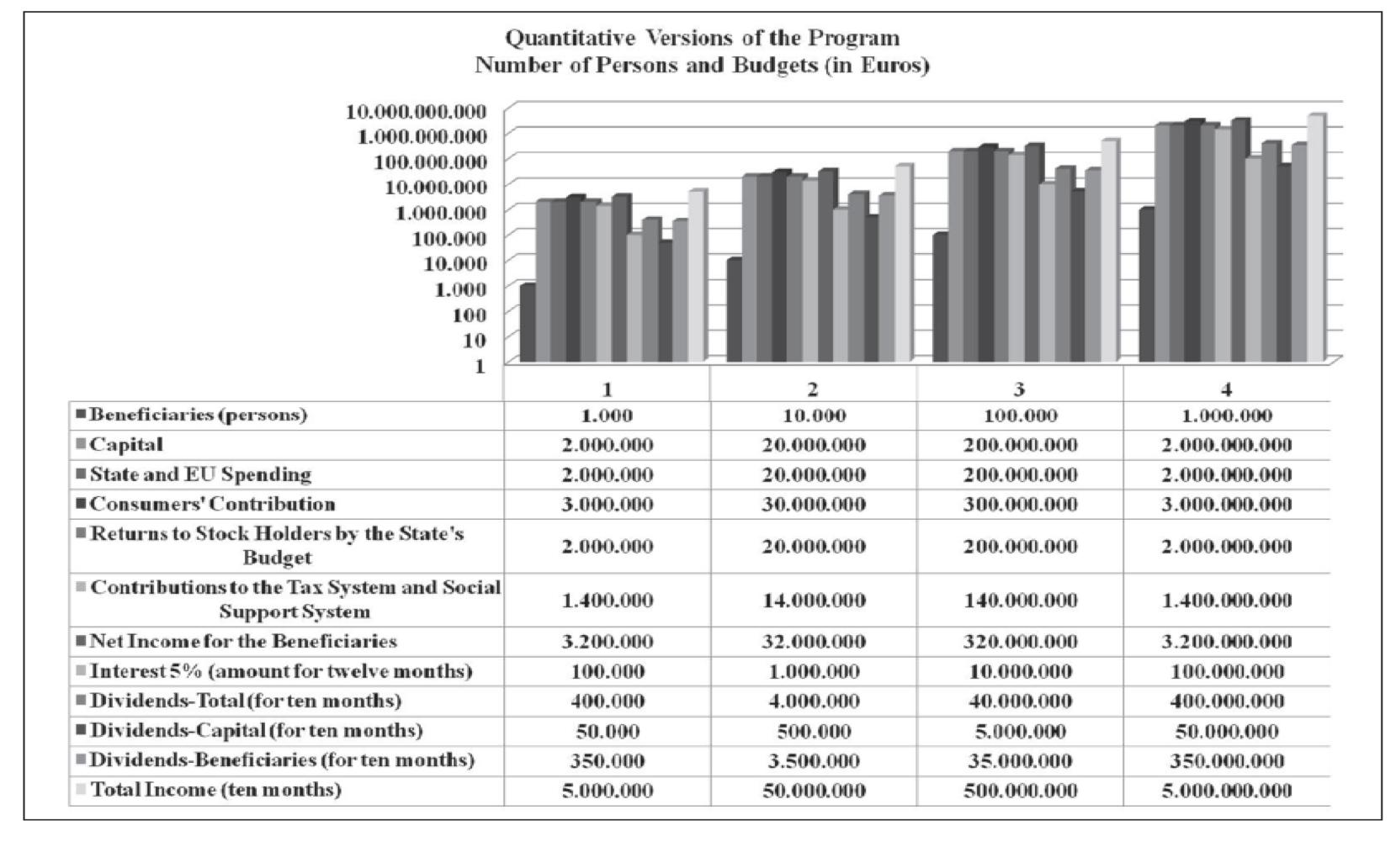
Graph 8
Budget for Combating Unemployment [for Countries with Low Income (GDP)]
Source: Lytras 2020, p. 162.
67
Youth Employment Magazine
Budget for Combating Unemployment [for Countries with High Income (GDP)]
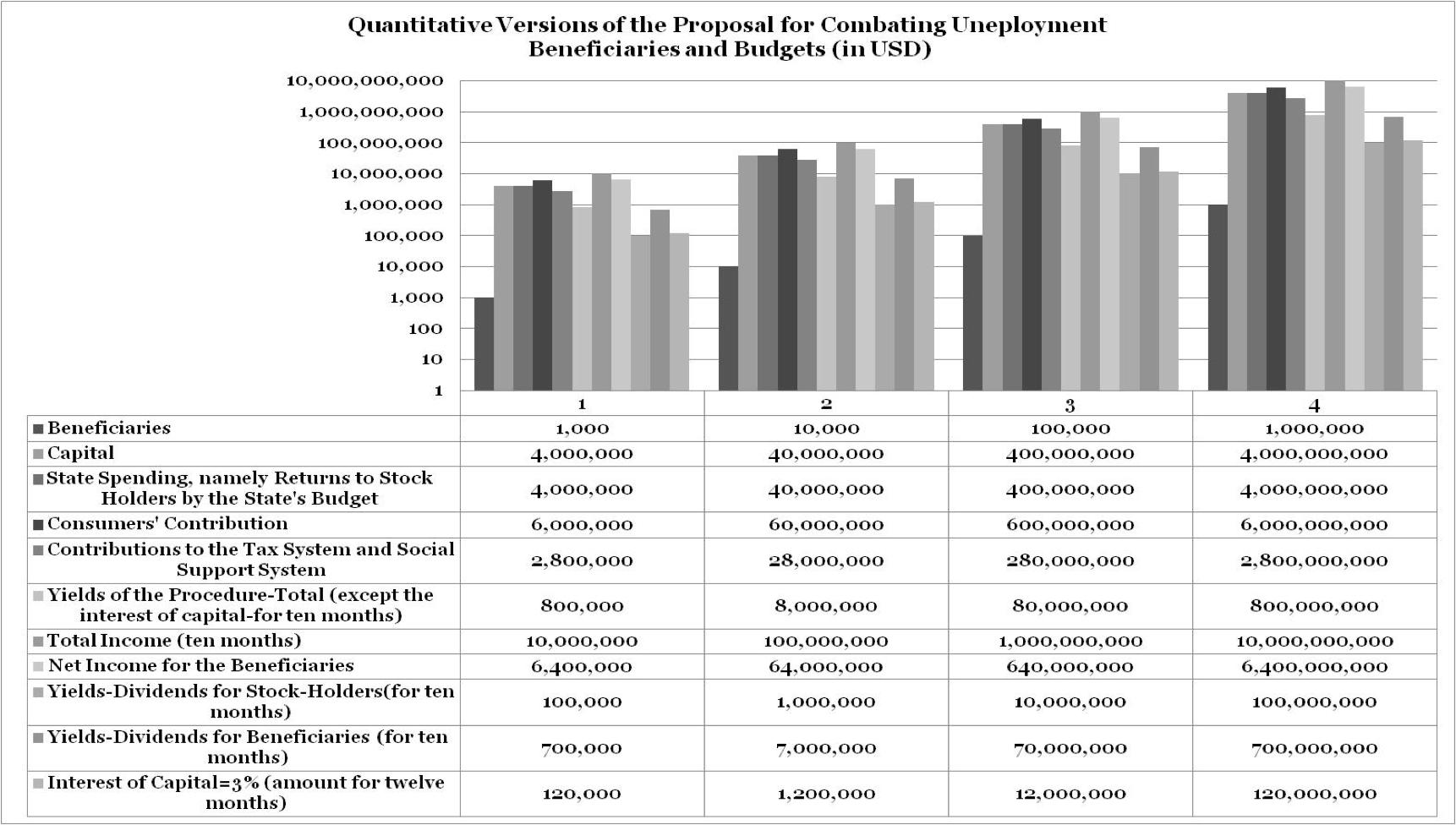
We need only the logical choice, the strong political decision and the day to day efforts in every different country. It is a difficult attempt, like any serious action, in modern world, but we definitely can do it. The first result is a positive shock in employment (with the fast and effective reduction of unemployment rate), as well as in the incomes creation and their distribution. The second future result will be the “lack” of unemployed people for the enterprises in function. The third future result will be the increase of wages of the already wage earners. The forth future result is the limitation (implementation with fewer beneficiaries) of Re.Ho.St.E.N.A.R., as an organized answer to the unavoidable pressure for the increase of inflation. At that time, of course, unemployment will be an absolutely resolved problem.
2.2 Autonomous workers for boosting co-operatives
The development of Social Economy is the INMEKO’s (Institute for the Studies of the Social Economy) crucial target, within the European Union and the Euro zone. My analysis respects the target of INMEKO and
elaborates the synergy of the program Re.Ho.St.E.N.A.R., with our common target for the enhancement of co-operatives.
2.2.1 Selective Affinities
The autonomous workers (of the previous program) are very similar to the own-account workers (according to the definition of ILO). The members of co-operatives are, definitely, own-account workers (according to the definition of ILO). The similarity of both the statuses, the beneficiaries of the program for combating unemployment and the members of cooperatives is obvious and compatible. The rather lower cost of the beneficiaries creates the potential for the special using of their (possibly) collective force, in the different kinds of co-operatives (producers’ cooperatives, consumers’ co-operatives, co-operative banks, mutual social security funds, communities for the production of energy etc.). The cooperatives, then, are going to have the role of some of the consumers, during the activation of Re.Ho.St.E.N.A.R.
2.2.2 Aspirations and Synergies
The using of work of the beneficiaries reduces the labour cost of cooperatives, without the creation of any permanent commitment. The cooperatives enhance their activities and economic results, during the employment of the beneficiaries. The beneficiaries learn to produce collectively, while they are autonomous workers. The autonomous workers could have, additionally to the necessary professional experience, the experience to make businesses in a field of legal entrepreneurship, with democratic organization and social care for the community. The enforcement of the co-operatives, by this method, enriches the entrepreneurship, while the profitable enterprises have not the proper number and analogy for the absorption of unemployed people, in the modern society.
2.2.3 Targets of the action
The using of work of the beneficiaries helps the expansion of own-account workers as a part of labour force in co-operatives. They are very similar to the owners of co-operatives. A new culture of labour’s cooperation can be born. The co-operatives with the cheaper and available work could expand
68 Graph 9
Youth Employment Magazine
economies. According to our projections, a percentage near to 15%, in five years term, to 22%, in 8 years term, and finally to 25% of the GDP is achievable (within a ten years time term). Under the abovementioned conditions, the absorption of unemployment could be more close to the needs of local and national society, and immediate. I am confident that the combination of the certain method for combating unemployment and the enhancement of co-operatives, in free-market societies, can make unemployment a problem of the past.
Bibliography
[The Congress of the United States] (1996). Personal Responsibility and Work Opportunity Reconciliation Act- PRWORA. Public Law 104-193, Aug. 22.
ILO (2020). Unemployment rate by sex and age -- ILO modeled estimates, Nov. 2020 (%). Last update on 14MAR21.
ILO (2018), ILOSTAT. Unemployment 1991-2017 (http://www.ilo.org).
ILO (2019), ILOSTAT. Employment by Status in Employment 1991-2017 (http://www.ilo.org) Aug. 4, 2019.
Keynes, J.M. [2007 (1936)]. The General Theory of Employment, Interest and Money. London, Macmillan.
Lytras, A.N. (2016). An alternative for combating unemployment. Journal of Sociology and Social Work, 4 (2), pp. 59-71.
Lytras, A.N. (2017a). A radical policy for combating unemployment. The future network: Autonomous workers, stock holders, consumers and the state. Athens: Papazissis Publishers (eBook).
Lytras, A.N. (ed.) (2017b). Combating Unemployment during the Age of Crisis (in Greek). The Socials. Selections from Greek Sociology. Athens: Panteion University ( http://pandemos.panteion.gr/index.php? op=record&type=creator&q=%CE%9B%CF%8D%CF%84%CF%81%CE %B1%CF%82,%20%CE%91%CE%BD%CE%B4%CF%81%CE%AD% CE%B1%CF%82%20%CE%9D.&page=1&scope=&lang=el&pid=iid: 18041).
Lytras, A.N. (2020). A radical policy for combating unemployment. The future network: Autonomous workers, stock holders, consumers and the state. Athens: Papazissis Publishers.
Minsky, H.P. [2008 (1986)]. Stabilizing an Unstable Economy. New York, McGraw-Hill.
OECD (2020), Enterprises by business size, 1-9 persons employed/10-19 persons employed/20-49 persons employed, Number, Annual, 2020, https://data.oecd.org/chart/6OjT, https://data.oecd.org/entrepreneur/ enterprises-by-business-size.htm.
Andreas N. Lytras
SOCIALNEET Project
69
Youth Employment Magazine
Contributors & Credits
CONTRIBUTORS
From the Fund Operators
Mateusz Wiśniewski
Francesca Bombarda Sara Barbi
External Contributors
Thomas Mc Grath
From the Projects
Gojana Paponja Alina Adomnicăi Monika Peter Tzvetkova Marzena Dusza Kyriaki Kyprianou Laura Pacareu Flotats Ioannis Papageorgiou Constantinos Oikonomopoulos Kremena Yordanova
Jobsplus in collaboration with Extinction Rebellion Malta
ATIS Team
Rezos Brands team
Katarzyna Rećko – Dietetyczka "Kerta” Paulina Bzdzikot
Themes of the month:
Guillem Aris Joerg Schoolmann Catarina Farinha Miriam Rosa Johanna Lehtmets Kadi Väli Sylvie Feindt Dunja Buchhaupt KIZ Sinnova Giulia Parola Eszter Szonyi Amber Darmanin Anastasia Vlachou Joerg Schoolmann Andreas N. Lytras
Projects: 0029; 0031; 0033; 053; 058; 086; 0181; 192; 203; 314
DIRECTOR Gian Luca Bombarda
70
Youth Employment Magazine
Youth Employment Magazine
Cover image: free image
The contents of the Magazine are the sole responsibility of the authors and can in no way be taken to reflect the views of the Donors.
born with the intention of sharing the results and updates of the projects participating to the Fund to showcase the main achievements of implemented activities.

Follow us: www.youthemploymentmag.net

Go to the Forum
Contact us: themag@youthemploymentmag.net
Official number: 3380/2019
FUND OPERATED BY:
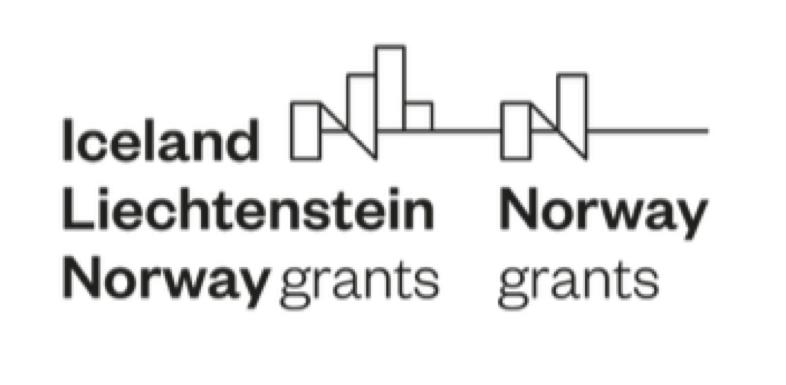
Don’t miss the Youth Employment Forum!
71
